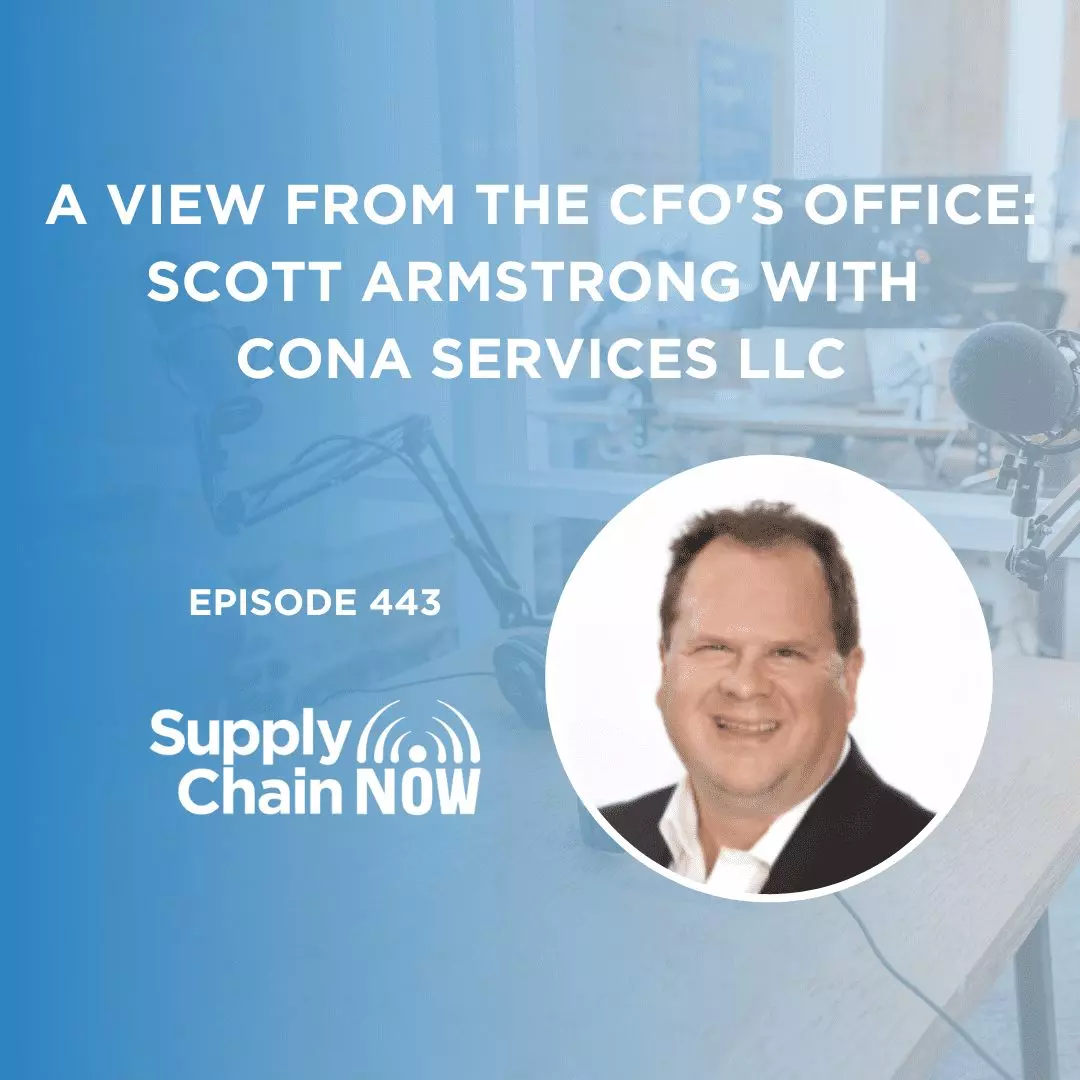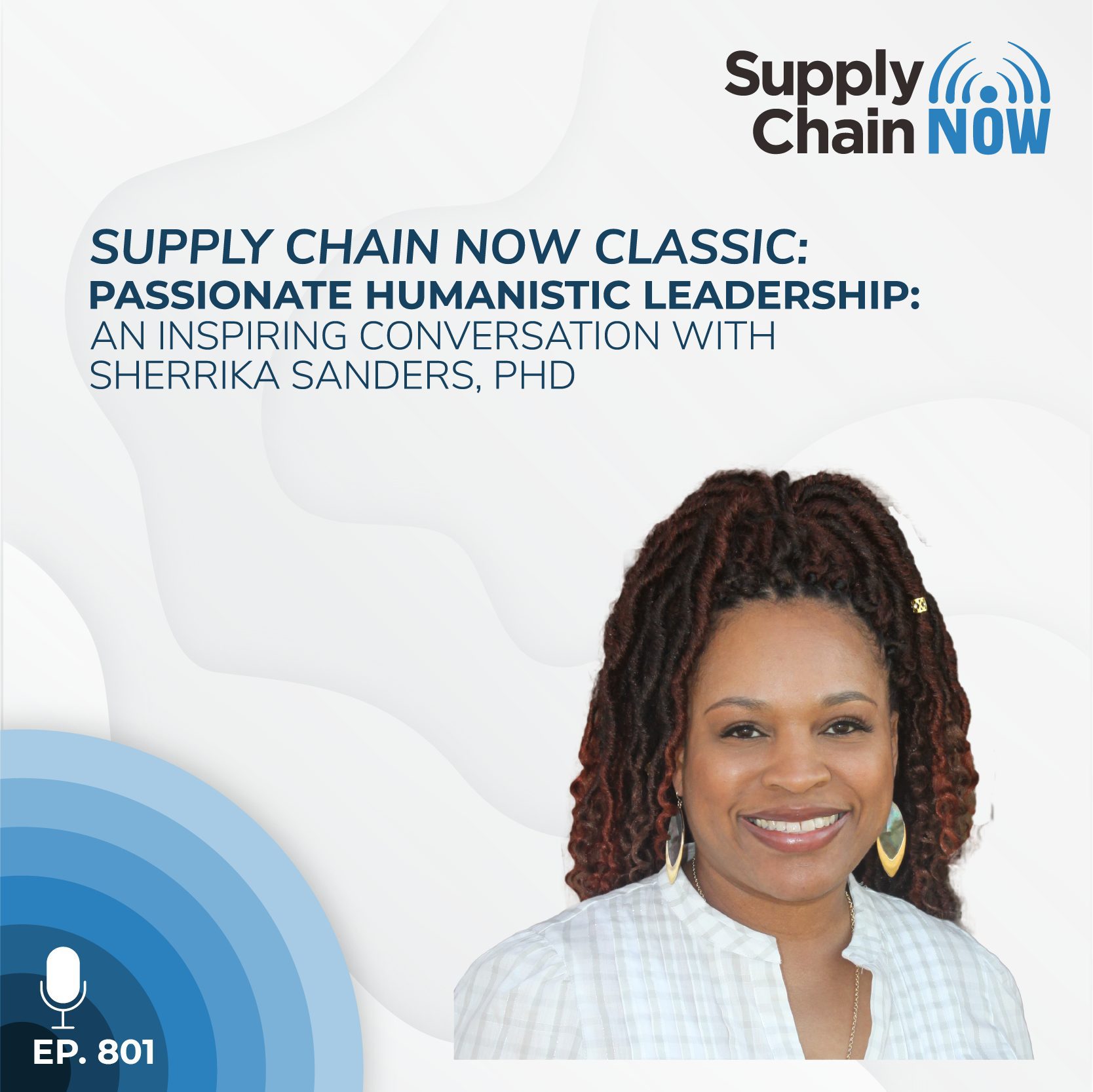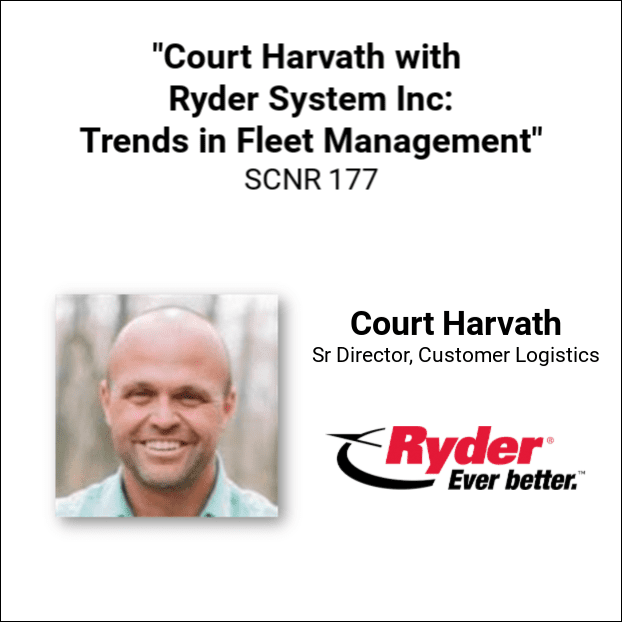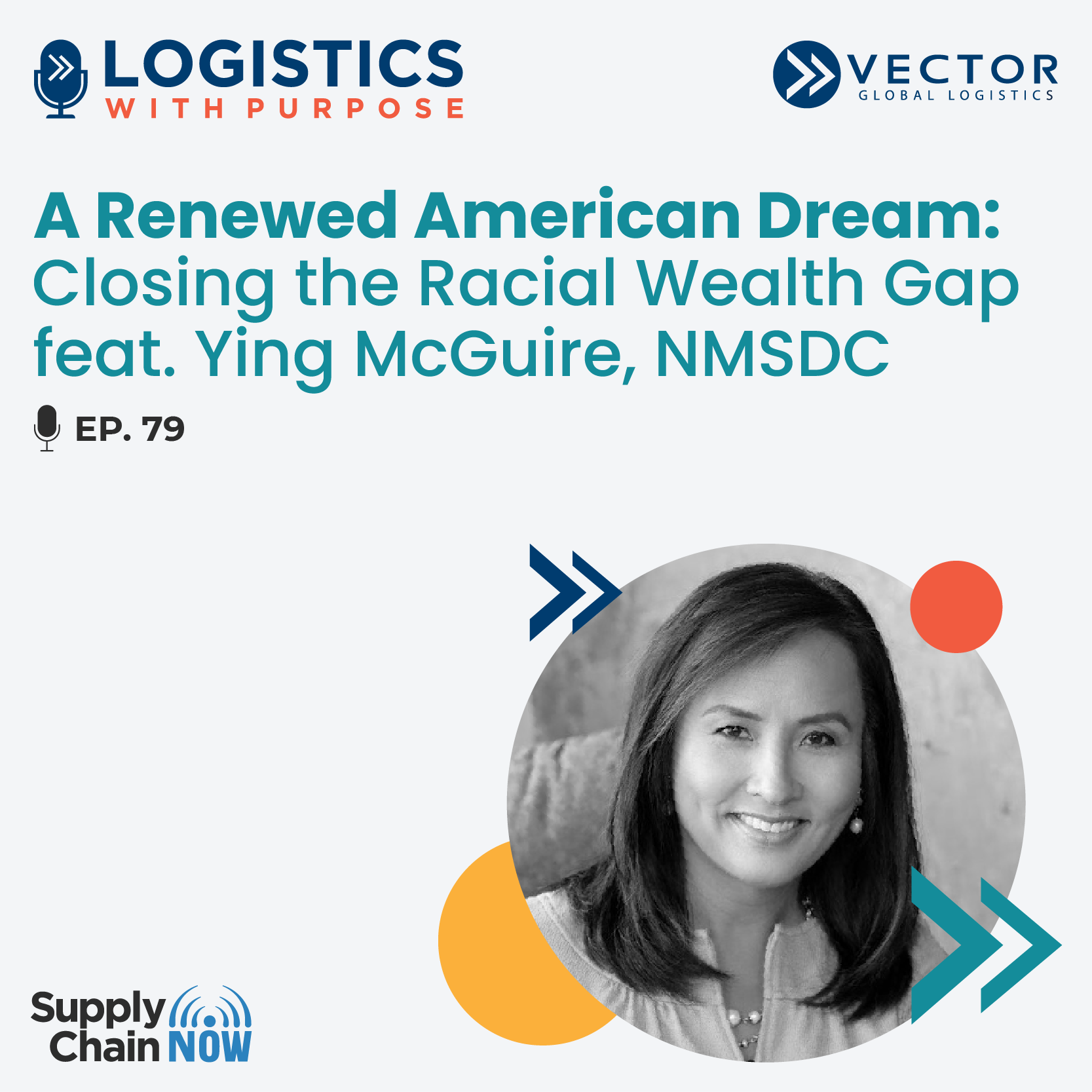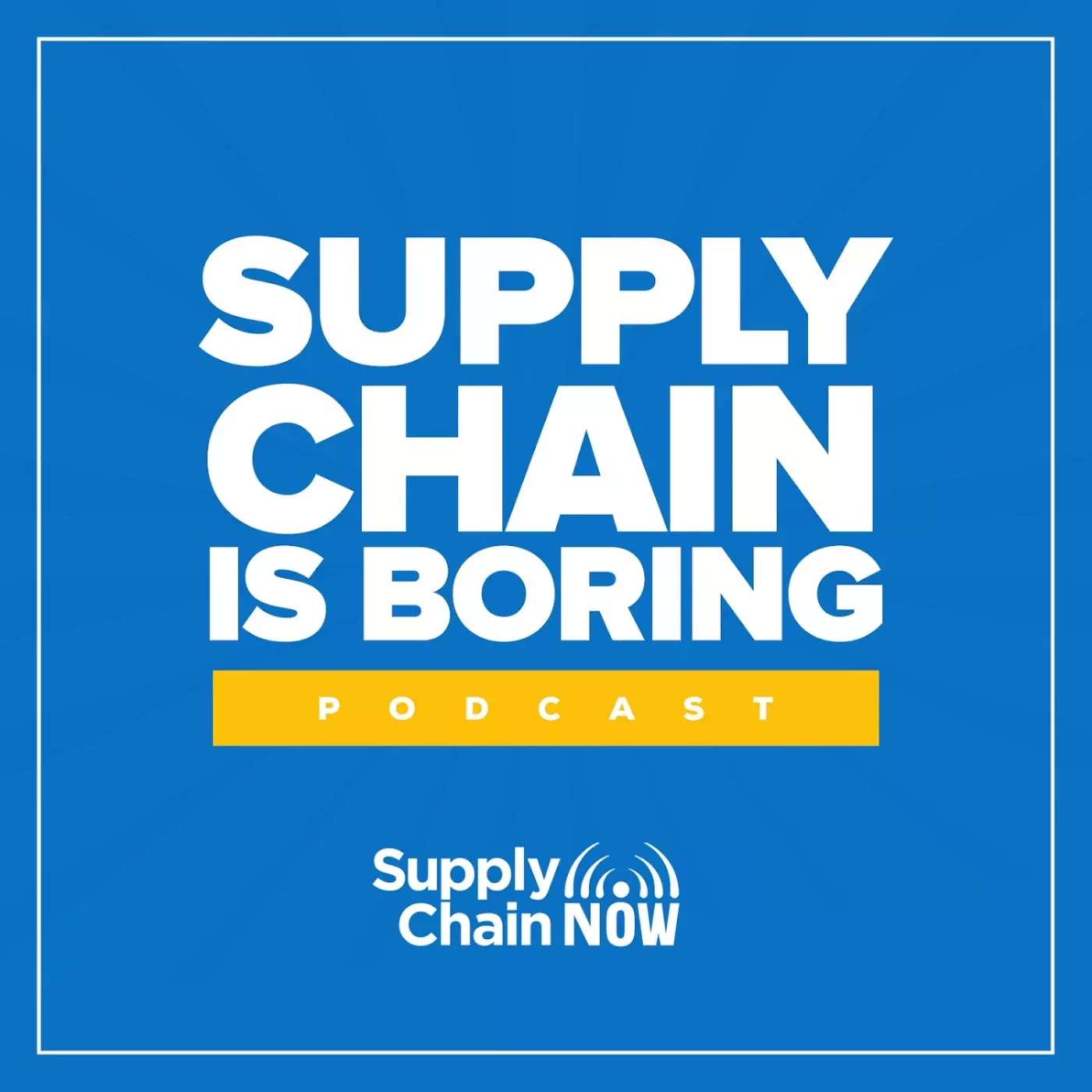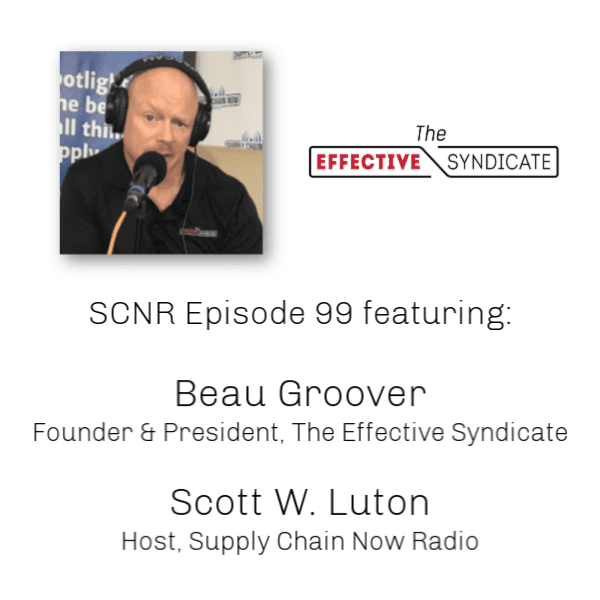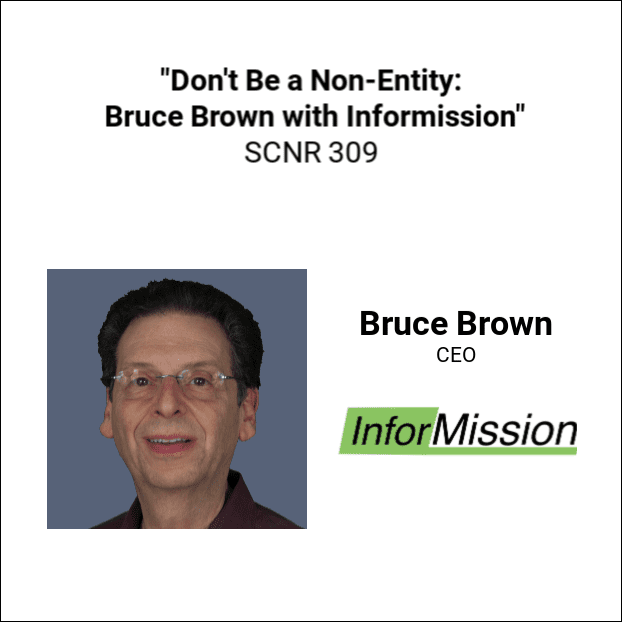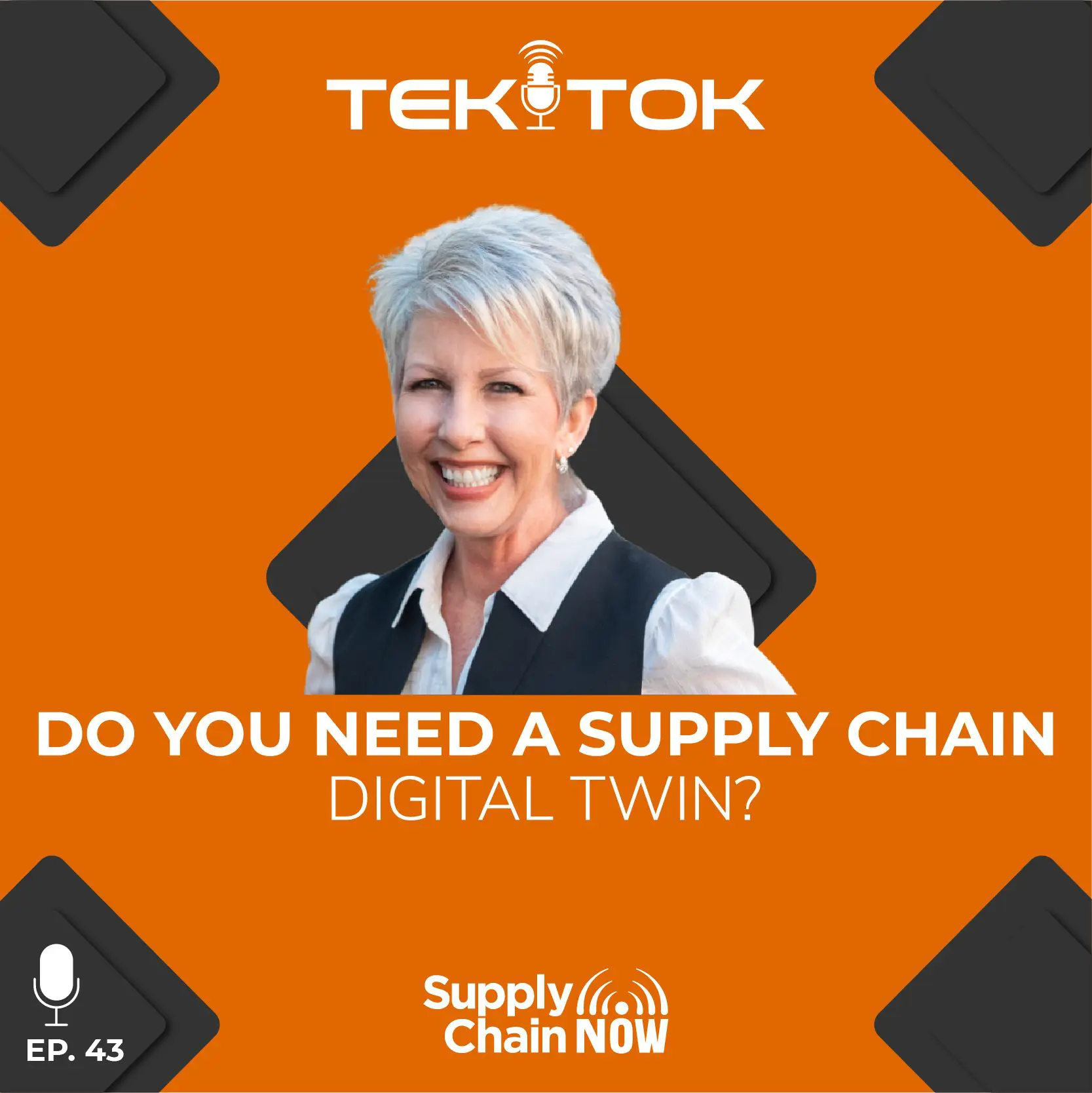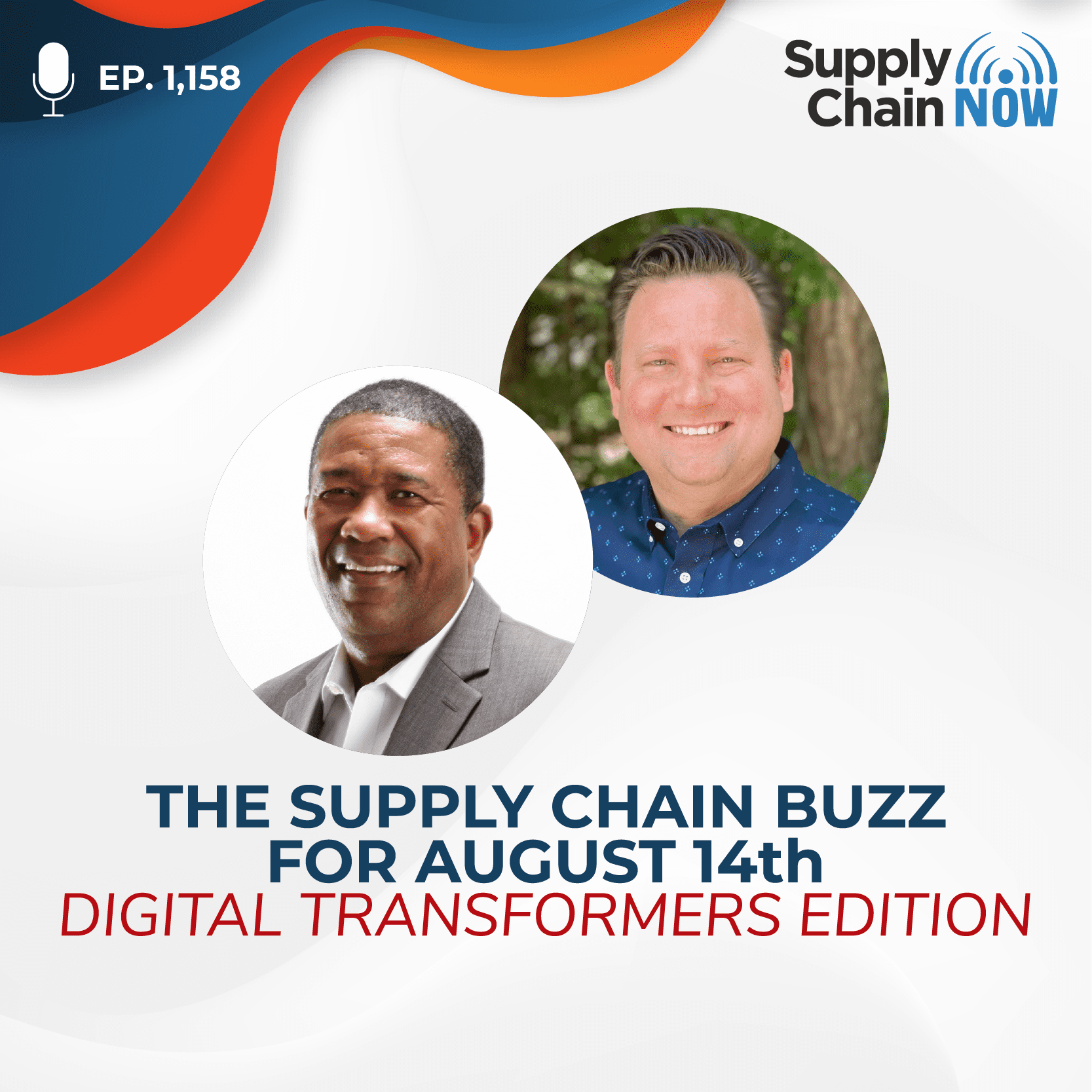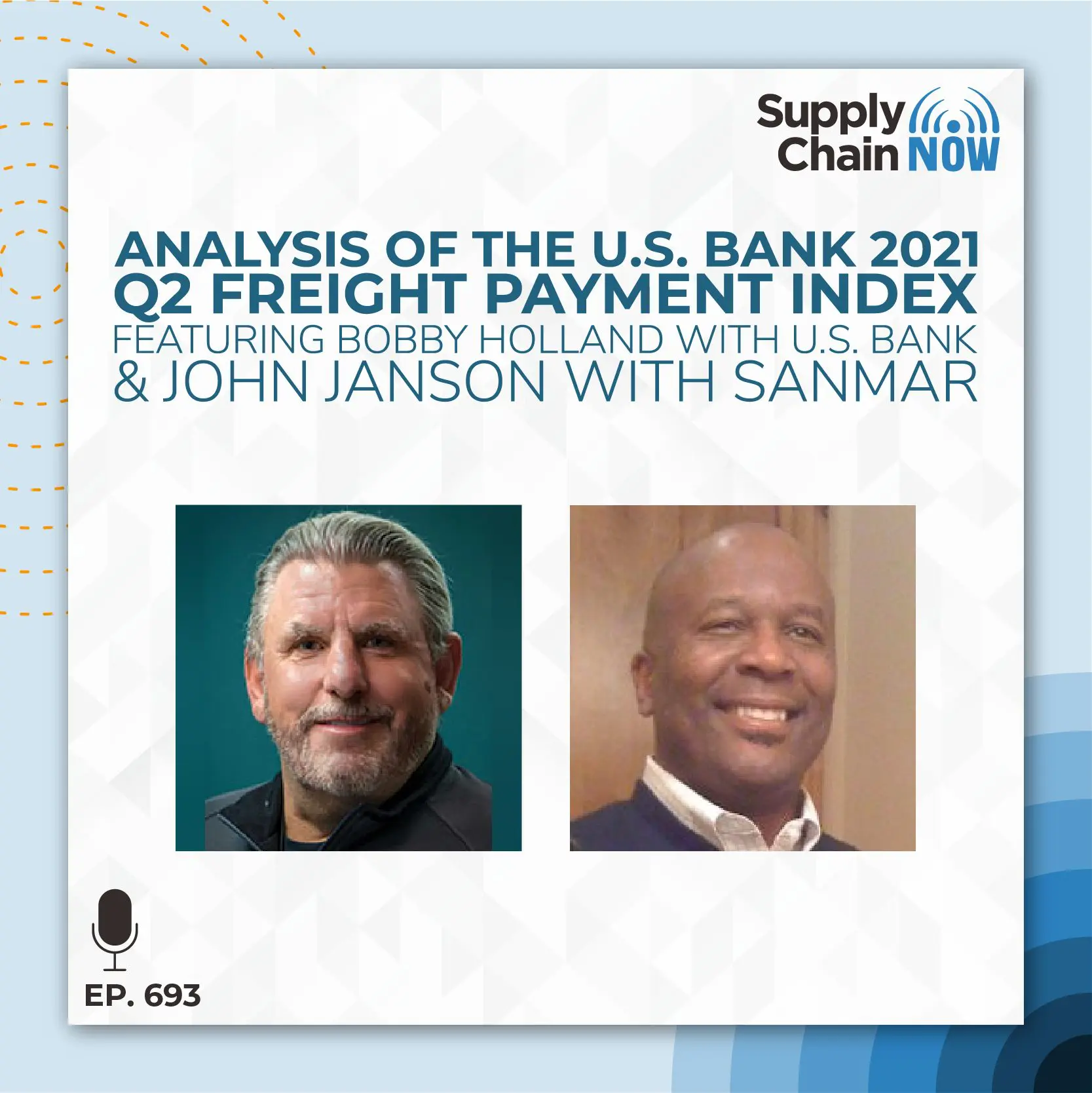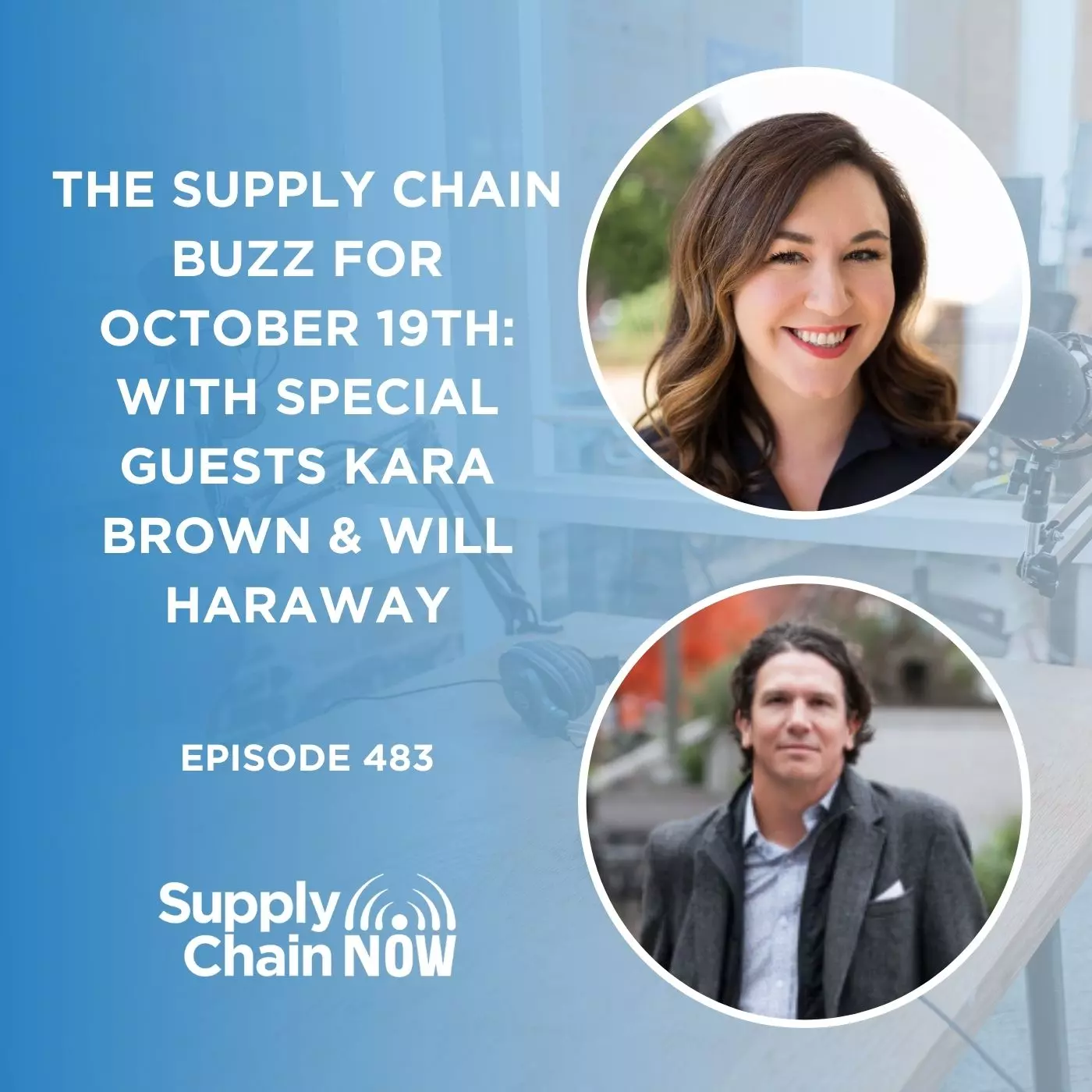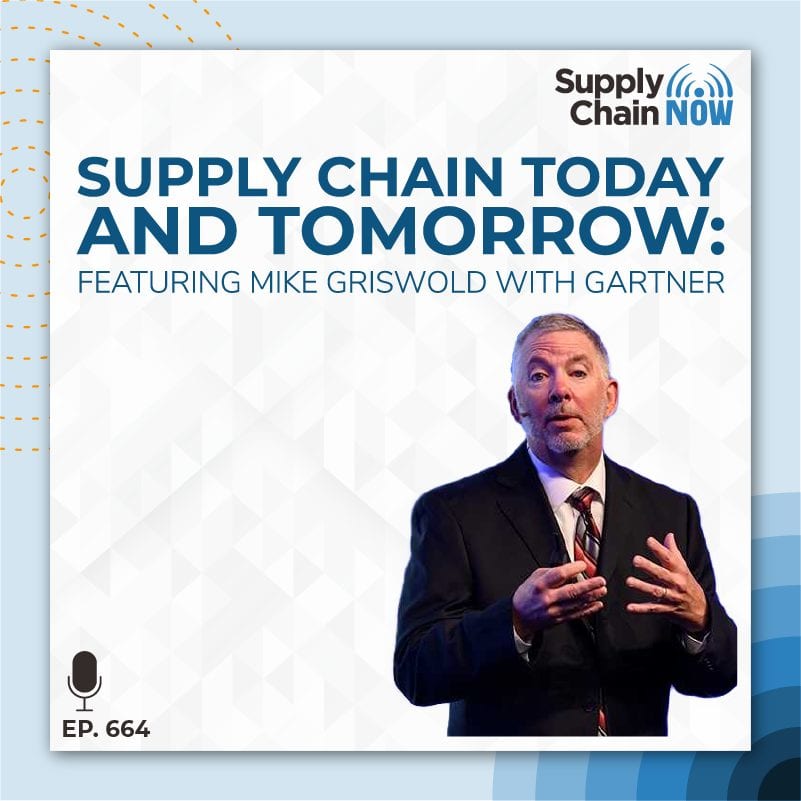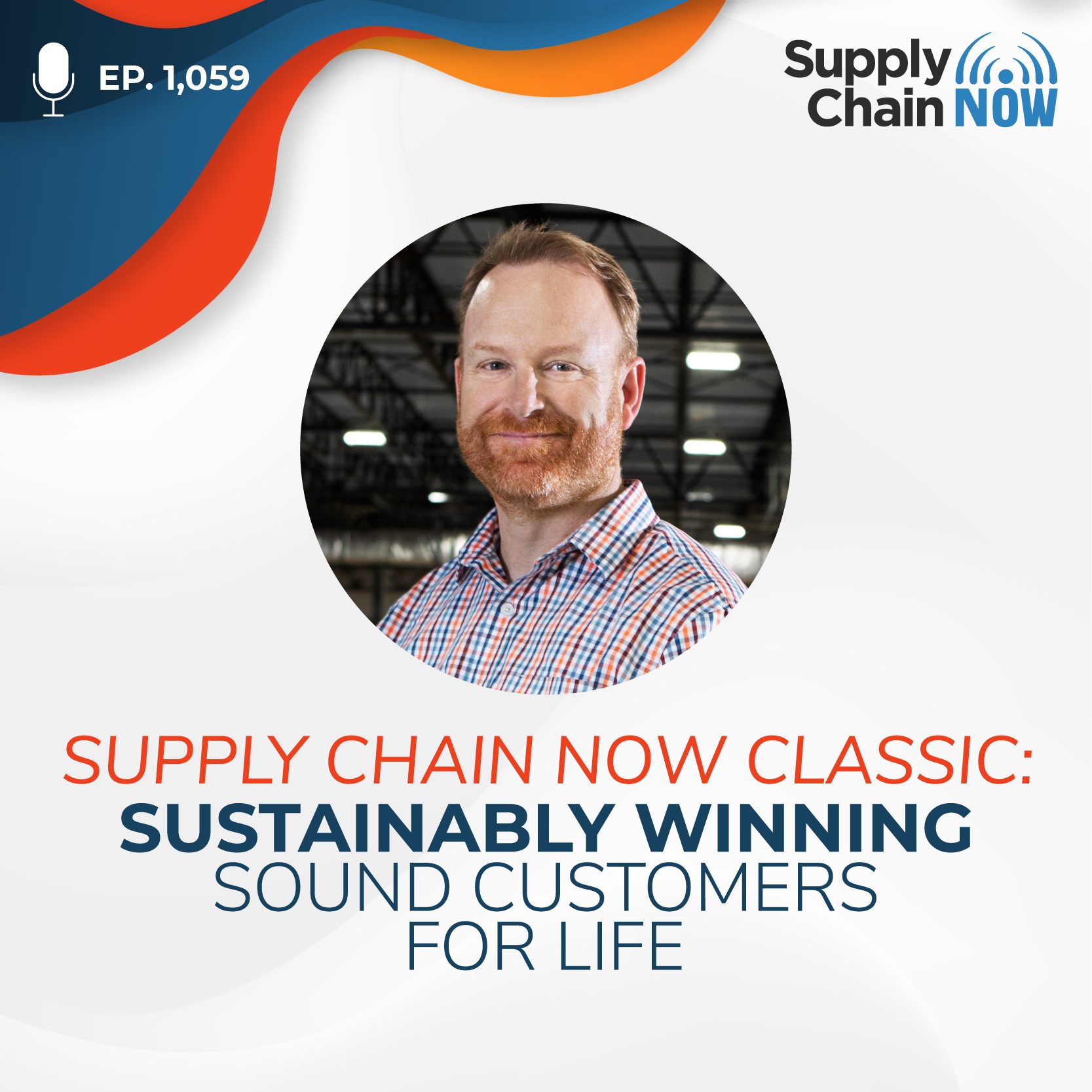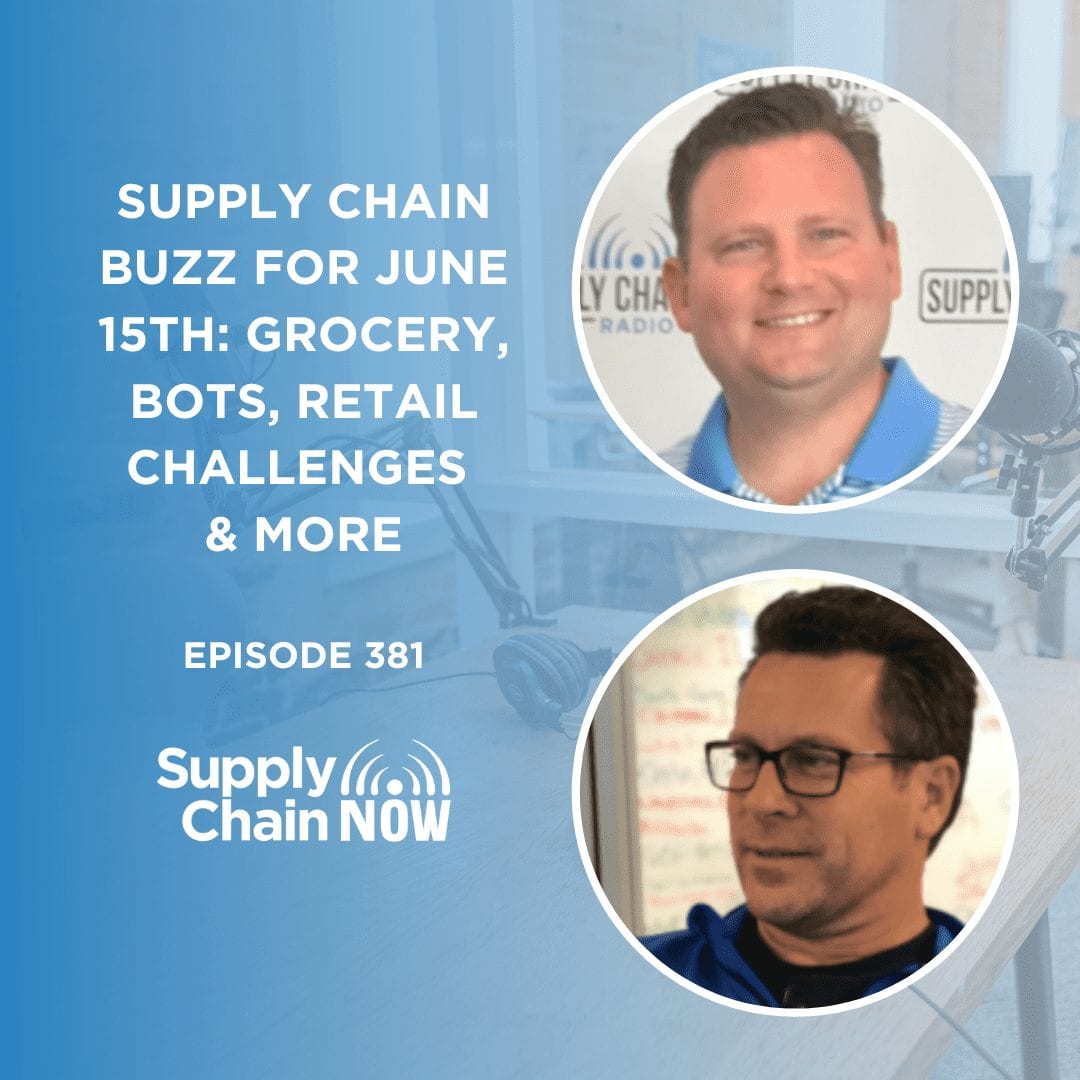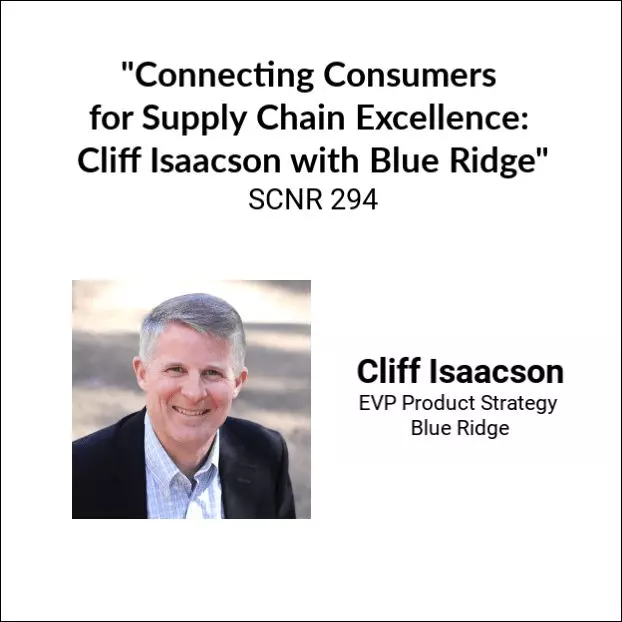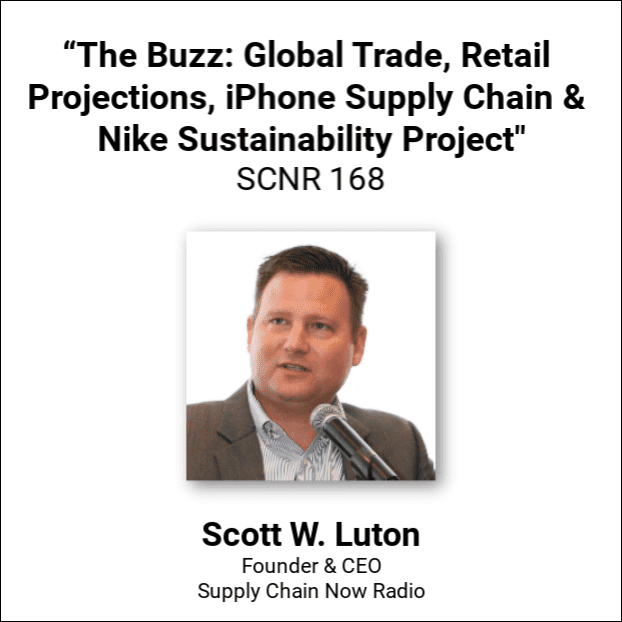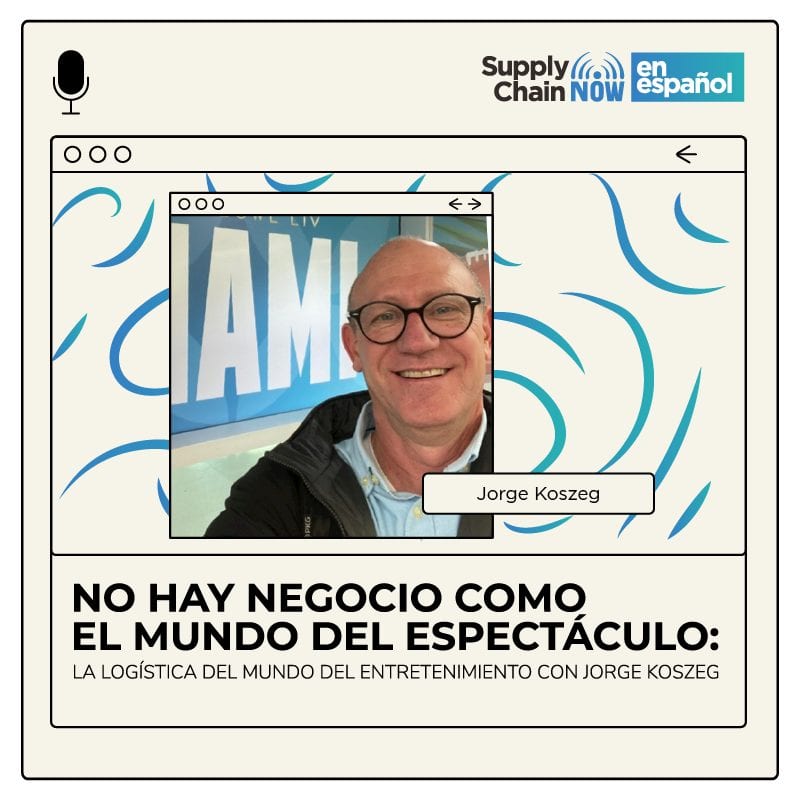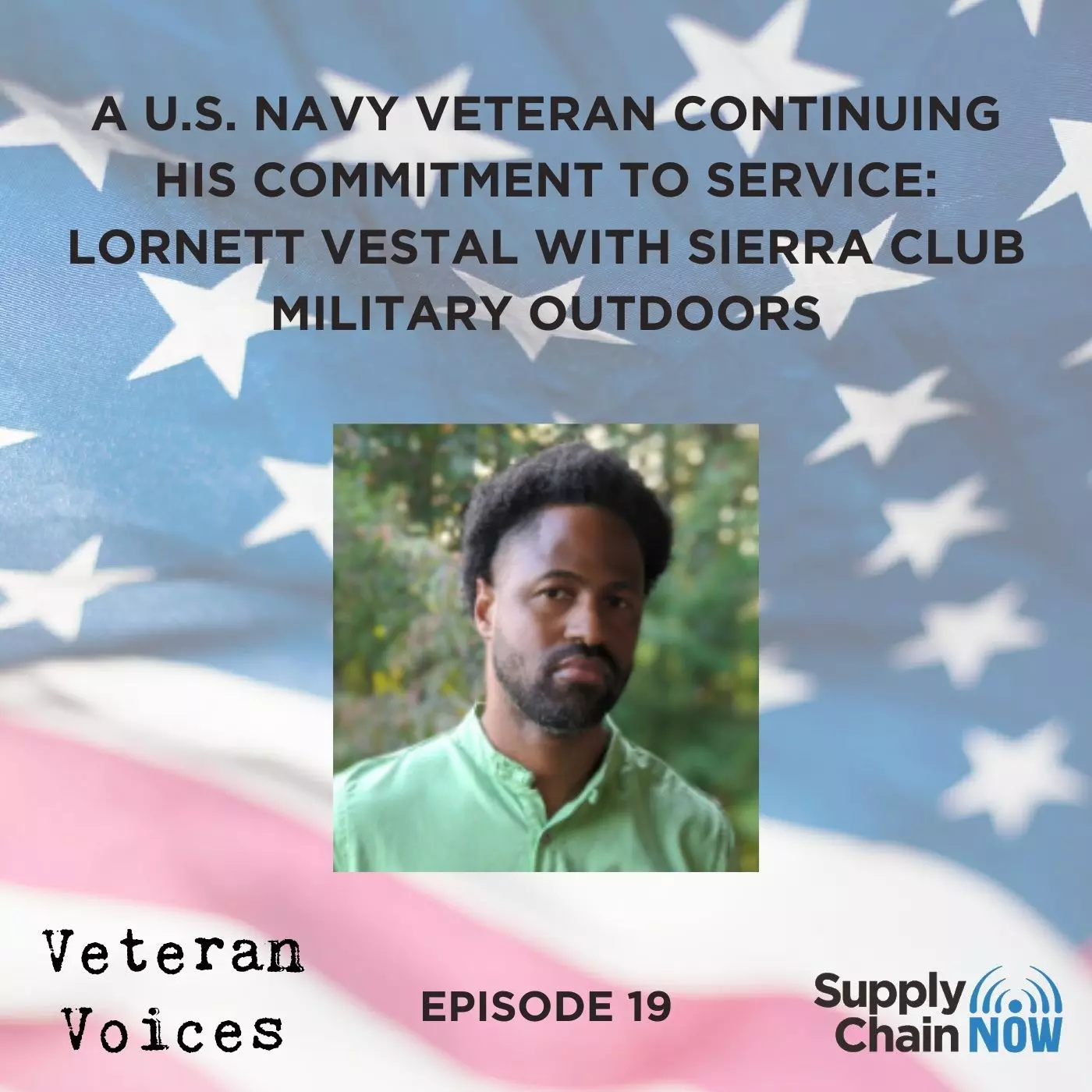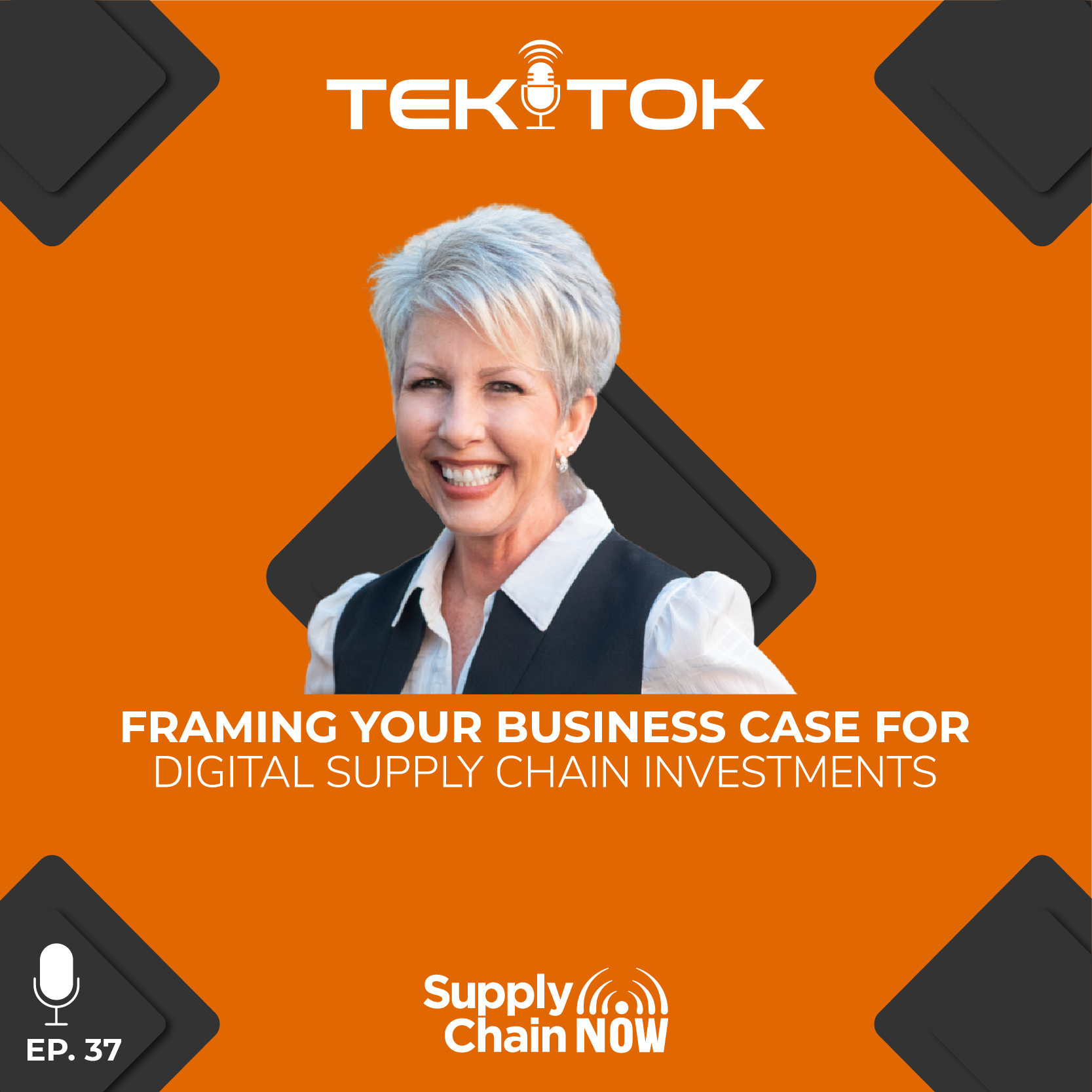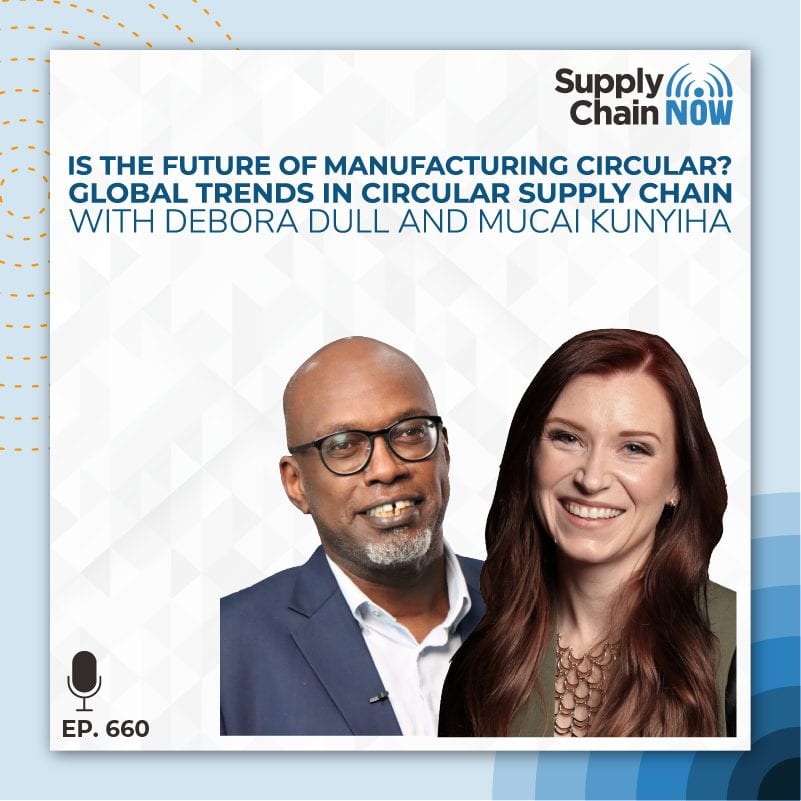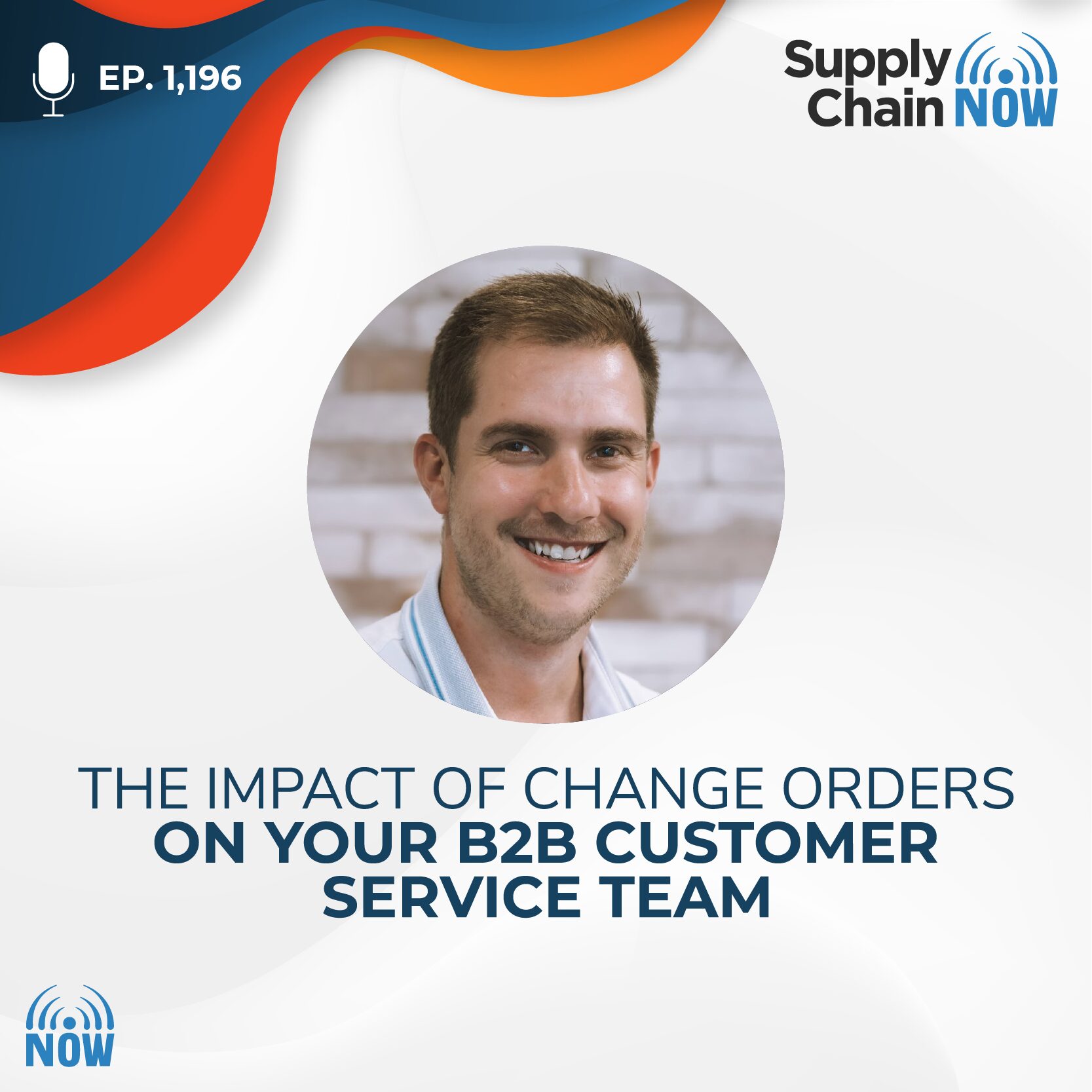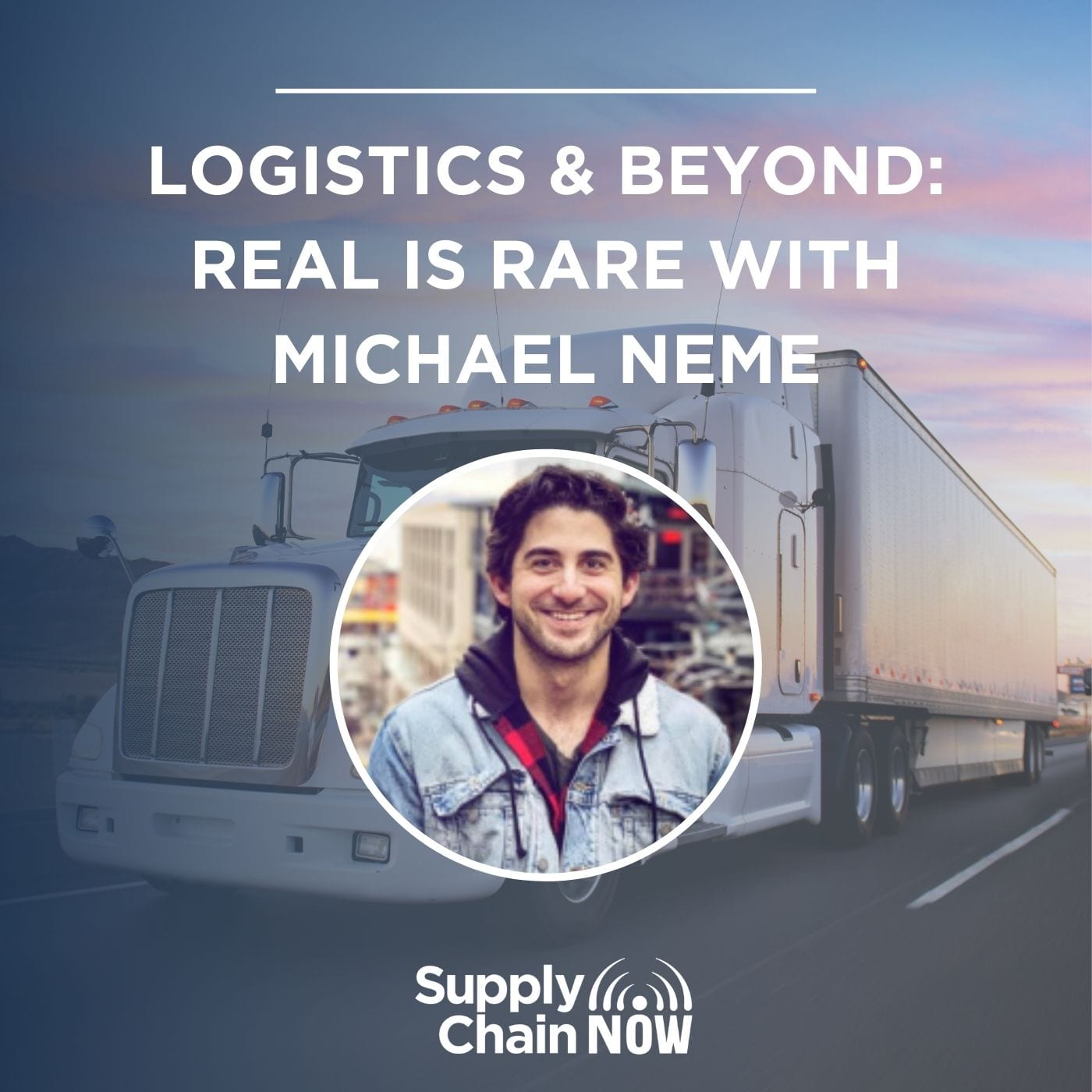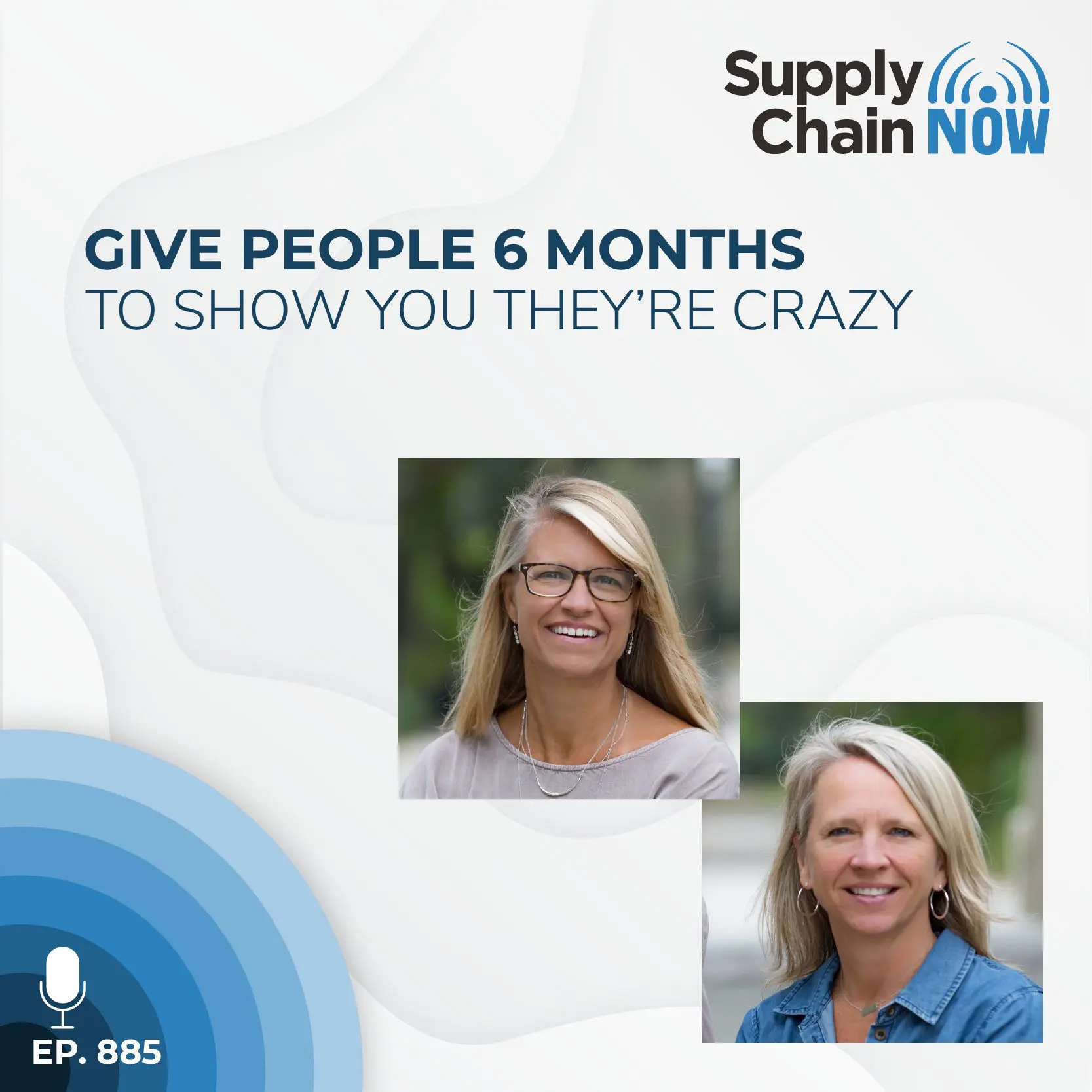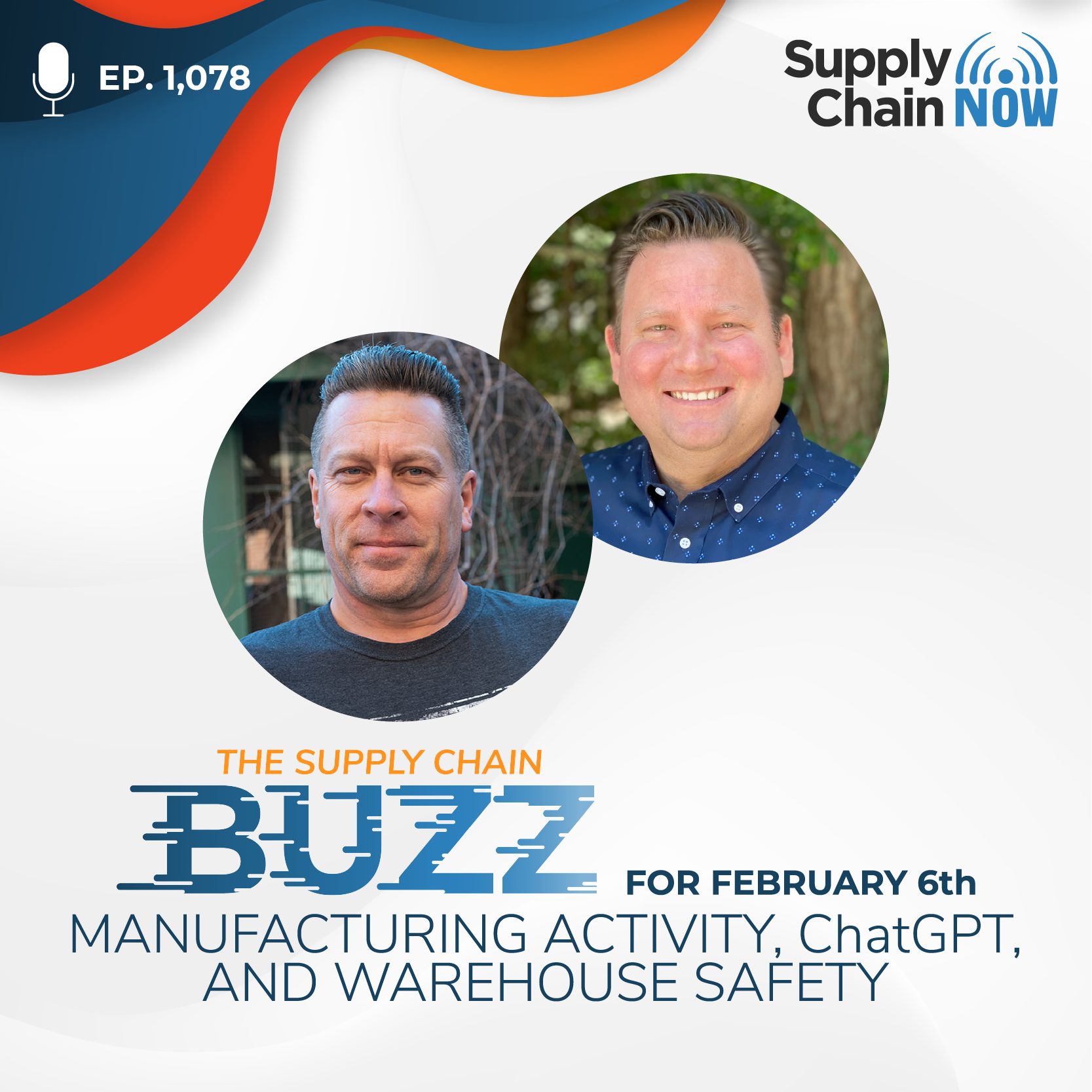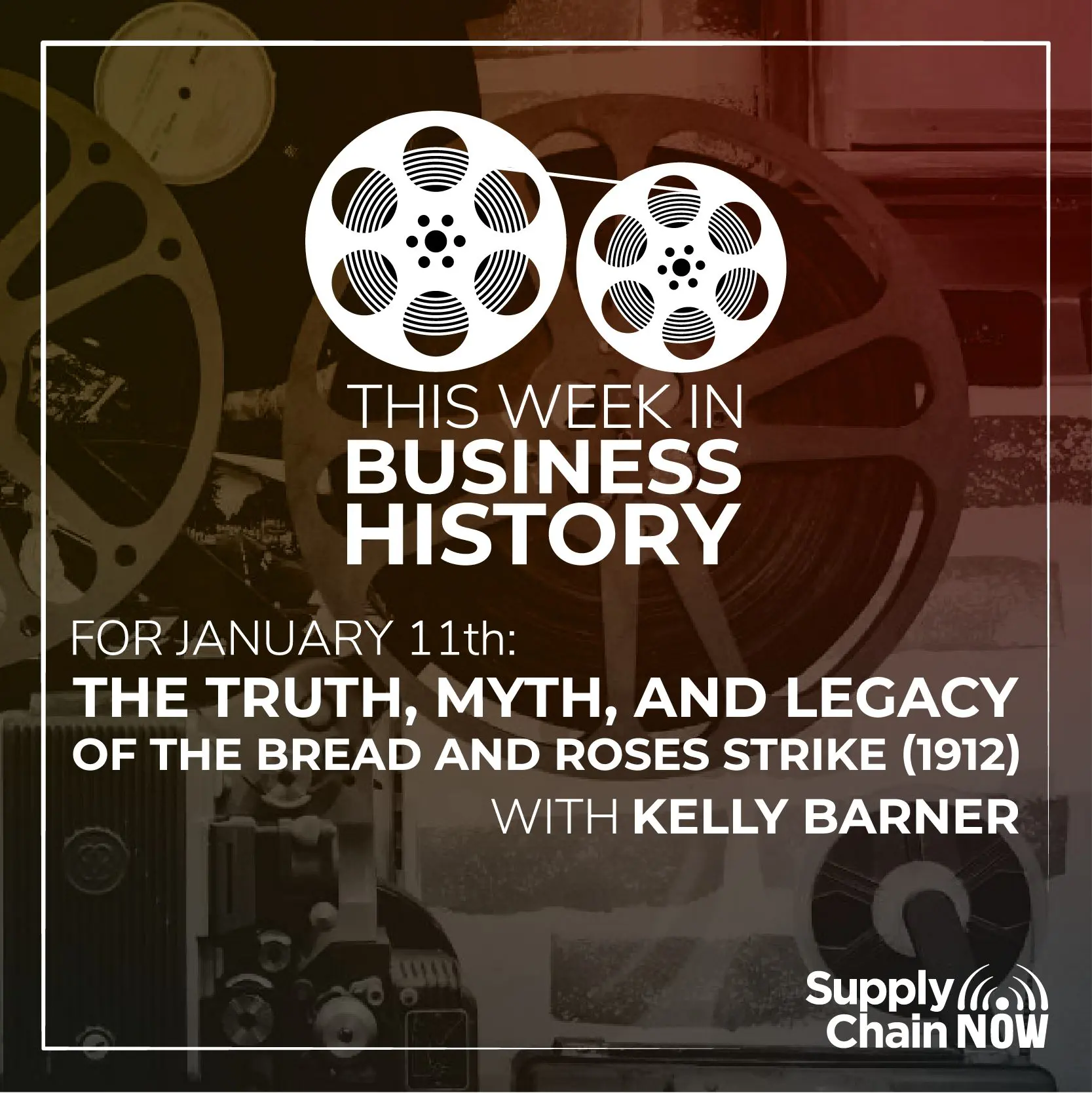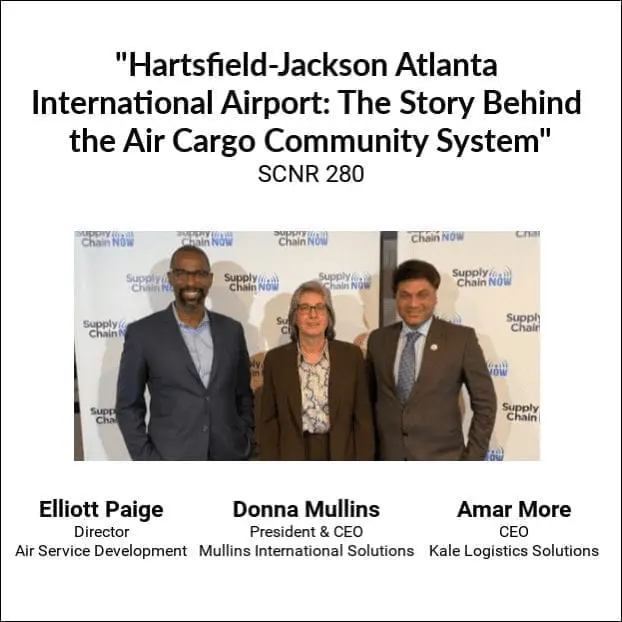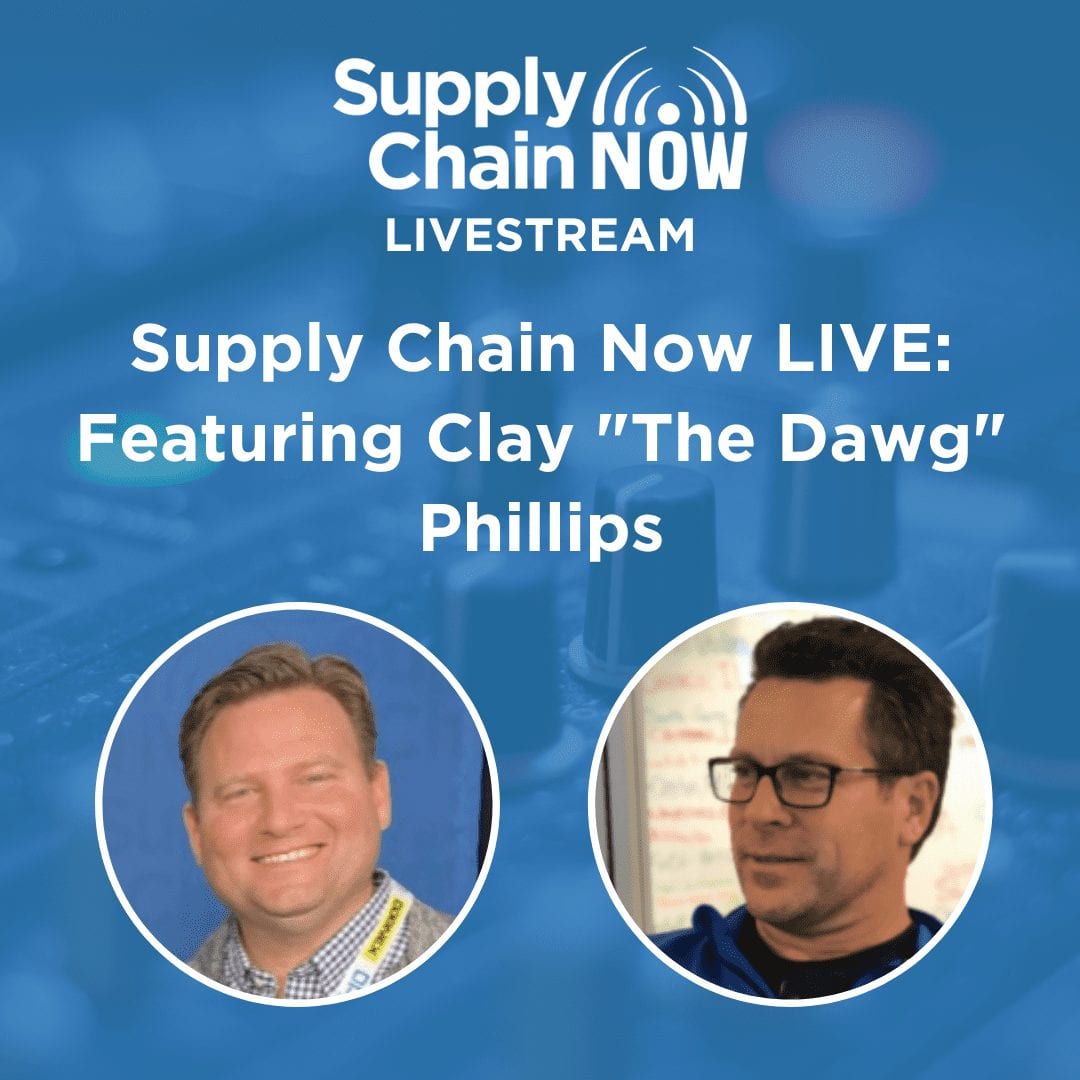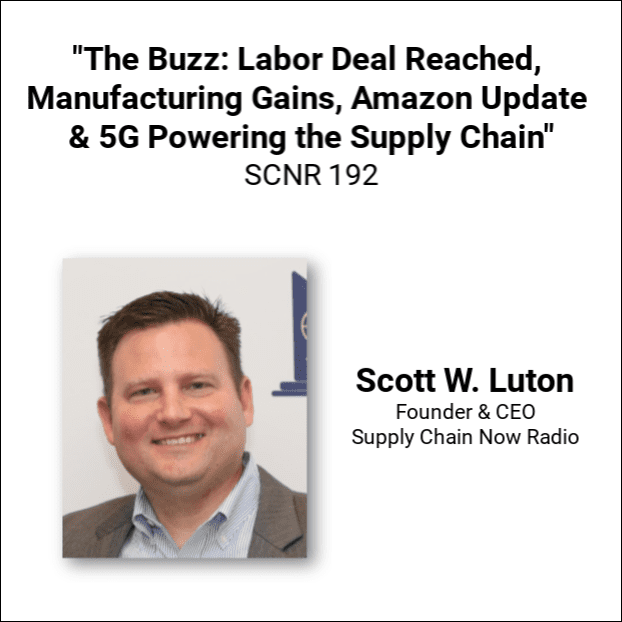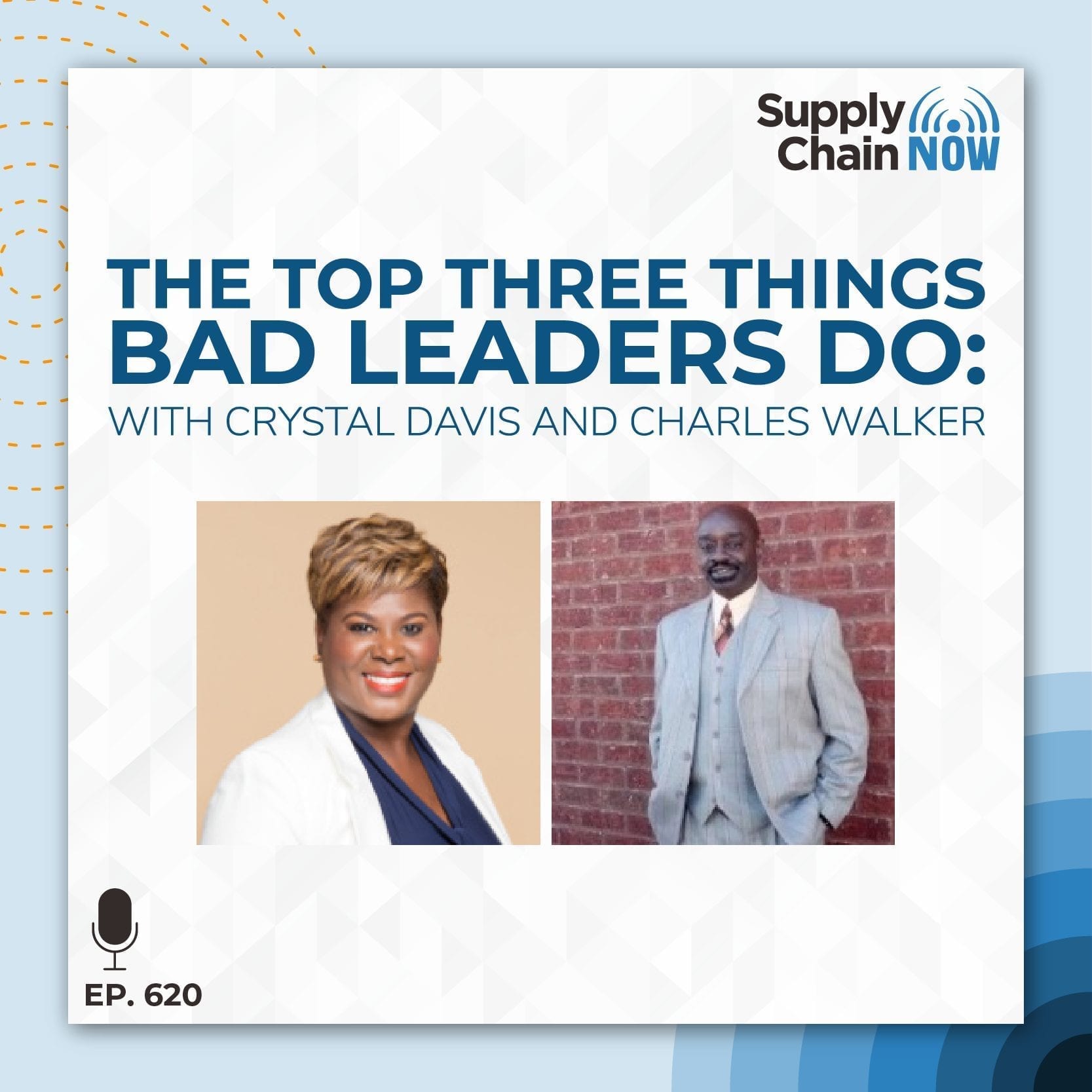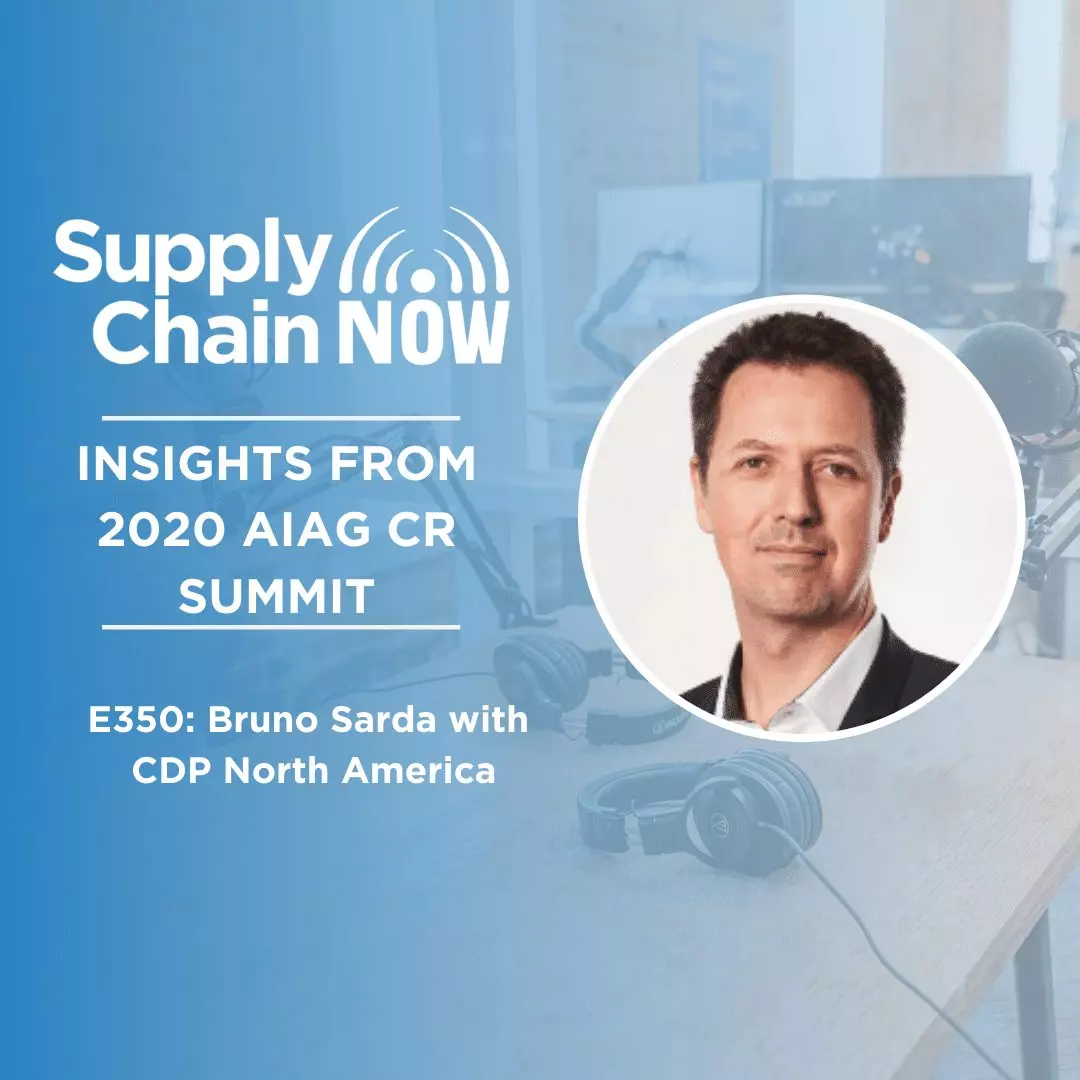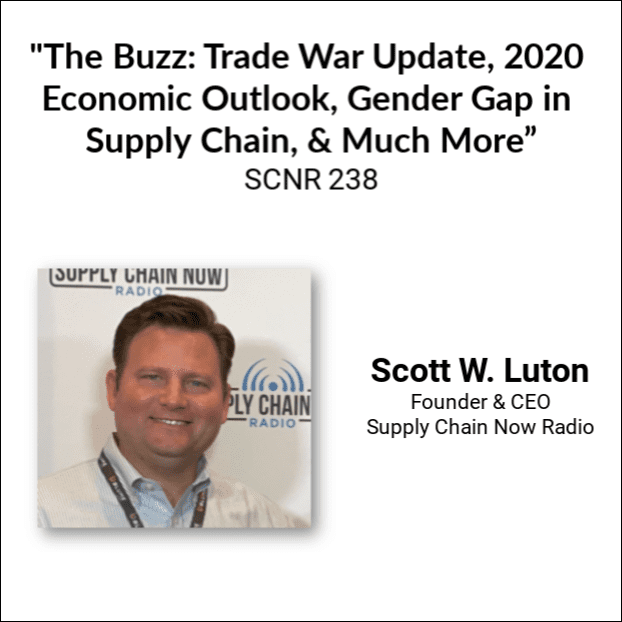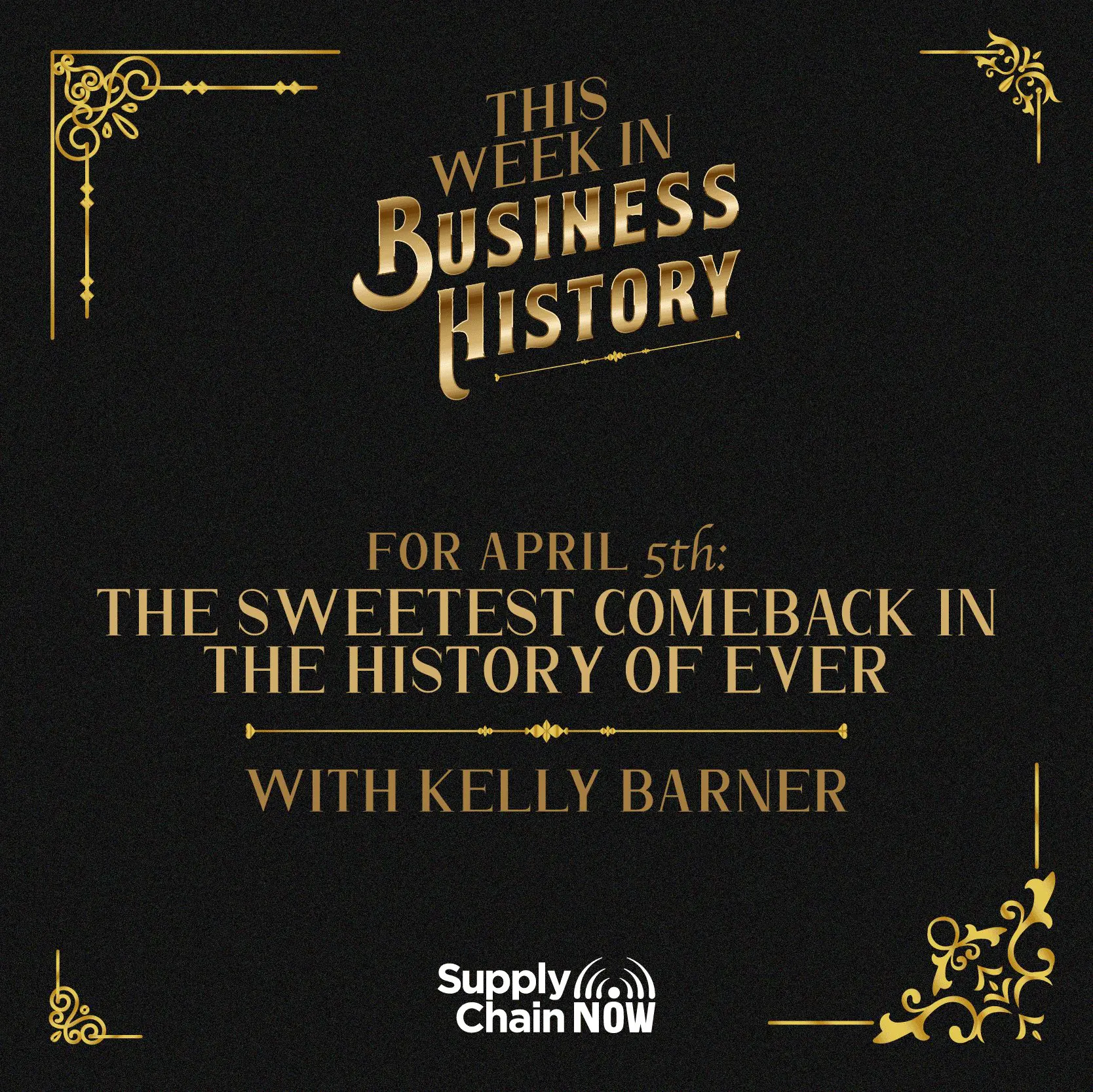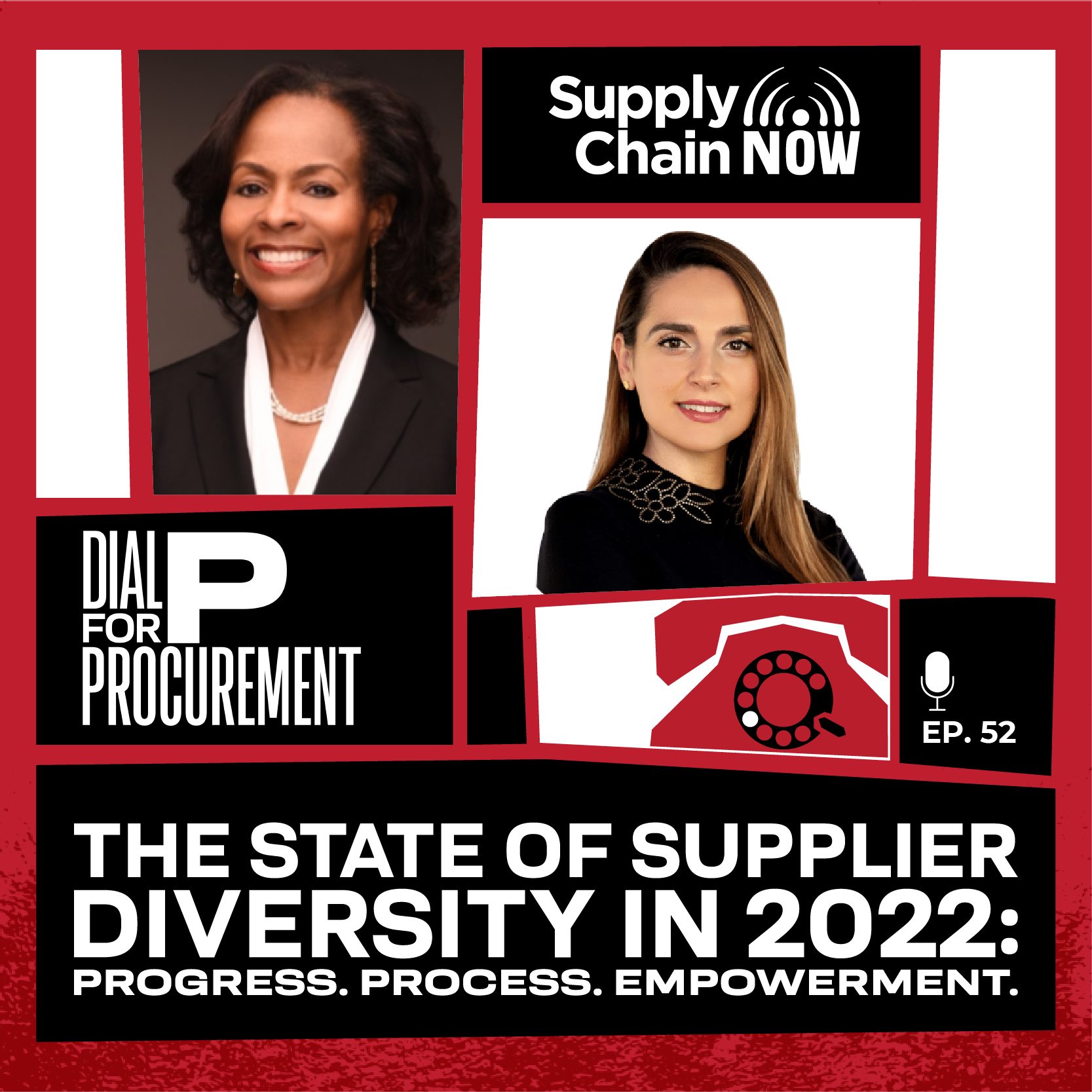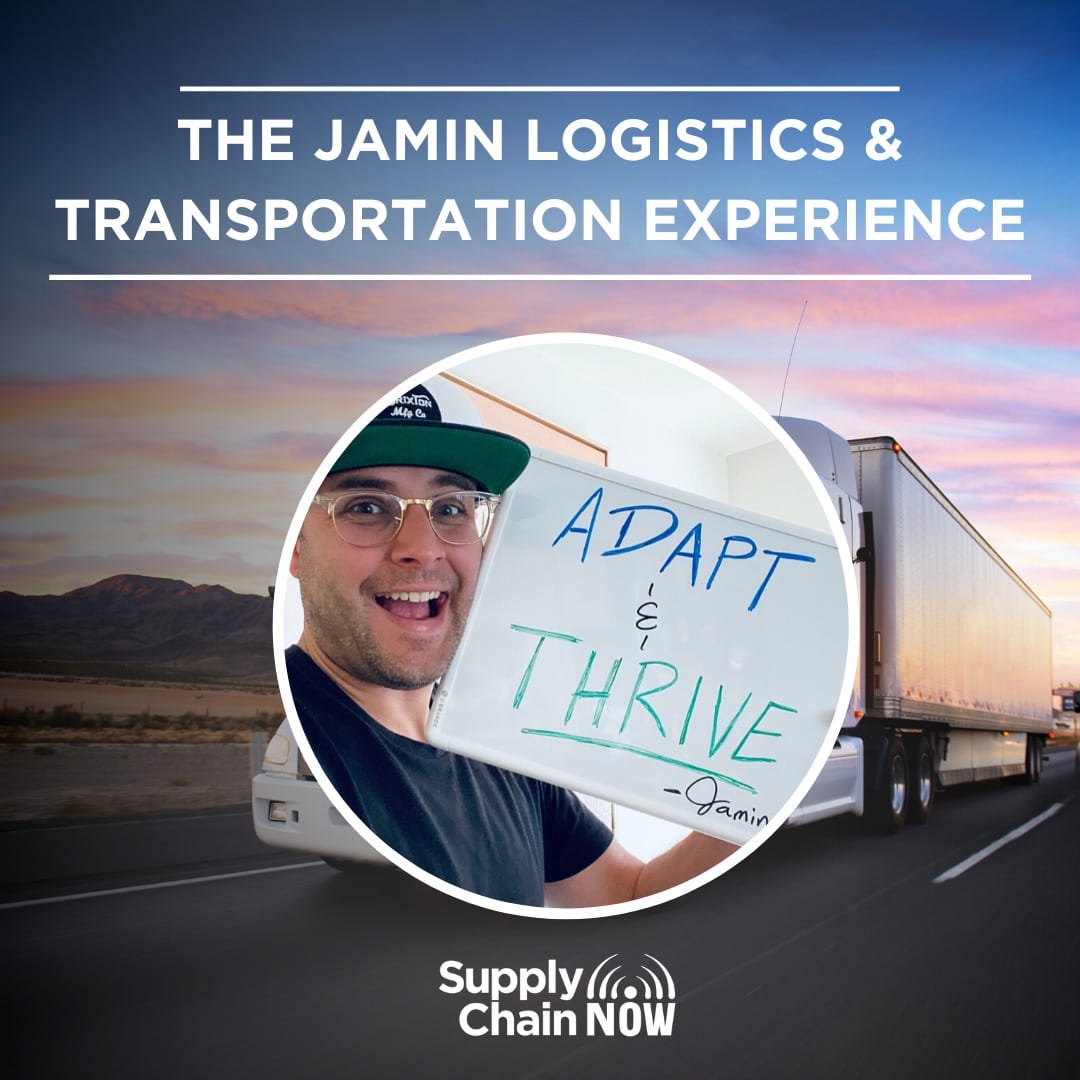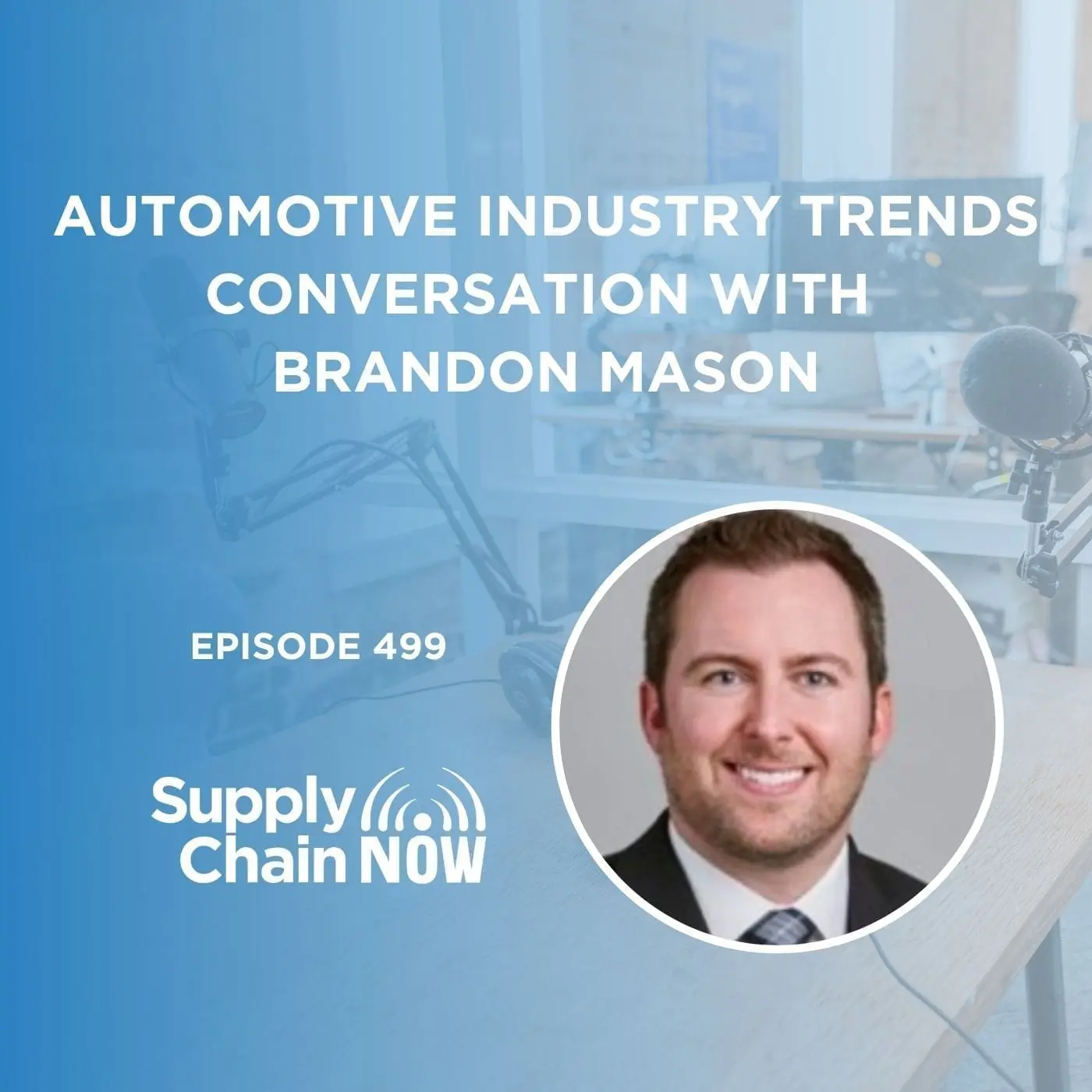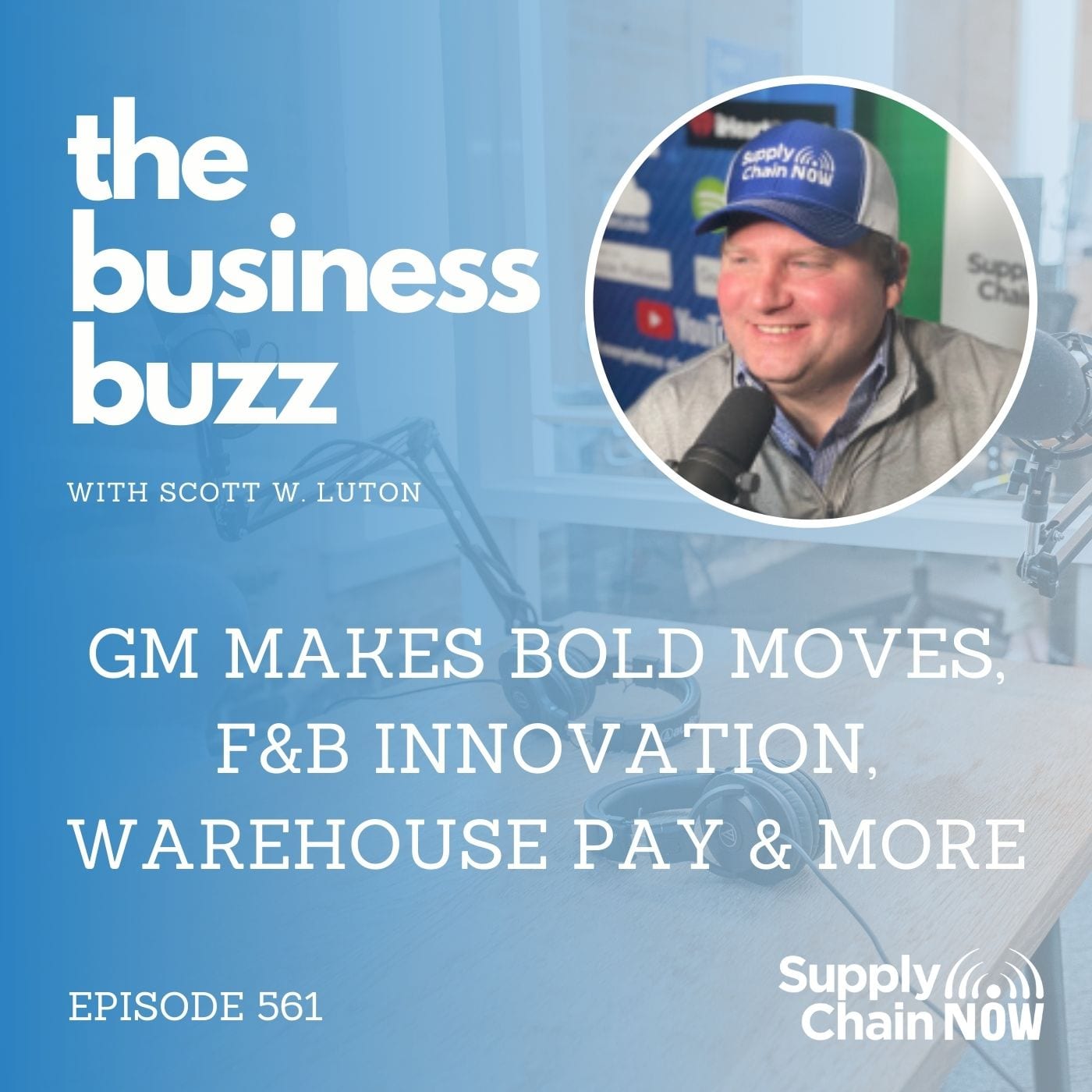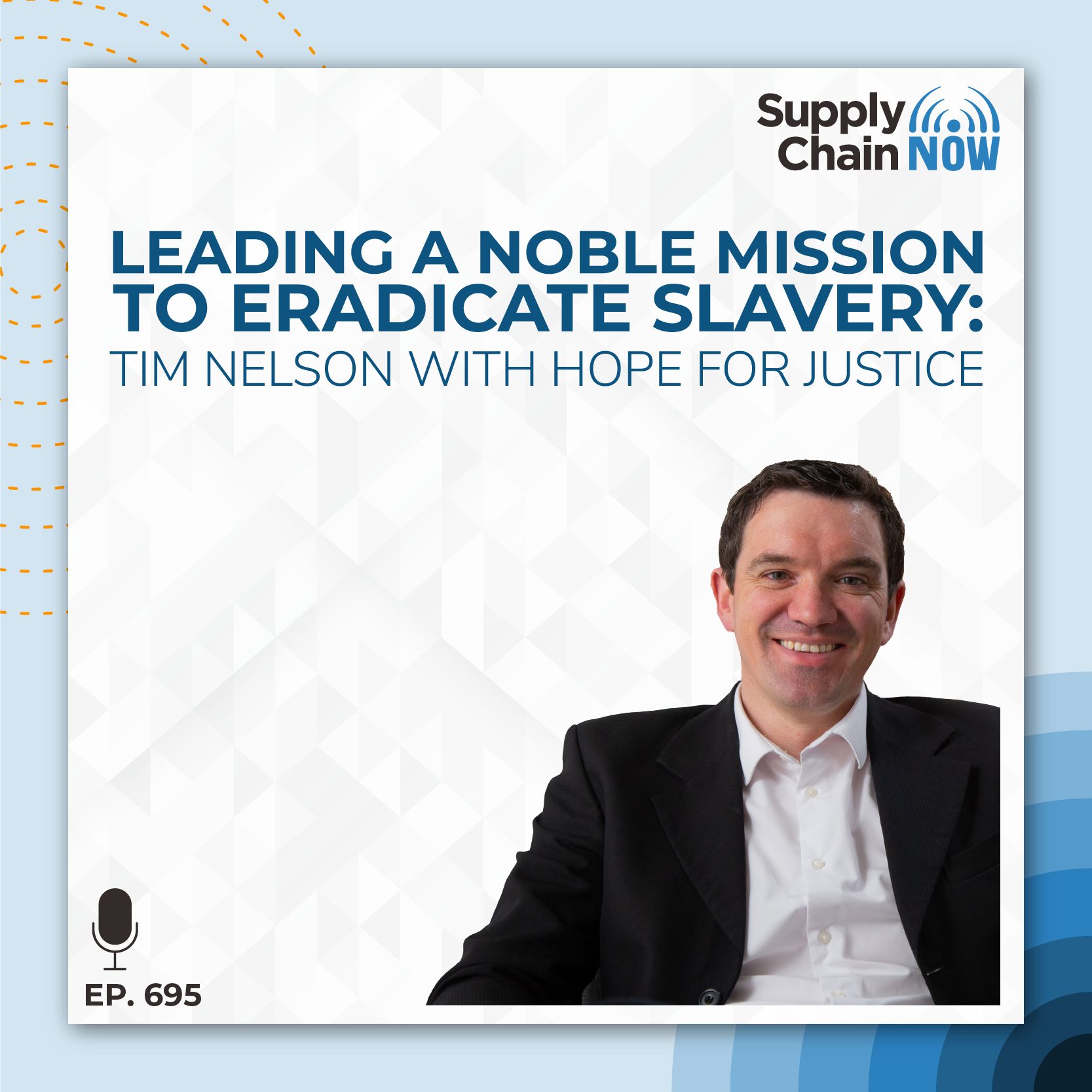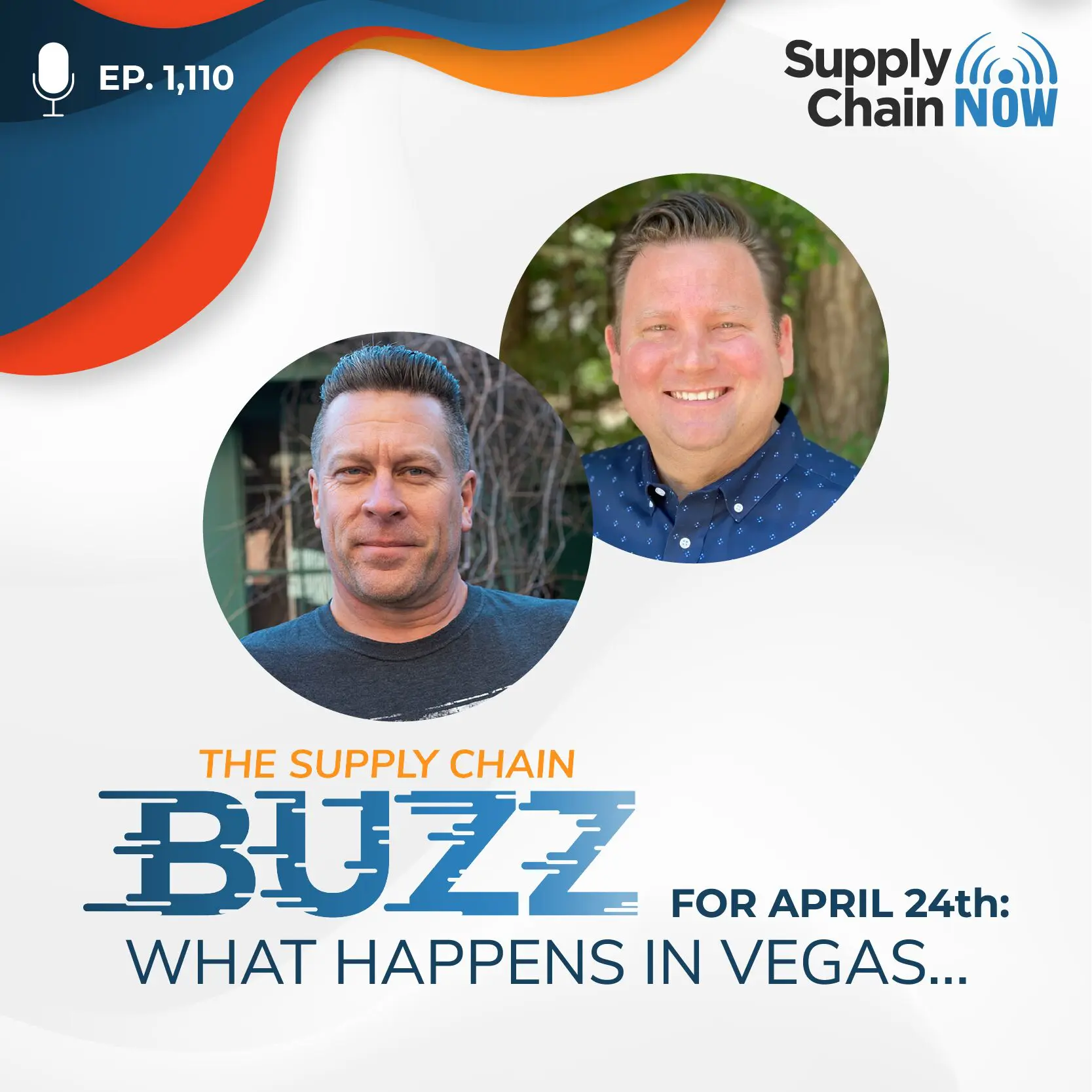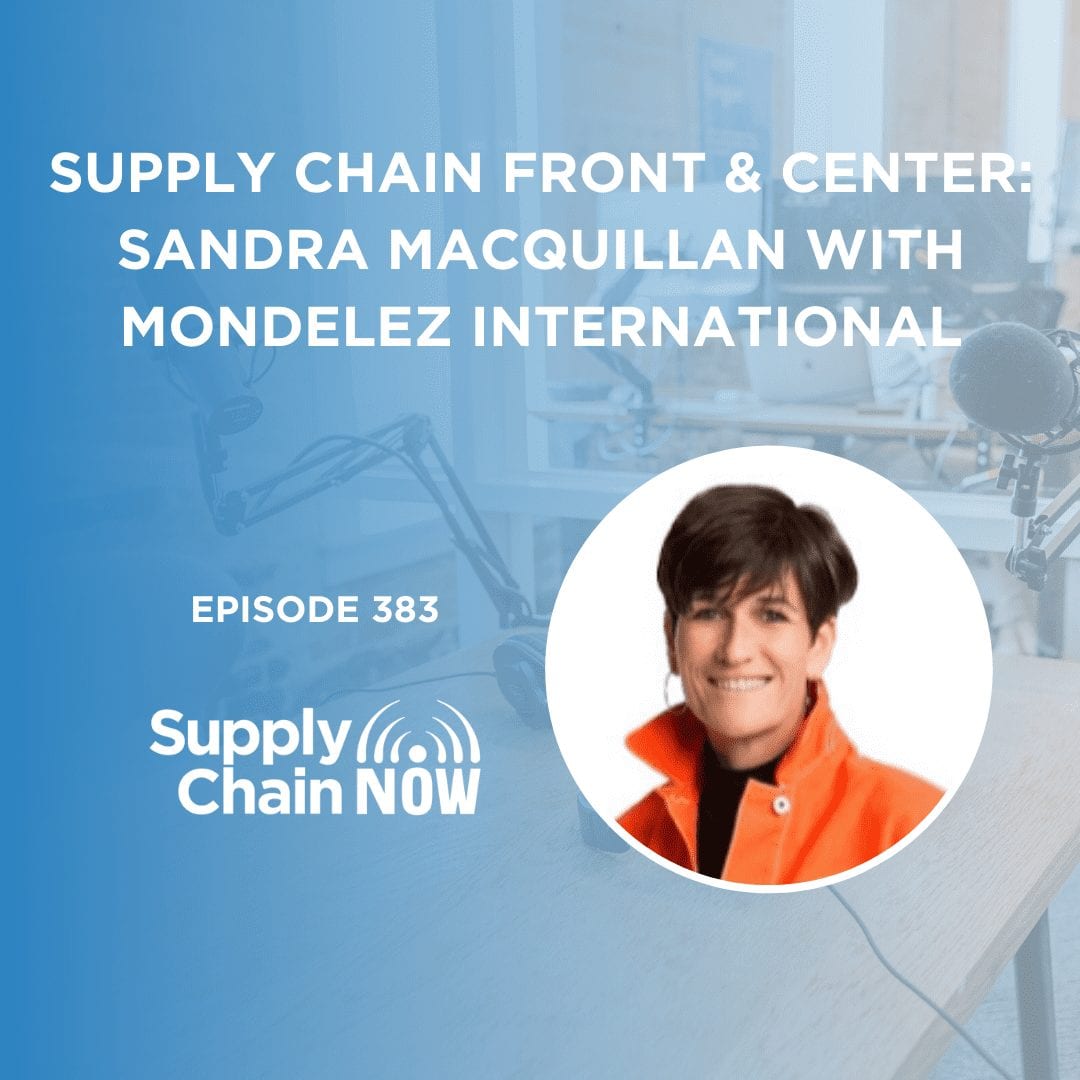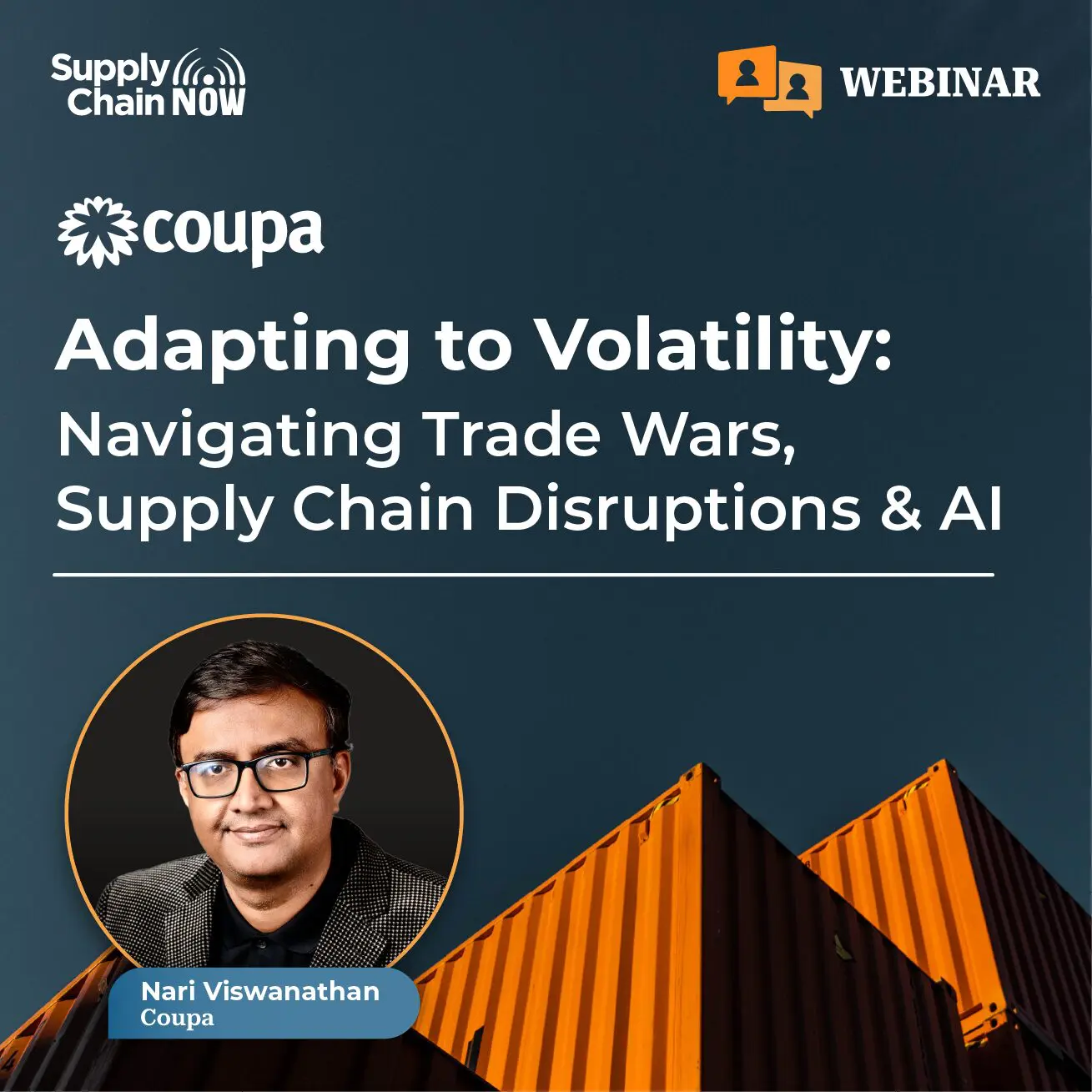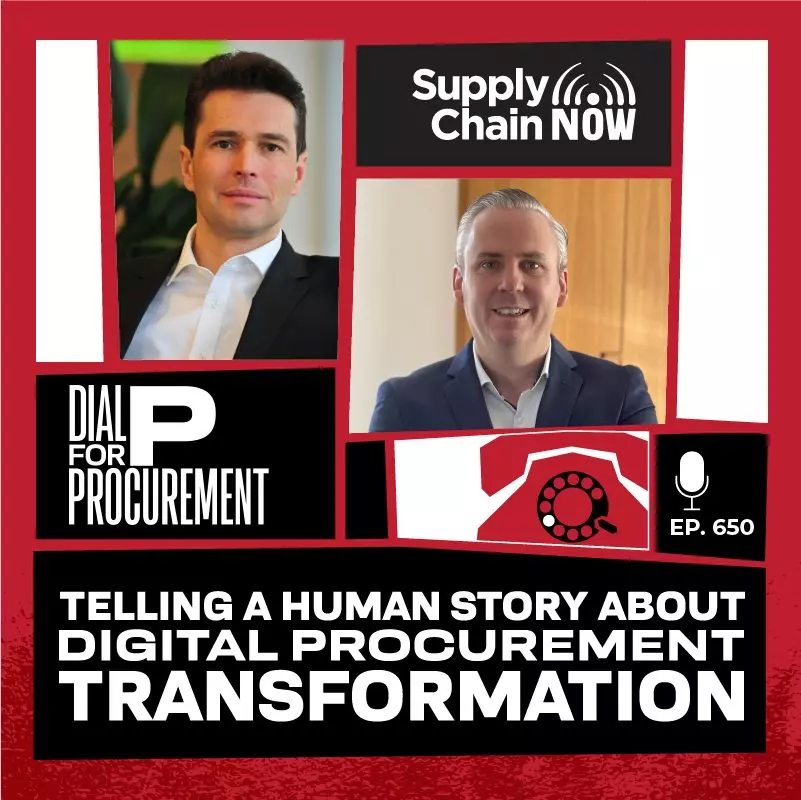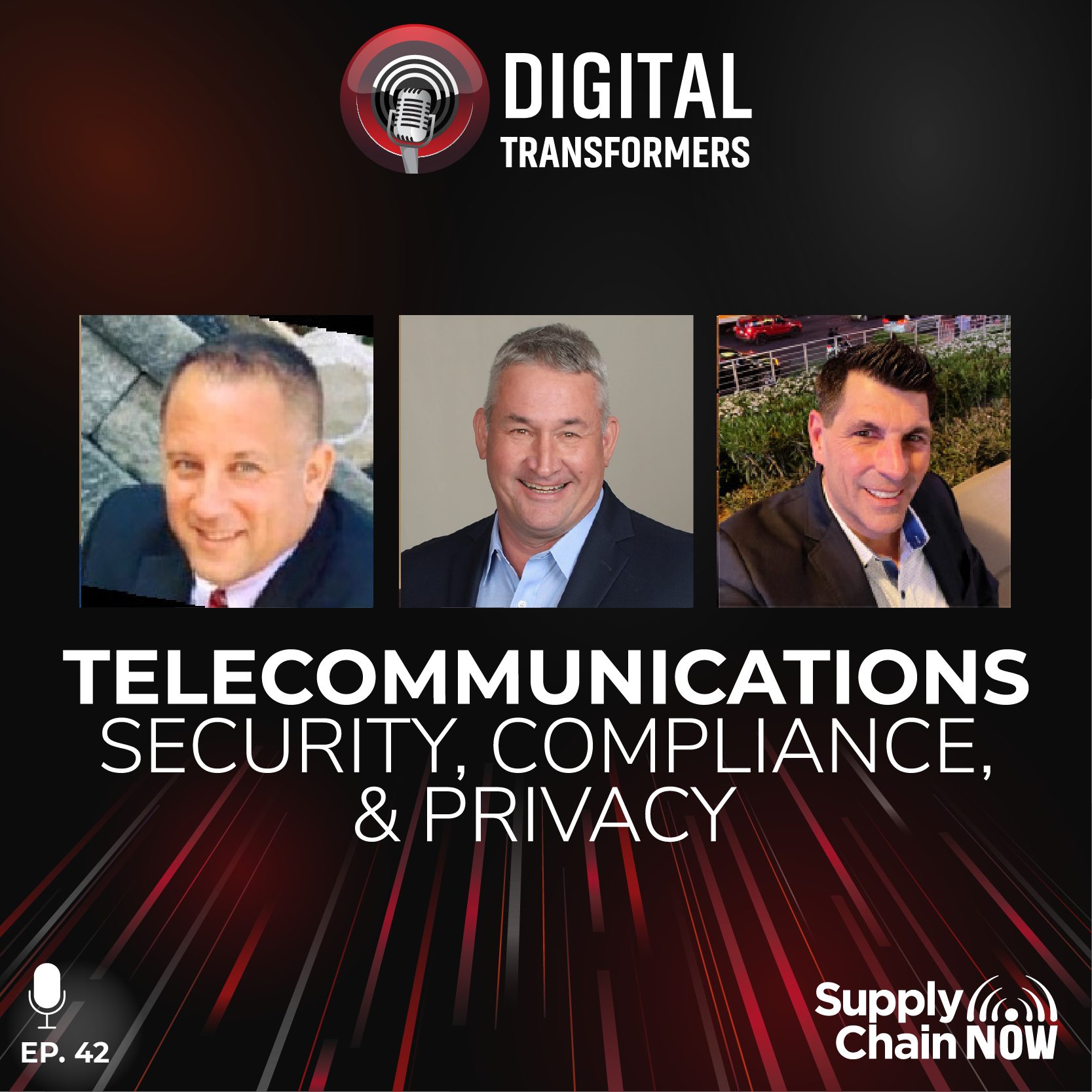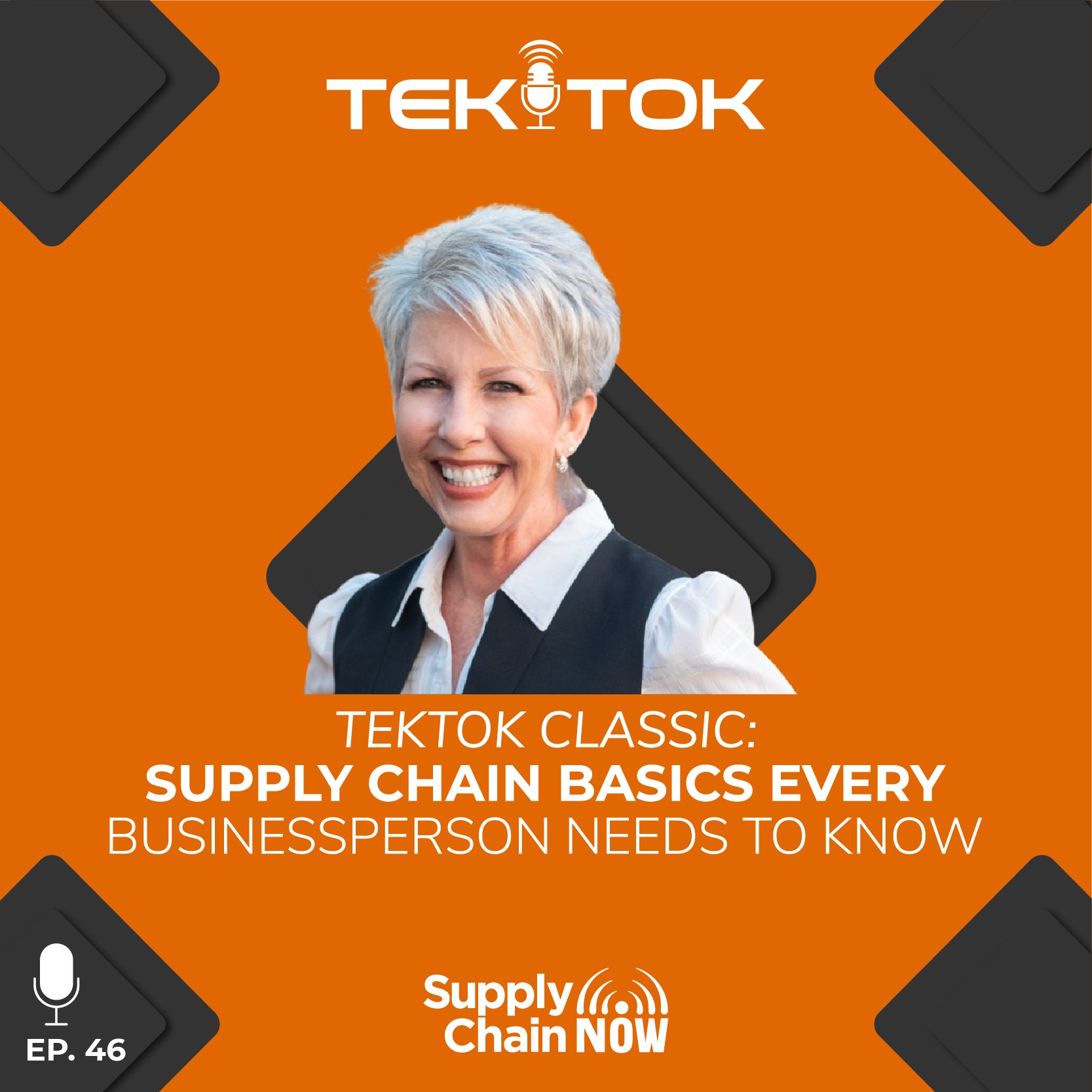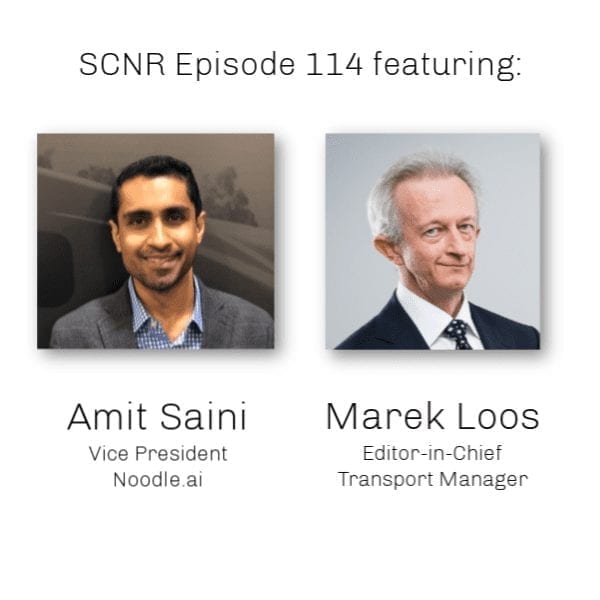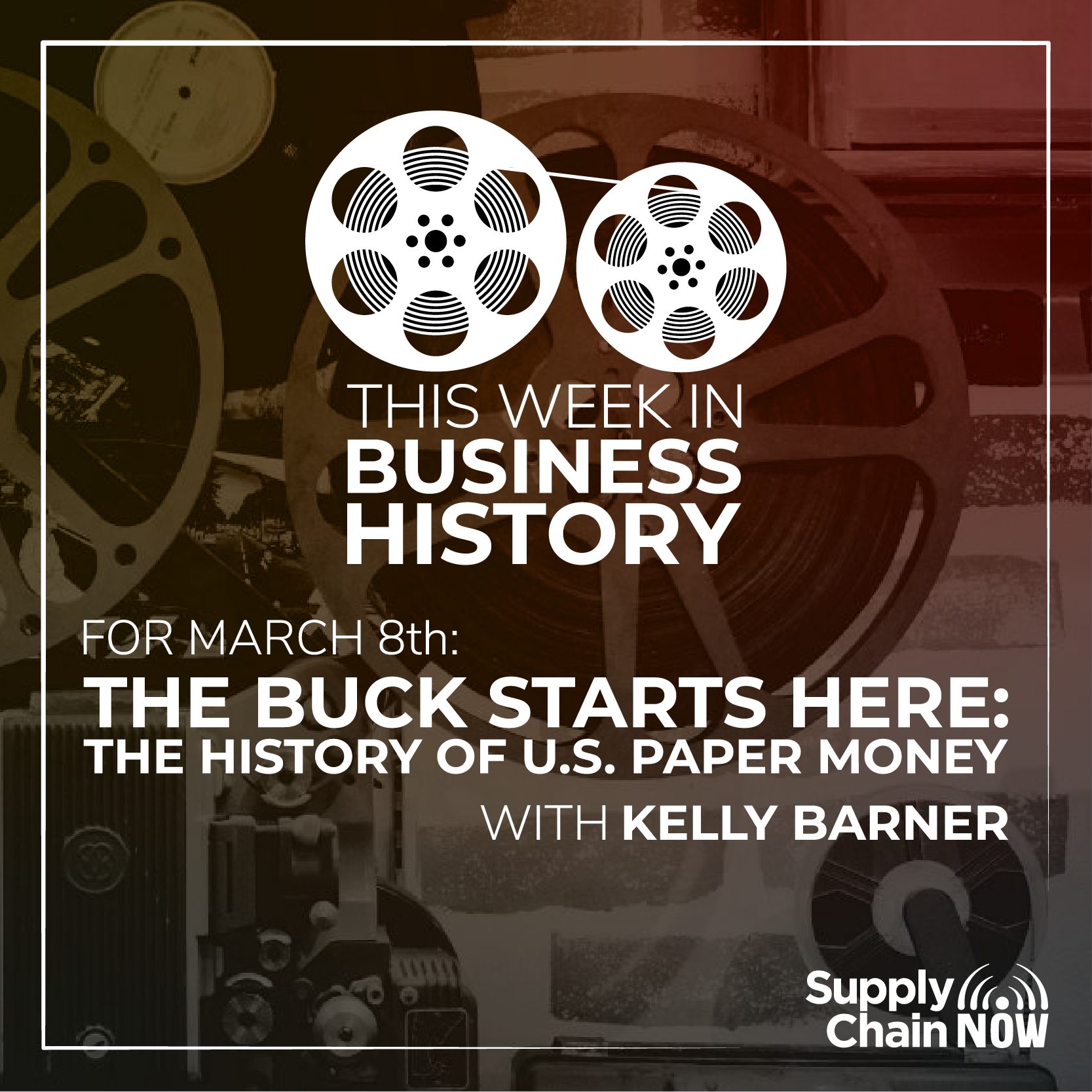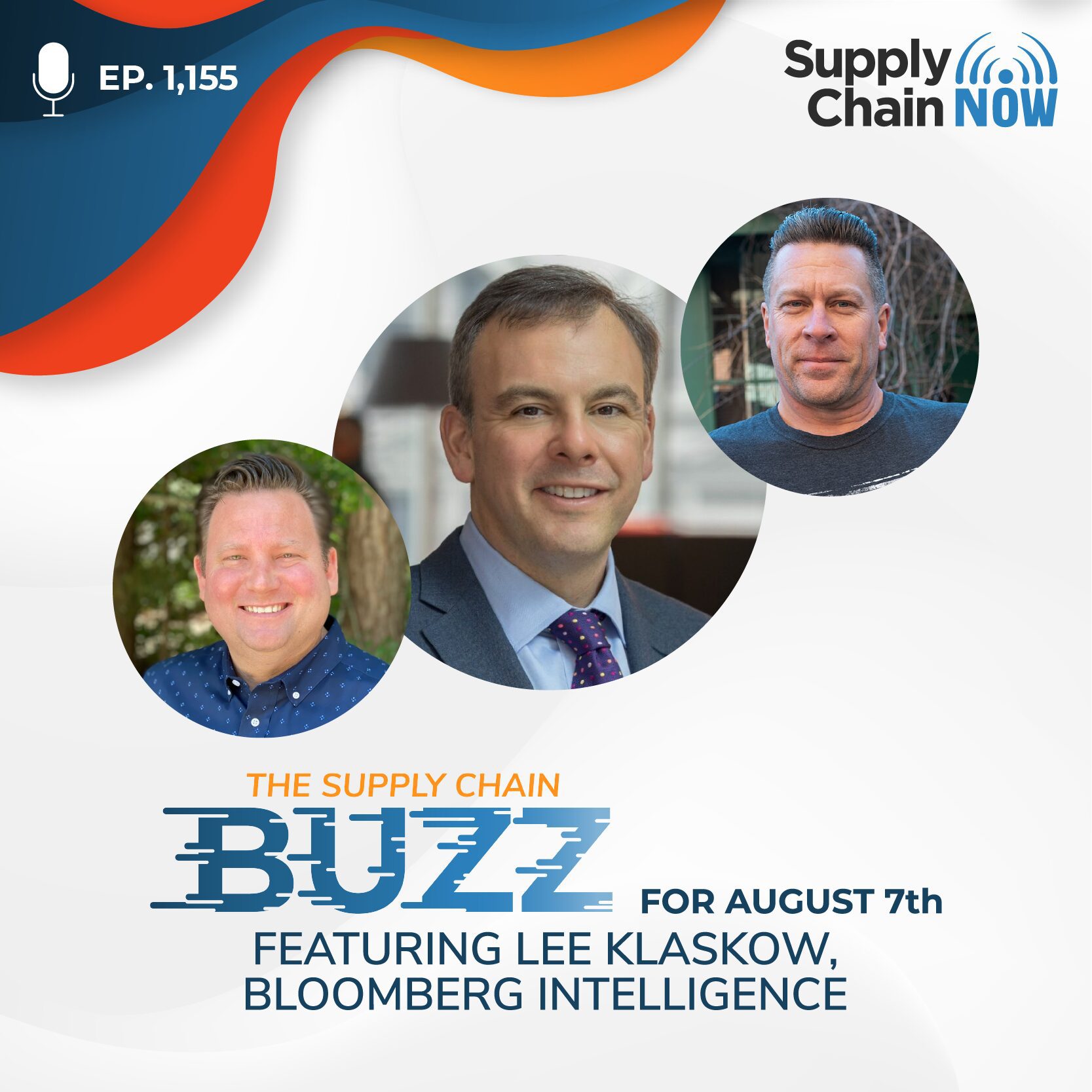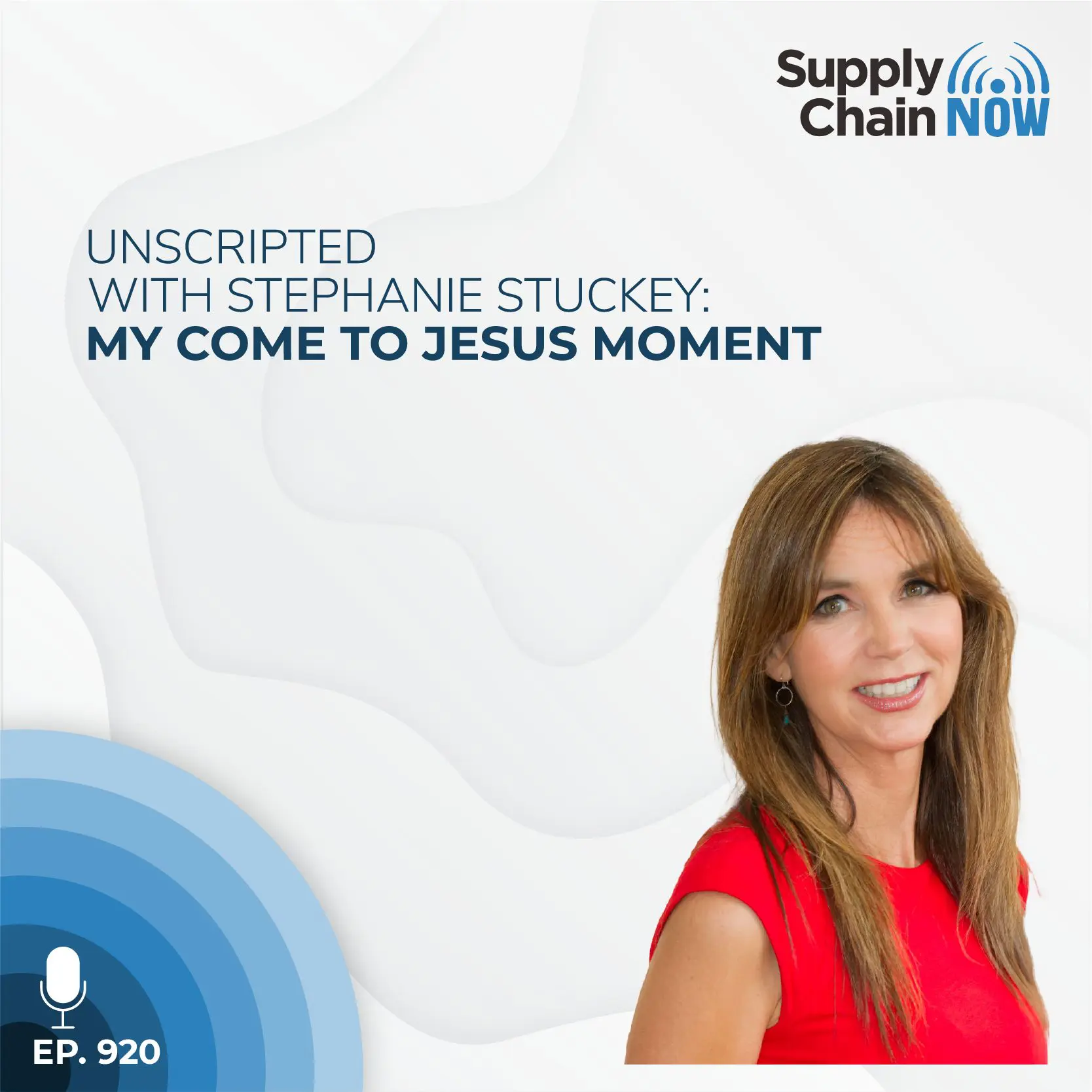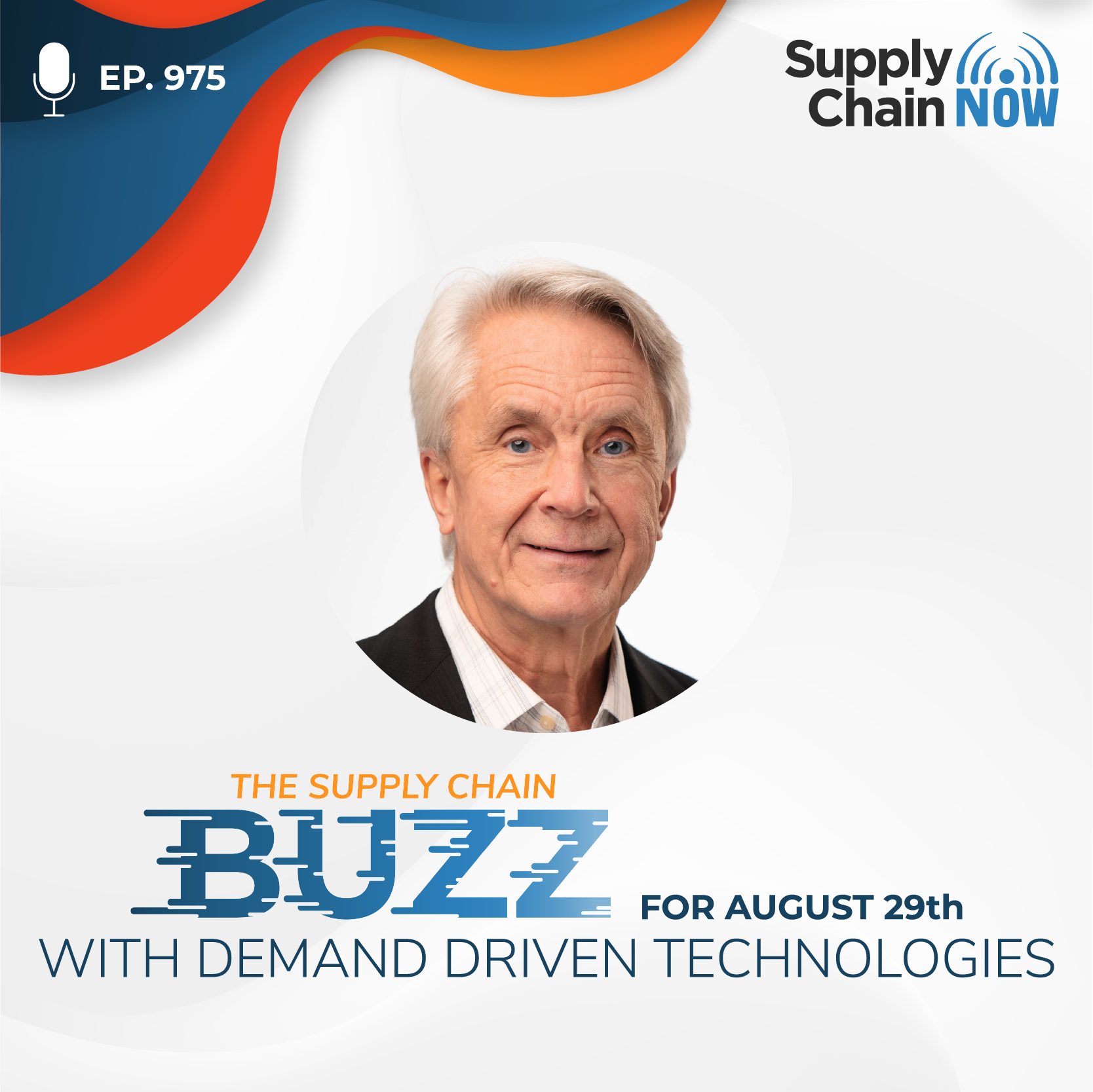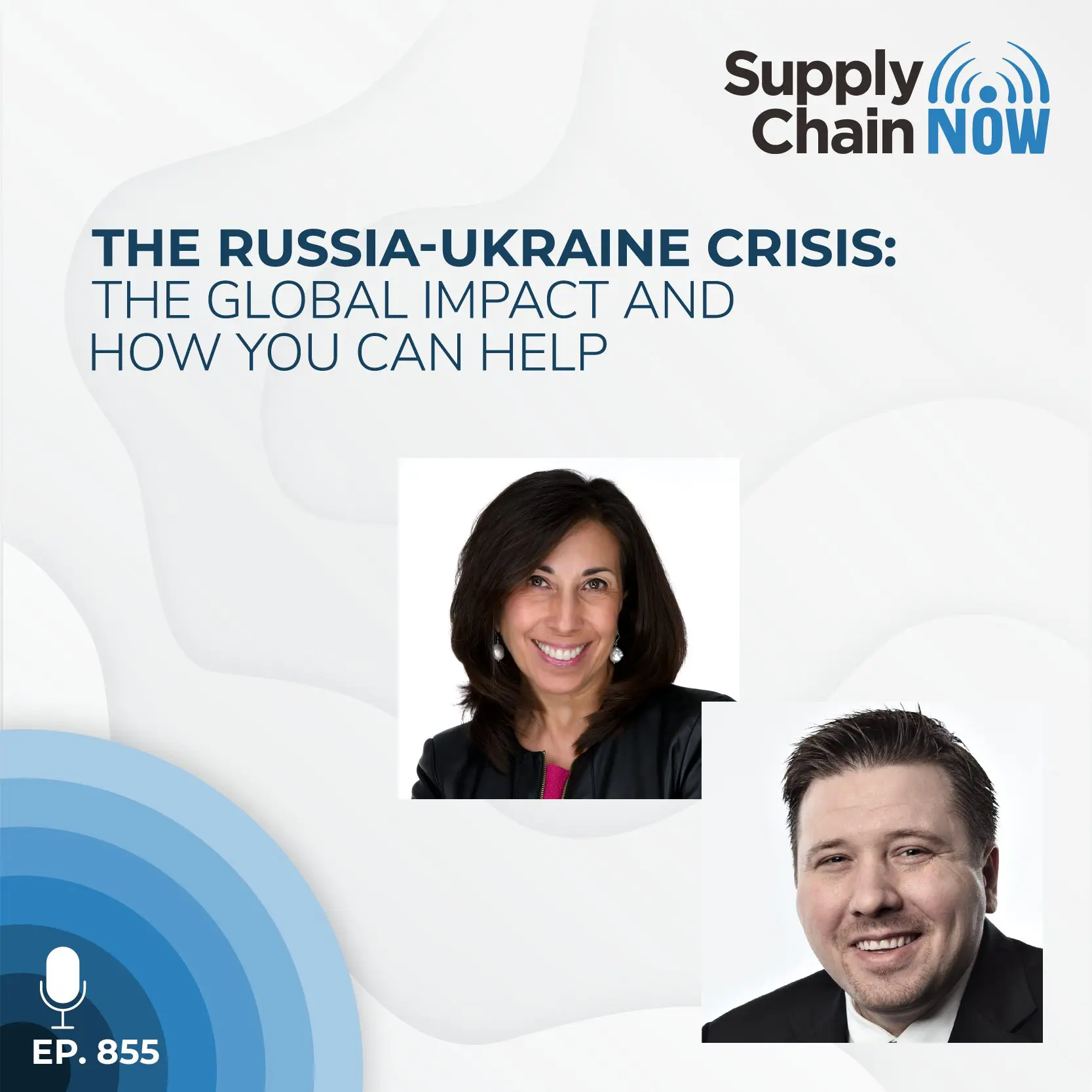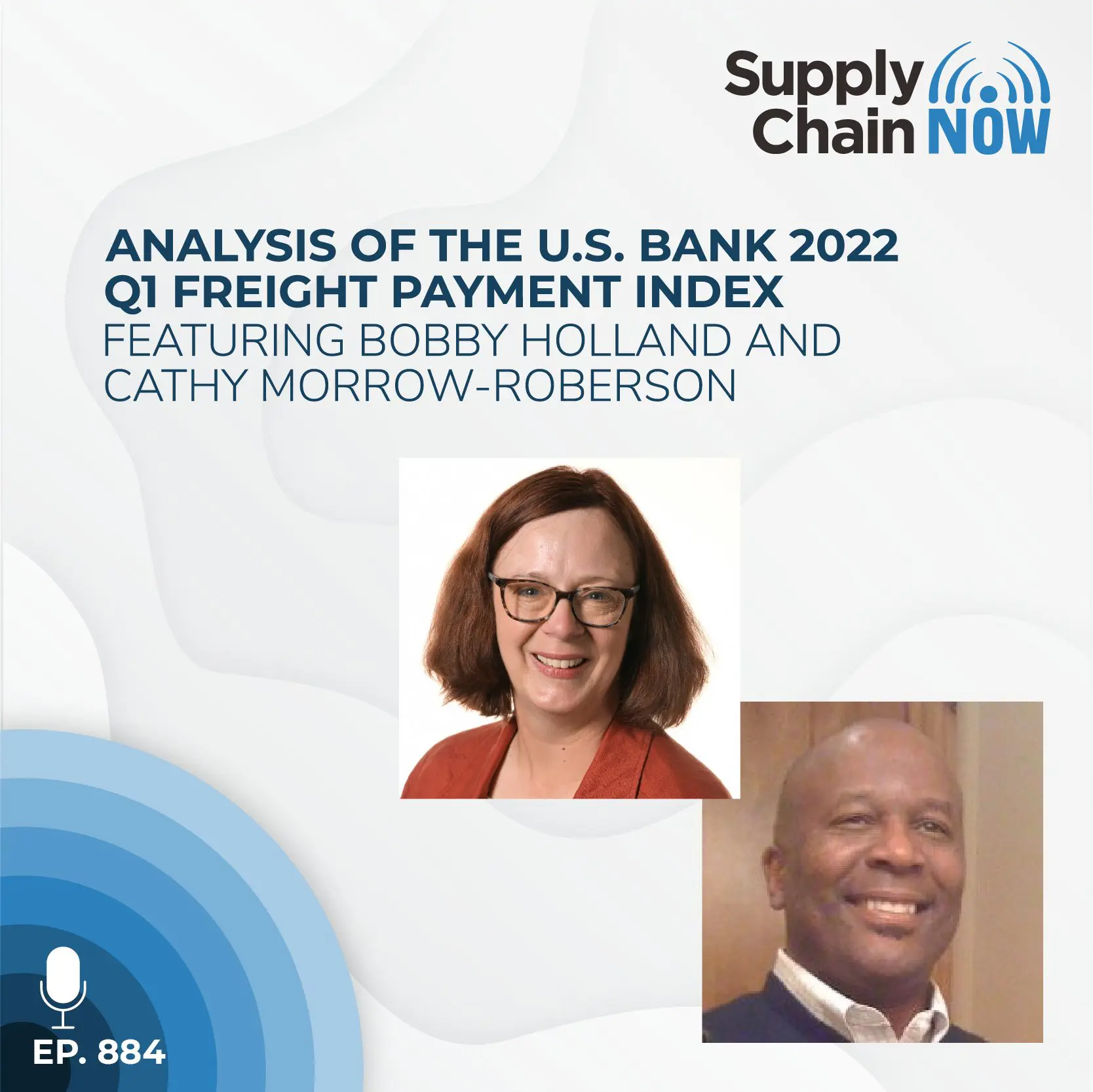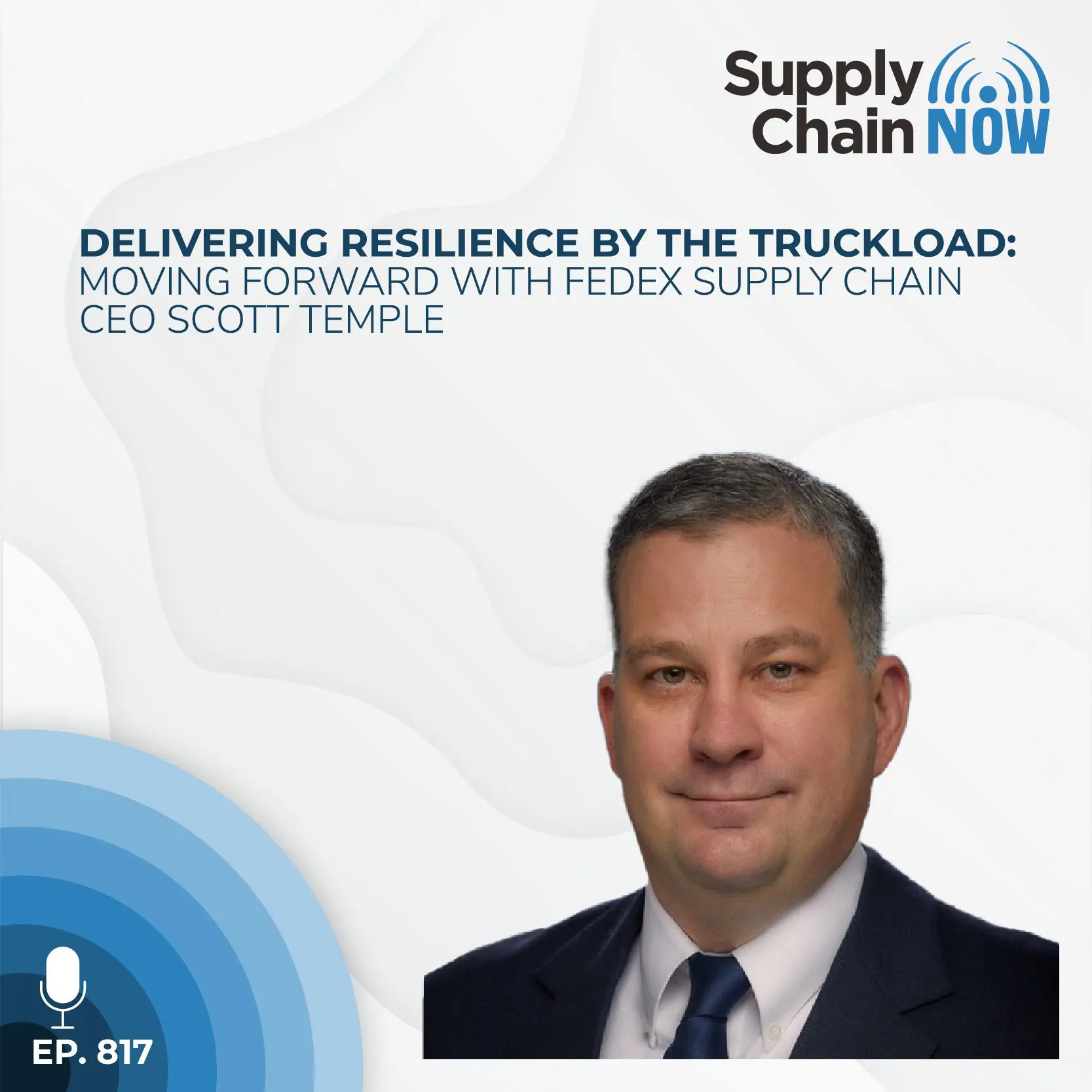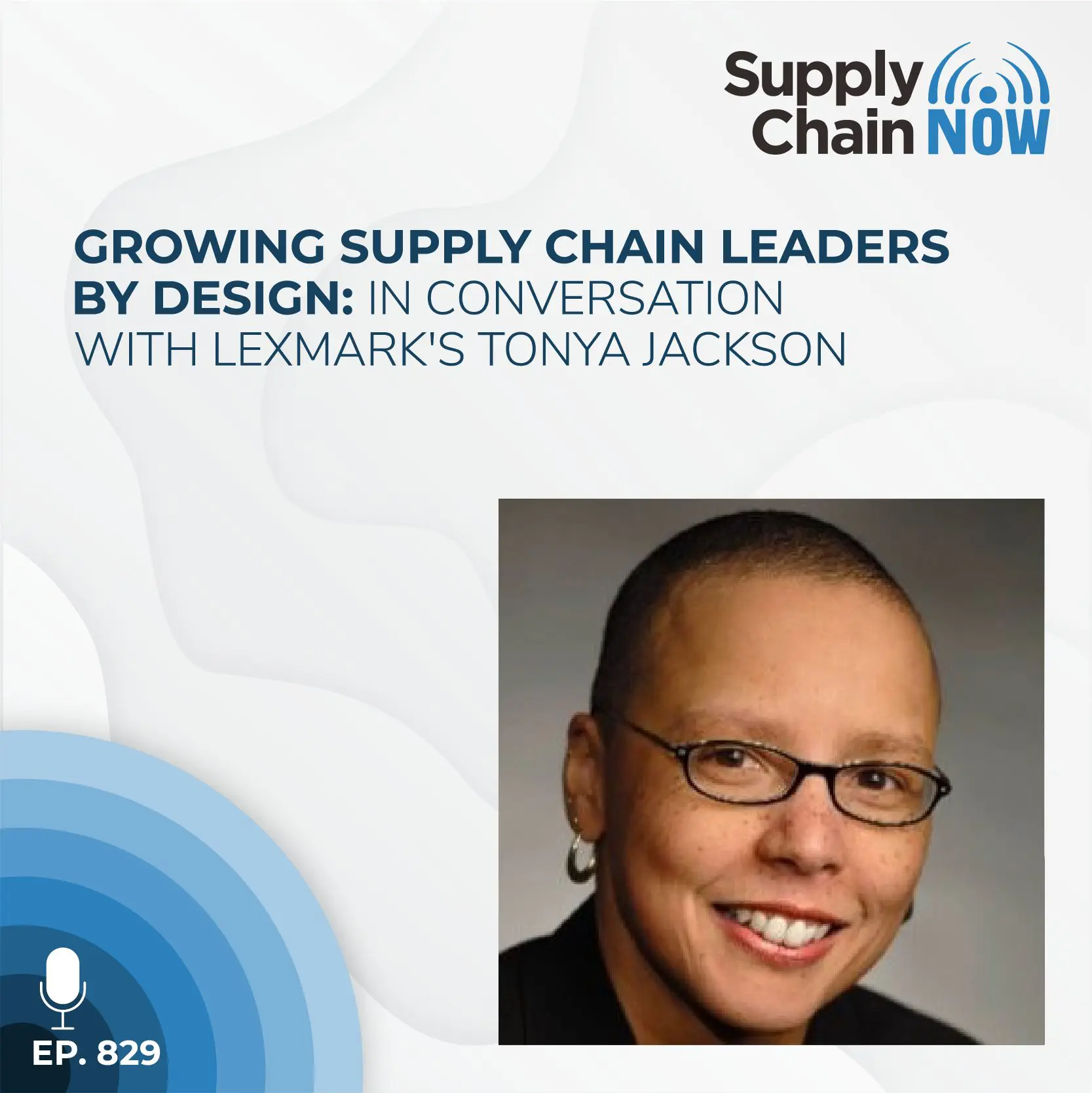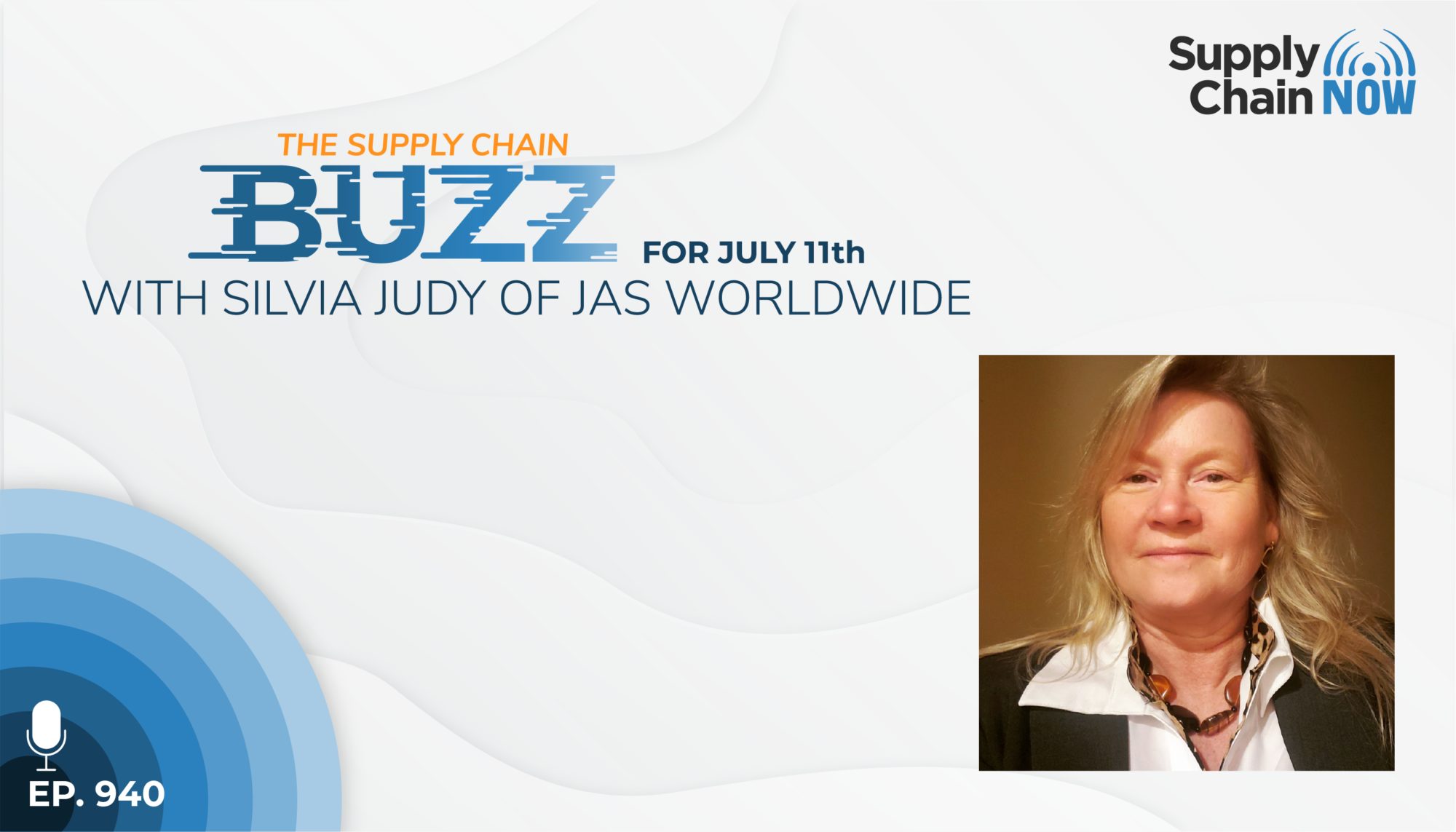
The pandemic has taught us one thing and that is resilience, right? And then the second thing it taught us is agility. And with that being said, the Port of Charleston has moved forward and has had record-setting year-over-year results on full container business and on the financial impact.
-Silvia Judy
Episode Summary
Another week, another Buzz with Scott and Greg! In this week’s episode, the fearless duo welcomes Silvia Judy, President of The Customs, Brokers and Freight Forwarders Association of Charleston, SC for an update on Southeastern port activity and labor negotiations in Germany. Plus, get Scott and Greg’s take on the relationship between nearshoring and automation, balancing risk across suppliers and more.
Episode Transcript
Intro/Outro (00:00:03):
Welcome to supply chain. Now the voice of global supply chain supply chain now focuses on the best in the business for our worldwide audience, the people, the technologies, the best practices, and today’s critical issues. The challenges and opportunities stay tuned to hear from those making global business happen right here on supply chain now.
Scott Luton (00:00:30):
Hey, good morning, Scott Luton and Greg White with here on the supply chain. Now the supply chain buzz on supply chain. Welcome to today’s live stream, happy buzz day, Greg you thank you very much. Uh, are you buzzed for buzz day?
Greg White (00:00:44):
Uh, it’s also my brother’s birthday, so happy birthday. It’s my brother Mitch. Um,
Scott Luton (00:00:49):
Happy birthday, Mitch. Yeah, that is outstanding. Yeah. Uh, it’s 27,
Greg White (00:00:54):
You know, there’s the first news of the day.
Scott Luton (00:00:57):
<laugh> well, happy birthday, Mitch. Where, where does Mitch, uh, live? Greg
Greg White (00:01:02):
Indianapolis. So
Scott Luton (00:01:04):
Indianapolis, yeah.
Greg White (00:01:05):
Works for Eli Lilly there.
Scott Luton (00:01:07):
Okay. So home of, uh, St. Elmo’s steakhouse, I believe in Indianapolis ever been there.
Greg White (00:01:13):
No, I, you know, I’ve only been to Indy maybe once or twice and okay. Both times kind of in and out for business. So maybe I’ve been there, but I don’t, I think I would remember it right.
Scott Luton (00:01:26):
Well, uh, just like my intro, I might be butchering the restaurant name a little bit. I think it St
Greg White (00:01:32):
Familiar
Scott Luton (00:01:34):
They’re they’re well known. They’ve got some really spicy, uh, shrimp cocktail, like extra horse radish in the cocktail sauce. So you all their food’s great. Yeah, I
Greg White (00:01:43):
Have. Oh, that’s awesome. It
Scott Luton (00:01:44):
Is delicious, but Greg today, so happy birthday Mitch and the beautiful city of Indianapolis, uh, wherever you are today, though, it is all about the supply chain buzz here on supply chain. Now where we share some of the leading stories across global business. And Greg, we have got one of our favorites joining us. It’s been about two years since she joined us last time.
Greg White (00:02:07):
Yeah, she’s said that in the green room, I cannot believe it it’s been that long, right? Not, not quite two years, but coming up on it close.
Scott Luton (00:02:14):
Right, right. Sneaking up on it. Um, Sylvia, Judy, who is not only a supply chain dynamo, but the esteemed informal ambassador of the Charleston, South Carolina supply chain ecosystem and,
Greg White (00:02:27):
Uh, homemade jams. Don’t forget that. <laugh> right. That’s right.
Scott Luton (00:02:31):
Heavyweight champion of the world when it comes to homemade jam. So, uh, folks
Greg White (00:02:36):
Tune weight, but yeah. Okay.
Scott Luton (00:02:39):
<laugh>,
Scott Luton (00:02:40):
That’s a good point. That’s a good point. Great. Uh, but folks, if you’ve tuned in any of our live streams, occasionally you’ll see Sylvia, Judy, uh, tune in, uh, and, and, and chime in from the cheap seats or the sky box. You name it. She held some Charleston and I love her passion and all that she does in global, uh, supply chain trade. So, Hey, but beyond Sylvia, Greg and I are gonna be talking about a variety of topics initiatives today and buckle up and get ready. Cause we want to hear from you too. So weigh in. We’re gonna say little to a few folks here momentarily, but would love to hear your take on the stories we talk about today. Yeah. Is that right, Greg?
Greg White (00:03:16):
Yes. We would like to hear that. Yes, actually. Hold on. I need to get to the comments here. Yeah.
Scott Luton (00:03:21):
<laugh> so in the meantime, though, depending
Greg White (00:03:24):
On more shared, we’d like to hear
Scott Luton (00:03:26):
That that’s right, depending on what you gotta say. Um, but Hey, in the meantime I wanna share, uh, three events where we welcome your participation. The first is tomorrow is the latest working session for the leveraging logistics for Ukraine folks. If you’ve in a position to donate your efforts or your bandwidth or resources, or if you’re not, that’s perfectly fine, but, but every, uh, I think once a month now they get together to have these working sessions to, um, uh, vet the needs that come in needs, pull and Ukraine elsewhere, and then find resources and the conveyance to get, uh, containers across the pond. I think Greg outcomes from outcomes perspective, I think they already, 10 containers are on ha have are on, are on their way yeah. To folks in need. So, uh, its all about results, right?
Greg White (00:04:14):
Yeah. And amazing informal relatively informal effort led by our friends at Fe um, Enrique Alvarez and Maureen and the rest of the team making it happen there. Uh, and then working with Greg O uh, in Poland. What’s his last name? Yes, I forgot. Um, oh
Scott Luton (00:04:34):
Gosh.
Greg White (00:04:35):
I know his name is, tell me
Scott Luton (00:04:36):
Gonna be quick
Greg White (00:04:37):
To Greg in English. So that’s, that’s the part I can remember. <laugh>
Scott Luton (00:04:41):
Well folks join us for the sessions tomorrow. Uh, 11:00 AM Eastern time would love to have you join. Um, I’m gonna hit two more quick events in the meantime folks, uh, lots of folks tuning in here today. Let us know if you would let us know what part of the world that you’re tuned in from. Uh, so we’re gonna, we’re gonna go through and say hello to everyone in just a moment. But first, uh, three ways is stay afloat through the supply chain crisis, a distributor story. Mm. This should be an intriguing webinar coming to us. Uh, August 2nd, uh, at 11:30 AM Eastern time, a little special time, 30 minutes earlier, uh, and partnership with our friends at enable Greg a distributor story that might be a, a little different take than what folks are expecting. Huh?
Greg White (00:05:29):
It is. And I’ll I’ll uh, without being a spoiler, I’ll tell you that it is a particularly difficult environment for distributors because of every layer of the supply chain distributors have the smallest margins. Some companies only make money by forward buying their inventory, which as we can imagine is a pretty good size risk, especially in these days. But a, a distributor’s margins are usually in the, somewhere around zero sometimes even below zero and 3% range in terms of net margins. So they do a lot of work, take a lot of risk, uh, provide a lot of volume. Um, so yeah, I think this’ll be really interesting. I’ve worked a lot with distributors, uh, over my career and, uh, they are the, whatever you wanna call it. They are the, uh, knuckle busters of the supply chain industry. No doubt.
Scott Luton (00:06:21):
Well, y’all join us August 2nd, 1130 am. Eastern time. You gotta register for this one for both this webinar on August 2nd, as well as this next webinar on August 10th. We’ve got James Malley, Greg coming back, uh, making a, uh, on demand, repeat appearance. Oh, that’s
Greg White (00:06:39):
Lovely. Kevin James on the show. Yeah,
Scott Luton (00:06:42):
He really is
Greg White (00:06:43):
Cool. Right. But uh, he’s just a really cool cucumber that’s for sure.
Scott Luton (00:06:48):
Completely agree. Now he’s gonna be joined by a colleague, Rick Jones. I also a packer and is also gonna be joined by will brown the store who’s been making, uh, uh, a big splash a across, uh, the industry for a couple years now, but join us on August 10th, 12 new Eastern time for sustainability and profitability, the ripple effect of shipping less air. That’s a good thing. Mm-hmm <affirmative> you gotta register for this one or the August 2nd one, but you can find the link in the comments and we’d love to have y’all join us for, uh, those shows. Okay. So Gregory. Are we ready to, uh, I got a special guest here. Mitch is joining us. Your brother Mitch. Now I’m kidding. You’re kidding. That just <laugh> that’d be cool with it
Greg White (00:07:31):
Would be cool, but he needs, he should be working right now.
Scott Luton (00:07:35):
<laugh> I bet your, uh, your ears perked up a bit when you thought I was gonna yeah. Bring on.
Greg White (00:07:43):
I’m not even just vaguely even get into what we do for a living, right? Mostly we, uh, entertain. Let’s call it that. Yes.
Scott Luton (00:07:54):
<laugh> that’s a nice label, right? That’s a nice label. Entertaining. Well, hello. Usman uh, tuned in via LinkedIn. Great to have you here. Let us know where you’re tuned in from Katherine of course, happy buzz day, everyone Catherine, Chantel and Amanda behind the scenes helping make production happen today. Big thanks for what they do. Uh, Ken on, uh, from India via LinkedIn is here. Welcome. Welcome. Looking forward to hearing your take here today. Uh, let’s see here. Lock
Greg White (00:08:24):
Lak. Yeah. Okay. We’re probably closer. You’re probably closer far.
Scott Luton (00:08:28):
Let us know which one we wanna get everyone’s names. Right? Of course. It’s really important. Uh, I’ve been known to get my three kids’ names wrong from time to time still after what? 13 years? Your
Greg White (00:08:38):
Own last name, but occasionally,
Scott Luton (00:08:41):
Occasionally that’s right. Um, uh, Greg would never let me, uh, live down the time I signed off by saying I’m Scott LT. Yes. Lout with a G
Greg White (00:08:52):
In his defense, both. It had been a really long day, really long that’s true day, like eight, eight interviews or something like that was about yeah. At RLA in Vegas. That was before the world melted down. That was right. Yeah. Yeah. You’re right, right. After the chief’s won, won the, the super bowl, which my wife still says is what caused all of this
Scott Luton (00:09:15):
<laugh> well, what a great trip that was. Yeah. Uh, and, and also how great is it to have Shelly Phillips back with us, uh, from Colorado via LinkedIn. Great to see you again, Shelly. Uh, Hey, Hey, uh, Evans dispatching logistics, uh, from Waco, Texas. I can’t remember your name. I apologize. Let, let us know. Uh, but welcome back. Great to have you as part of these live streams as always Monica from Seattle. Hello, to Monica via LinkedIn. Great to see you
Greg White (00:09:46):
Today. Poland. I think she posts later. Okay. But I’m behind in Poland. Yep.
Scott Luton (00:09:53):
Okay. Monica. Uh, so she might have
Greg White (00:09:56):
Contact for Enrique to get some goods over there. You never know, right?
Scott Luton (00:10:01):
That’s right. Never know. Never know. Never close any door, Joey. Great to see you here. Making me hungry. It’s all about LinkedIn. So Greg, I think we’re talking, uh, about St. Elmo’s steakhouse and, and you, do you like a good shrimp cocktail, Greg?
Greg White (00:10:16):
I, yes. I love shrimp I’m yeah.
Scott Luton (00:10:19):
Um, you know, it’s gotta, I’ve gotta have that extra horse radish in the cocktail sauce. Don’t gimme ketchup stuff. It’s gotta be extra spicy where it opens and sinuses. Yeah.
Greg White (00:10:28):
Yes. That’s the point. Isn’t it. That’s right. Yeah. Otherwise it is just ketchup. Really.
Scott Luton (00:10:33):
Jose is back with us from Southern California. Jose hope this finds you. Well, I know you’ve been staying busy. Loved your content.
Greg White (00:10:39):
Yeah. He made a tour out east that’s right. Uh, recently that
Scott Luton (00:10:44):
Is right. And he’s of course he’s with us in spirit here, uh, out and east here today on the bus. So welcome. Welcome Jose. Uh, Dita is here via LinkedIn. Happy Monday. Everybody let us know Dita where you are tuned in from Bryce Taylor, happy Monday from Fort Wayne, Indiana
Greg White (00:11:01):
Fort Wayne.
Scott Luton (00:11:03):
Do you know anything about Fort Wayne, Indiana, Greg?
Greg White (00:11:06):
Uh, I know that almost everyone there is a, uh, is a Notre Dame fan. Okay. That’s about all I know. Okay.
Scott Luton (00:11:12):
Well Bryce, correct me if I’m wrong. Uh, um, but be, be, be kind about it please, but I believe Fort Wayne, the very first
Greg White (00:11:19):
I not Notre Dame,
Scott Luton (00:11:21):
The very first video game home console was developed by Magnox in Fort Wayne, Indiana amongst other things. It’s a very innovative, uh, part of the country.
Greg White (00:11:32):
So pong,
Scott Luton (00:11:34):
Uh, well, it was, uh, I can’t remember the name of the Magnox console, but it was around that time. Yeah. Pong is a great time reference there, Greg.
Greg White (00:11:42):
Yeah.
Scott Luton (00:11:43):
Uh, Bryce, great to hear. Have you here with us today? Gene pledger from north Alabama is back with us via LinkedIn. How you doing, uh, GP? Good to see ya. Uh, let’s see here. Josh goody. Greg is given the weather report 70 degrees in sunny here in Seattle. Great to have you back Josh.
Greg White (00:12:00):
Best place on the planet to be right now. If it’s 70 in sunny in Seattle, the greenest place on earth, I would say
Scott Luton (00:12:08):
Amen.
Greg White (00:12:08):
Amen. Cause when it’s not raining <laugh> and it’s sunny. You can see everything that’s been growing for the last, uh, yeah. Six months.
Scott Luton (00:12:19):
Yaser is here from Savannah. One of our favorite cities via LinkedIn. Great.
Greg White (00:12:22):
We’re surrounded. We sure are Charleston and Savannah and Hilton head. We got it covered. We got it covered. We’ve covered the coast Scott
Scott Luton (00:12:28):
Coast to coast. Yeah, but ya sir. Great to have you here looking forward to hearing your perspective. And then finally Joey is tuned in he’s he’s hungry, but he’s tuned in from sunny, Minnesota, at least for a few more months. He says representing SP commerce. Great. Great to see here,
Greg White (00:12:43):
Joey. Oh, VAR huge VA. I mean, they’re much broader than that now, but you know, a lot of these companies started out as EDR, EDI VAs, or that was a big part of their business. Okay. Big company.
Scott Luton (00:12:57):
So Joey, I’m gonna ask you one, one question, your favorite place to eat in Minnesota. Since you’ve gotta us going down the food channel, let us know your, one of your favorite places eat
Greg White (00:13:05):
Well. Yeah. And we gotta know what town he’s in. We gotta know where he, he is good point too.
Scott Luton (00:13:10):
Right. We’re gonna make reservations and we’ll meet you there tonight. Um, okay. Uh, Joey, great to have you here. Um, alright, so Greg, are you ready to dive into our first story here today?
Greg White (00:13:21):
Yeah. Let’s take a
Scott Luton (00:13:22):
Look at it. Let’s see. So we’re gonna be talking reassuring. Onshoring nearshoring, all, all kinds of shoring, right? It’s clearly on the mind. Yeah. And the lips of CEOs more so now than in recent memory, but Greg, according to Bloomberg, it ain’t all talk, check out this number. There’s been about a 10% increase in overall building construction over the last year. Right? For all types of buildings and sites. Right. 10%. But there’s been 116% increase in manufacturing site construction here in the us in that same timeframe. So what does that activity look like? Well, some of what we talked about quite a bit already, right? We got three massive semiconductor, uh, factories. I think they call those founders too in and around Phoenix. Right? Uh, you’ve got new aluminum and steel plants being built in Alabama, Arkansas and Kentucky. And all of this construction is increasing demand for air compressors, Greg, amongst other things. So leading, uh, Ingersol ran really big global company to reopen an old plant near Buffalo, New York to, to crank out new air compressors. And that’s just a little tasting of what that 116% increase, uh, what that looks like, Greg, your take on onshoring nearshoring reshoring and then more,
Greg White (00:14:44):
Well, I think it, um, you know, not to put a damper on it, but I don’t think we’ve built a lot of manufacturing facilities here in the states in the recent past. So 116, basically just over doubling, uh, the, the rate that we had before. I’d love to know what that number is good point, right. Not just the percentage. Um, but I, I do think we’re starting to see that and we’re seeing a lot of talk about it and, and in some cases, a lot of action, the thing we have to recognize is that, you know, we all get excited because we think about it like our parents or grandparents did, it’s bringing jobs back to America. The truth is it’s probably not bringing that many jobs because I also saw on, uh, Bloomberg, uh, celebration of reassuring and the thesis of the entire discussion was that means more automation, right?
Greg White (00:15:34):
Because, uh, the labor here is significantly more expensive than virtually anywhere else. Things are being manufactured for us consumption. Um, but I don’t think that’s a bad thing. Look, nobody wants manufacturing jobs. We’ve talked about this over and over again, that people are staying away in droves from manufacturing because of the 3d, dark, dirty, dangerous, and someone recently added another D dull. Right. I think people think of the job that way, but people think of the job that way. Right. Um, but, but look, if we can bring that back, it simplifies the supply chain. It creates greater safety and stability in the supply chain. I wish I could think of another S maybe sustainability, maybe even sustainability in the supply chain because, um, we cease to do business with 5, 6, 7 tiers of suppliers, hopefully, um, and gain greater control over both the operations and the trade methodologies of it. Hopefully bring some higher ethics into supply chain as well, but we have to understand that’s gonna be a very, very limited, uh, number of industry, a number of industries, because if it requires labor at all, we just can’t compete. Right. We can’t compete with people who make $10,000 a year or less to do jobs that that Americans want, who knows what, 60, 80, a hundred thousand dollars a year to do. Right.
Scott Luton (00:16:59):
Well said, but nevertheless, some expansion and yeah, I think it’d be, it’d be cool to see real numbers there to get, have a better context. So we’ll, we’ll dive into Bloomberg and see what else is there. But, um, it’s really interesting to see. It’s not all talk there, there, you know, I think the, the, um, the equation, the value proposition for acting on what folks have been talking about since the pandemic started, right. And it dawned on the world where we are. Um, and it was, it was gonna be more than just a little blip. Right. Uh, and then I think you factor in beyond the pandemic, um, from ports to getting close to your consumers, to having reliable access to energy, which is a big consideration where you’re looking at at new sites for plants and whatnot. Um, it’ll be interesting to see just how far, uh, this con this, um, this movement, uh, goes. Um,
Greg White (00:17:53):
I, yeah, I think it’s, it’s great that we’re doing this. We don’t wanna get, uh, what is that old term, um, inappropriately, enthusiastic or whatever that is right
Scott Luton (00:18:04):
In front of our skis. Maybe, I don’t know,
Greg White (00:18:06):
But it, but now we will have many, many more examples of the, the trade offs between offshoring and near reshoring, whatever you wanna call it. Um, and you know, we’re, we’ve been having tons of discussions around this and there are some companies, uh, and some industries very dedicated to doing it. And some of them with good reason, because the risk of continuing to be offshore or source offshore is significant. So that’s right. Um, you know, what the truth, the truth of that may be that it, it produces everlasting inflation for some products, or it could be a relative blip. I don’t mean a year, but it could be 3, 5, 10, and then they, you know, the economics change again. So, you know, it’s, it’s a, it’s a good indicator. I think it’s a great opportunity for us to, uh, do some real life analysis of the practicalities of it, and then maybe figure out how we support it. Of course, you know, there’s a bill in Congress right now for something like 52 billion to help support onboarding reshoring semiconductor right. Production. So, right. Because we clearly cannot do that. So all of us will have to pay whether we buy semiconductors or not, we’ll have to pay to have them built. Right, right. Cause that will come out of our, our tax dollars.
Scott Luton (00:19:25):
Well, you know, you’re welcome. Uh, it’s, it’s also interesting, um, the Phoenix in and around the Phoenix, you know, cuz the, the huge water component that these semiconductor, uh, facilities, uh, that they require, it’s gonna be interesting, how’s that balanced? So especially in the Western half of the country, uh, and the years to come, but Hey, uh, we’re gonna keep our finger in the pulse. Uh, there’s so much here. There’s so much to it. But, uh, but I think the inarguable component of all of this Greg is, is the first point you made that it takes for it to be, uh, Onor for it to be here in the us. It’s gotta be a big technology automation play cause the labor market yeah. Uh, is very challenging here for sure. Okay. Um, moving right along Joey ask and you shall receive, Joey says, oh boy, uh, Queens min in may in Minneapolis, which is a hole wall, Vietnam, uh, Vietnamese restaurant, uh, was on diners drive in and dives. How about that? Uh, who’s got a host that, uh, what is that? Yes, guy. Fi Joey, we’re gonna check it out.
Greg White (00:20:33):
Yeah. Cuz we are both huge Vietnamese food fans. Right. Scott that’s true. Scott is a mother fo mother FA lover. Um <laugh> and you know, and I grew up in Wichita, which people will probably drop dead when I say this has a huge Vietnamese population. So every, every day, except Monday, because I don’t eat that nasty soup with eyeballs and guts in it. But, um, man, I loved it. And of course my great grandfather lived in a portion of the town that was largely Latin and Vietnamese. Um, so I mean you wanna talk about food Mecca, Mexican food next to next to Vietnamese food. Right. Um, get it all done at once.
Scott Luton (00:21:20):
Well, so Greg, I, I might, might surprise you. I dunno if I’ve shared this with you, you mentioned Wichita. Of course I was there, uh, with air force for two years. Oh
Greg White (00:21:26):
My gosh.
Scott Luton (00:21:26):
That’s right. First place. The first place ever had FA was in Wichita. I was introduced to it by my air force colleagues. Wow. I can’t remember the name of the restaurant, but ever since then, me and Amanda we’d love it. We don’t get eat it as much as we’d like. Uh, there’s some great places throughout Metro Atlanta to get it for highway and plenty of other places. So, uh, we’re gonna take you up on that Joey and, and check out Queens. Okay.
Greg White (00:21:51):
Dang. I did not know that you’ve got introduced first place. I
Scott Luton (00:21:55):
Strange, um, Sheldon says, and I think he part speaking on our first story there, I think it moves the supply chain push pull boundaries for these firms in terms of market response and improved demand latency. But these plants are still gonna be beholding to raw material suppliers that are still from many, uh, parts of these undesirable areas. Greg,
Greg White (00:22:17):
An excellent point. Yeah. That’s an excellent point. You know, there’s a lot of things we can get into there. I didn’t get into, but I’m glad Sheldon did because that’s an important thing. You know, Scott, we’ve had this discussion many times what has made in America even mean these days, sometimes it’s just assembled in America, right? Even American cars have, um, you know, literally thousands of suppliers and many of them from outside of north America. So,
Scott Luton (00:22:44):
Well I think a great comparison, uh, the made in USA stickers, uh, the recyclable three arrow thing. It’s amazing how much leeway marketing pros have when it comes to adding that stuff to, uh, product packaging. It really is. I’ve the recycling thing alone. Uh, I’ve seen some fascinating documentaries about just how much leeway, uh, and how much things that aren’t practically recyclable have that. So consumers feel better about purchasing, you know, making certain purchasing decisions, but we’ll save that for another show. Greg, I wanna, I wanna get into, uh, one more, uh, article here before we bring in our special guest, the one only Sylvia, Judy. And, uh, let’s see here, tee this up here because Greg you, your supply chain commentaries on LinkedIn Monday, Wednesday, and Friday, you are setting the world on fire as expected. Uh, this is one you published. I believe it was Friday six criteria for picking a new supplier based on an article, uh, that was published in supply chain dive. So Hey, tell us, uh, give us your, your take here.
Greg White (00:23:49):
So, uh, this is a really good article. It’s really very specific and um, you know, it talks about some very specific six very specific tactics that you can take. What it made me think of as I read it, was we, it, I think we can pull up a level and think about the categories of those specific that those specific actions fall into because predominantly about four, what I call pillars of supply chain that’s cost, of course, but the impetus of this article was don’t just focus on cost. You can’t just focus on cost if anyone has ever, or never heard me say that. You’ve probably never heard me say anything because you know, this, this is my mantra, right? Supply chain has too long been a cost saving initiative and it needs to be a risk balancing initiative. And that was actually the approach that the article took.
Greg White (00:24:40):
I just took it up a level and said, Hey, aside from cost, we need to consider reli reliability and ethics. Right? We were just talking about ethics and we need to talk about, uh, speed as well. Right? Think about how many companies are behind the eight ball, um, or wanting to hit an eight ball because they, uh, they, their lead times are so long and they missed a season. Target is a great example, by the way, if you’re looking for patio furniture on sale, target Kohls, and Walmart are all having big sales on, on patio furniture because they missed the, the level of demand, right? Uh, the, the shift of demand in by consumers. But I, I think what you have to think about in this day and age when selecting a supplier is the broad spectrum of risks that you can have with a supplier and you need to solve for all of those things, because ultimately when you have a supplier based, you, whoever uses those suppliers and produces or distributes or sells those goods, you are the one who is responsible for representing those to your customers or consumers in the marketplace.
Greg White (00:25:47):
And you will be held accountable for actions that your suppliers take or, or failures that your suppliers have. I just think, uh, you know, as I, as I went through this, I thought, yep, companies need to, and now have a greater ability to take control, take, they’re gonna take accountability whether they want it or not, they need to take control of these aspects of their supply chain, aside from cost and start to build, um, resiliency or reduce fragility or eliminate risk. However you wanna say it in right. In all of those other areas of their, of their supply chain and procurement. Right.
Scott Luton (00:26:25):
Um, so we’ve been talking about, uh, Greg’s supply chain commentary on this supply chain, dive article six criteria for picking a new supplier folks we’ve dropped the link to, uh, Greg’s commentary. We’d love for you. There’s some great comments. We’d love for you to weigh in. Let, let Greg know what you’re thinking about. Uh, this list. I would just add Greg, um, you know, beyond, so cost was kind of a, a, a given right in the premise of this article. I think proximity should also be a given, right. But beyond that, um, the, the portfolio mix, you know, I’ve done a little bit of work with, with, uh, what I’ll call the, the world’s leading chicken sandwich provider. We’ll we’ll couch. It like that. And one of their big MOS is they didn’t want any of their, uh, suppliers too heavily weighted in their business with that same company. Right. So that right. Um, you know, so that if, if one customer goes away, you know, the whole house of carbs doesn’t fall in, you know, they want that stability. I think you referenced. So what’s that what’s that portfolio mix look like? I think that’s a really important thing beyond what you’ve shared and the six things in the article, uh, that pro that portfolio mix can be an important thing. Um, that really speaks to the reliability and the longevity of, of your suppliers. You’re considering
Greg White (00:27:42):
You gotta know your risks, you gotta know your fragility and you’ve got to either eliminate or mitigate them. Right. And, and there are all kinds of ways to do that. Don’t single thread to the point that you’re making. In fact, I worked with the distributor who was the distributor to that major, uh, chicken
Scott Luton (00:27:59):
Sandwich, chicken sandwich maker,
Greg White (00:28:01):
Retailer, and they, and when, and they got di divested of about 50% of their business, because they wanted to bring in another distributor. And then it got diluted yet again, because they brought in a much smaller one. So, but so they had two vendors that had 40% of their business and then another, that had 20 ish. Um, and, and that, I think that’s a great example. And, and there are all kinds of those things as well. You have to filter, um, or adapt to the other risks in your supply chain. And again, you have to think of something, this is the primary theme here. You have to think of something besides cost, right? As that, as those as risks that are worth, uh, managing toward right. It’s said reliability and ethics, I think are the three that come immediately to mind
Scott Luton (00:28:49):
Love that. Uh, and agree. All right. So T squared is with us T squared. Great to have you here sounds like agile and responsive supply chains are trying to collide, which would be a major plus. Now look, he, he is still waiting on that tri prize. Now I know a
Greg White (00:29:05):
Man. I know they got stole in mail. I’m sure. Got in mail time.
Scott Luton (00:29:09):
Yeah. So here, this is what I wanna do the next 30 minutes. Let’s solve this little challenge. So Ts squared. I know Catherine, I believe it was Catherine had reached out via YouTube. We want to get that prize in your hands for you answering that trivia.
Greg White (00:29:25):
We all the question. Can we just say supply chain issues?
Scott Luton (00:29:28):
Yeah, that’s right Greg. So T squared, let’s get you connected with Amanda, Catherine, and let’s solve that, uh, today, if we can, but great to have you here and we’re gonna get that fixed. Um, okay. So, uh, with no further ado, Greg, um, so
Greg White (00:29:46):
We’ve had a lot to do.
Scott Luton (00:29:47):
We have a lot of do don’t we, well, I want to, um, you know, we are excited to have one of our favorites. One of our long, long time friends, a fellow, uh, passion Easter, when it comes to all things global supply chain like we are. So I wanna welcome in Sylvia, Judy, a member of JS forwarding and president of the customs brokers and freight forwarders association of Charleston, South Carolina, to the conversation Sylvia.
Silvia Judy (00:30:19):
Good morning, good afternoon. Wherever you are in the world.
Scott Luton (00:30:24):
<laugh> that is right.
Silvia Judy (00:30:25):
Right. As I, as I coined the phrase Mo in y’all, because it represents both of my home ports, which is Hamburg, Germany, and of course, Charleston, South Carolina. So thank you again, Scott and Greg, it’s great to be back. It’s been almost two years, as you said earlier. And, um, I hate that. I keep missing you all during lunchtime, but we have a lot of team calls during that timeframe. So it’s, it’s just an honor to be back. So thank you for having me and, and Greg, here’s your blueberry jam. Oh,
Greg White (00:30:56):
Thank you. Thank you very much. I appreciate it.
Scott Luton (00:31:00):
Oh, I love it. I love it.
Greg White (00:31:01):
I’ll save you the delivery charge and I’ll come get it. How’s that?
Silvia Judy (00:31:05):
Well, you you’re practically a neighbor now. You’re probably 40 miles as the Crow flies now, so <laugh>
Scott Luton (00:31:11):
Right, man. Right. We’re gonna have to get that fixed. Okay. Before we dive in with Sylvia. Okay. Talking about getting things fixed T squared, send us a note to Catherine supply chain now.com. We’re gonna get that fixed. Uh, great to have you here in the audience, David David, great to have you back via LinkedIn. Let us know where you’re tuned in from. And finally, Greg, it’s been a long time. Greg. Welcome back. He’s sharing an article from business insider on some of the companies that are bringing manufacturing back. So thank you for that, Greg. I love we, we all love manufacturing. I’m a big manufacturing nerd myself. Okay. So Greg, we, the first place we wanna start with Sylvia, right? We, we, uh, one of your mini nickname, Sylvia is you’re an esteemed ambassador informally, but still the esteemed ambassador for the wonderful supply chain ecosystem of Charleston, South Carolina. So if you can give us a quick update on what’s going on, not just across that ecosystem, but also including of course, a big juggernaut, the ports of Charleston.
Silvia Judy (00:32:10):
Thank you very much, Scott. Yes. I don’t know if I’m an ambassador. I try to be, I try to represent both my home ports and the best of my ability, but Charleston of course is very near and dear to my heart. As I shared with you previously, I moved to Charleston the week before hurricane Hugo blew through here in September 21st, 1989. So everybody keeps blaming me for it. I don’t know, but I say I took the city <laugh>
Greg White (00:32:40):
Nonetheless
Silvia Judy (00:32:40):
I <laugh>. And Scott, I don’t know. You probably were stationed at the air force at one particular point here in Charleston because we do have a large air force, um, base here. And, um, you know, we also have, because of the, the air force, our runway actually can land 7 47 with no problem. I think it’s 3,600 meters. I don’t know. Don’t quote me on it for sure. So we can handle the big birds too, which, you know, even though we’re in the port of Charleston, but air freight is a very critical component in the South Carolina market. And with that being said, port of Charleston, yes, you’re absolutely right. We had a huge milestone and, um, that is basically changing of the leadership or continuation of the great leadership. Jim Newton retired and Barbara, Melvin is now the president and CEO of the South Carolina state sports authority, which makes her the first female leading a top 10 us port.
Silvia Judy (00:33:44):
Wow. So this is really something, you know, I’m really big on trailblazers and Barbara for sure is a trailblazer in our industry and um, in the global supply chain world and, uh, a fantastic keynote speaker on top of it. So I’m very proud and, um, very humbled to be associated with the port of Charleston and particularly through the customs brokers and freight forwarders association here in Charleston, which I was, um, honored to be selected or elected the president for the year 20, 22. And as you know, we’ve had these conversations before the pandemic pandemic has taught us one thing and that is resilience, right? And then the second thing it taught us is agility. And with that being said, you know, the port of Charleston has moved forward and has had record setting year over year results on full container business and on the financial impact, but just a couple of, um,
Scott Luton (00:34:46):
So Sylvia really quick. Mm-hmm <affirmative> if I could, I can interject just for a minute. Sure. Going back to, uh, Greg Barbara, Melvin. And if I heard that fact to right Sylvia first female leader of a top 10 port in, across the country, that is Greg. That is, uh, that’s a big piece of news.
Greg White (00:35:04):
Yeah. Well, in Charleston <laugh>, I mean, is inarguably one of the best operated ports in the nation, right? I mean, um, they got a lot of, of, uh, whatever you wanna call it. A lot of demand placed on them because of the inadequacies of the ports on the west coast and of course in the Northeast. Um, and they have handled that in, in stellar fashion and, you know, they had their own backup at one point, but never to the extent that any of the other ports had and they have completely cleared that. And, you know, we can verify that Scott, because we keep track of the ports on our little friend here. <laugh> so, um, I, I mean, I can, we can literally look and see that they are doing a great job. There are three ships anchored off offshore man, uh, from the port of Charleston right now. So man,
Silvia Judy (00:35:52):
Actually, yeah, as of eight 30 this morning, it was zero vessels on Anchorage.
Scott Luton (00:35:56):
Wow.
Greg White (00:35:57):
Well these might be new arrivals. You’re right. Yeah.
Silvia Judy (00:36:00):
Yeah. They are just,
Greg White (00:36:02):
Just landed a minute ago, three minutes ago. Yeah. So they’re probably just some ones that have just recently landed. Right. Well,
Scott Luton (00:36:10):
Uh, really quick Sylvia. And then, and then I know you were gonna continue and sharing few more updates, but you referenced, uh, the air force there in Charleston. I think that’s the leading base for the C 17. Um, and, and all the global transport work that, um, Charlestown force base does. So, and the C 17, I think C five is still bigger than the C 17, but, but I think C five’s operated out of that same base. I’m not sure if they’ve, they’ve, uh, replaced that fleet locally, but, uh, it can handle whatever, I think the civilian side throws at it. So I’m glad you called that out as a proud air force, uh, nerd on my end. Okay.
Greg White (00:36:48):
So Scott, just a bit of Truvia. So coming down the coast, this happened, I’m sure in Charleston, um, Beaufort, Bluffton, and in Hilton head, the F sixteens and C seventeens, um, did a flyover on the 4th of July as did the eighteens from Campa June, um, as about that down the coast. So that was pretty cool. We had bunches of Marines out there on, on the, on the beach waving flags and getting wings WTIP yeah,
Scott Luton (00:37:19):
Dude, I think there’s little, uh, as we’re all smiling and shaking our heads, a flyover, uh, the, the flyovers on the best
Greg White (00:37:27):
Kidding man
Scott Luton (00:37:27):
Before the super bowl before big games. I mean that really, if you wanna get that crowd ready and know something big’s coming, you, you put, um, you know, the F sixteens and missing man formation roaring across the stadium. I mean, that’s man. It’s awesome. Okay. Yeah. So Sylvia and David, I see your question. We’ll try to get to that in a moment. Uh, but Sylvia, uh, please continue with kind of your update on what’s going on in Charleston. If we have any geographically challenged folks, I’ll raise my hand sometimes, but here, you know, Charleston sits there between Savannah and Myrtle beach. You’ll see it’s proximity to Jacksonville, some of the, you know, other ports, uh, up and down the Eastern seaboard, but Sylvia, please continue.
Silvia Judy (00:38:06):
Thank you, Scott and Greg, I actually enjoyed that same flyover right here on John’s island and it was absolutely spectacular and, um, a, a great, wonderful, wonderful way to show your patriotism. And it’s just heart touching to me, but, um, just a couple of stats here, tax revenue generated in South Carolina, 1.1 billion annually through the port of Charleston.
Scott Luton (00:38:31):
Wow.
Silvia Judy (00:38:32):
We’ve got an economic impact of 63.4 billion through the South Carolina port industry. One outta 10 jobs in South Carolina is associated with port related industries. Hmm. And, um, as we know, the struggles have been quite severe for everyone in the supply chain and especially when it comes to the logistical aspect of things, you know, there is a multitude of factors that formed or really created the perfect storm for the entire industry. And part of the main issue was of course, the back of back on the west coast ports, which, you know, carriers again, showed the flexibility to move everything to the Eastern seaboard, which of course at first, and even in June, Jim Newsome’s last chat and chew meeting that we had luncheon, he said, you know, we all just kind of got a little bit greedy <laugh> and said, told everyone to come on, come on.
Silvia Judy (00:39:33):
We can handle the business here in Charleston. Well, Savannah of course our friendly sister rival port said same thing. And, um, just a little bit of history on Jim news. And his father was actually the port director of the port of Savannah. Really? So yes, <laugh>, which I thought was really a little interesting tidbit because he is actually a Savannah gentleman. And, um, when he told his father I’m sure that was an interesting conversation that they had way back 13 years ago when he took on the post to become the president and CEO of the South Carolina state ports authority. But, uh, with that being said, we had all of a sudden everything that was, you know, at the west co west coast, Los Angeles long beach, we had up to 137 vessels at any given point on Anchorage. So when they diverted through the Panama canal coming to the Eastern seaboard, uh, there was no way that we were able to accommodate that any port for that matter, that caused kind of like the trickle down effect of having all these vessels on Anchorage, moving from the west coast to the east coast and, uh, ports that are still heavily affected are now still Savannah and, um, even Norfolk to a lesser extent and, um, New York, New Jersey, of course, you know, which is the largest, um, ports authority on the east coast.
Silvia Judy (00:40:57):
And, uh, with that being said, we had the new hue Leatherman terminal that was inaugurated in April of 2020. Yeah. And, um, it was the first, well semi inaugurated, I should say, correct myself <laugh> but, um, anyway, you know, with that being said, that was the first new terminal being added into a us port since 2009. And then of course, you know, right in the midst of the pandemic and, um, you know, there were delays and the cranes, et cetera. And then of course there was, um, other issues that kind of refrained us from, uh, going out for force at 100%. But right now I think we’re at 62% give or take okay. Realization, which is great. Okay. And, uh, the port of Charleston also recently started a new program called, um, the smart pool. They launched that new program and it’s done by Thomas Jones.
Silvia Judy (00:41:58):
Who’s also was the former education chair for the C B F F a C <laugh>. So I have to put a little plug in and Thomas I’m so sad that you left, uh, the freight forwarding side, but best of luck to you on your new endeavors. And I know you’re gonna do great things for the port with that, with that new pool. And, um, you know, that way we are able to keep a really good eye on the pool situation. Equipment is an issue for everyone. Every port mm-hmm Charleston is no different warehouse and distribution space. Everyone is short. Yeah. You know, we’re, we’re, I think don’t quote me on the numbers, but several million square feet short of how the actual physical distribution space available within a 50 mile radius of the port.
Scott Luton (00:42:46):
So Sylvia the, the, the, some, so Sylvia though, to, to summarize, uh, warts and all challenges and challenges, and all Charleston will, can handle your freight. Yes. Uh, whether your primary option, a backup option, you name it soon. It’s gonna be, as we’re talking pre-show as soon as it’ll be the deepest port in the east coast, uh, which is cool. Um, so let’s really quick. I wanna shift gears, uh, for a moment. Uh, and Josh says, uh, Charleston has been amazing work through some of the equipment I get out of Germany was a real lifesaver. Well, Josh, that is a great segue because Sylvia has, uh, um, a deep connections and network in Germany. And Greg, we’re a bit familiar with, with what’s going on, um, in the German labor market, uh, as of in the last few weeks here, and I’m gonna get both of y’all to way in here, uh, but sure, but it kind of set the table here.
Scott Luton (00:43:39):
Um, according to the, to CNBC, the unions that represent labor at 58 ports and terminals across Germany and the Netherlands, while they aren’t satisfied with the latest offer for management in particular, the unions want to see higher levels of compensation increase, pay due to inflation. There appears unfortunately be an impass of sorts. And as we all know, that will certainly add more, uh, supply chain conservation globally, the longer that it goes on. And of course, again, this is from CNBC. So with that kind of just teeing things up, uh, um, Sylvia to start with you, what what’s going on there in Germany and, and how soon before you think we’re gonna see, uh, some relief,
Silvia Judy (00:44:23):
That’s a loaded gun question. <laugh> <laugh> I will answer that to the best of my ability currently the environment we just had the sixth round of negotiations fail with no result Verde, which is the ADI, right? The German labor union for service worker, port related workers. And it encompasses all of the service industry really, and truly, they have 12,000 members that are working in port related and terminal operating, um, facilities, which is 58 of them together. Then there is their cent for bun Deutscher Z, even, which is the central organization for all sea Seaport and then terminal operators in Germany. And, uh, the, the sixth round of negotiation, the union asked for a 14% increase over one year. And the, um, the terminal operators counter offered with 12.4% over a two year time span, okay. The union re rejected that offer. And, um, now they are calling for mediation.
Silvia Judy (00:45:37):
However, the union states, you know, we are in, within our union rules and, you know, again, the German U union rules are a little bit different than in the us. Let me just by, um, state state that beforehand. And, um, they are saying, we don’t really want to have a mediation at this point because we’re still in the proper chain of negotiation. So they’re rejecting the, the, um, suggestion of having a mediation meeting with that. So talking to my dad this morning, which of course is my main source of information still to this day, he has retired merchant Marine, and, um, he is still listening to the news and very much in tuned as my grandfather, my father’s father was actually one of the founding members of one of the LA huge labor unions in Germany. Wow. Yes, <laugh>. And so we are historically a union family, but, um, of course you try to be as objective as possible.
Silvia Judy (00:46:35):
And, um, you know, my father even said, it’s gonna be a hot summer in more ways than one because he anticipates. And you know, it is over the German news media that additional war strikes, they already have been two war strikes. One, the first one was the third shift. The second one was a 24 hour war strike. So there is anticipation of additional war strikes because there doesn’t seem to be a meeting off the mind. It, it appears to be so close, but fundamentally there are just some real large objections from the union membership because they say inflation is through the roof. And I mean, unofficially officially, it says, I think it’s 9.7%. Wow. However, unofficially, the numbers are somewhere between 15 and 19%. You know, people are feeling the pain at the pump. They’re feeling the pain when they’re going into the grocery stores. And then coupled of course, with the Ukraine, Russian conflict, right. Gas and oil is going to be, um, pretty much shut off. Yes.
Scott Luton (00:47:41):
Coming up, but, and what, yeah. And, and, and, and the last point, Greg, I want to get you way in here. And there’s been lots of the energy leadership across Germany and, and other, uh, European countries. They’re, they’re ringing a bell. Hey, we’ve got some right now. Sure. There are shortages, but man, where we’re headed, it’s gonna, it’s gonna fall off a cliff. Um, in terms of, of supply Greg, uh, weigh in on, on what we’re seeing, uh, what, uh, as, as Sylvia was, was kind of giving us the, um, she’s not presenting it as an inside. Insider’s take, but she’s got some great sources as she mentioned, Greg, your take. Yeah.
Greg White (00:48:18):
Well, uh, let me open with, I know nothing about <laugh>, uh, German, uh, labor laws and the, like, I do know this, I know a lot about German culture and I, I can tell you that if they are thinking of this, isn’t like France or Spain or Italy, they don’t, they don’t strike because they got mad one day or they have to work on a Thursday or work a full eight hour day. I mean, the, this, it, it must be a very serious situation if German workers are considering striking and, uh, the numbers U underlying numbers. Some of us here in the states know that our, uh, CPI is coming out today. It’s probably gonna be hit about 8.8%. If you measure that the way they used to measure inflation, um, just 20, 30 years ago, it’s much, much higher than that in the 16 to 19% range, just like Sylvia said in Germany.
Greg White (00:49:12):
So the real effect on workers is much, much greater than being represented. And, um, and yet a lot of these companies, um, and ports and whatnot, they see the end of this demand, boom coming, right. And the inevitability of recession coming globally. Um, you know, we’re, now we’re not just talking about a us or European, uh, recession. We’re talking about the inevitability of it all, all over the world. So, um, so they’re trying to balance giving additional pay, which I, I mean, I’m sure I, I don’t know how fair this usually is, but they’re trying to balance that with the coming downturn of demand for just about everything as prices continue to go higher. Um, and yet it’s hitting, uh, you know, it’s hitting workers at a higher level than people perceive. So it’s very, very delicate balancing act here. Um, so, you know, the only thing I can say is, uh, as long as they keep moving forward, and my experience has been that they do typically negotiating good faith in Germany, uh, and, and the Netherlands, um, as long as they keep moving forward, they’ll get to some point that will at least release the pressure on workers.
Greg White (00:50:32):
But Hamburg is an enormous port, just Hamburg. Right? Right. You think of the other ports in the Netherlands Rotenberg or elsewhere, they are enormous ports. Um, and if either, or any of just those two were to come to a halt or even a significant slowdown, it would have a dramatic impact on the import of goods and think about this gang because the natural gas and fuel and, uh, and fuel, and also some grain supplies are not coming from Russia, or won’t be coming in the same volume that’s being imported through those ports. Um, so, you know, there’s, there are a lot of lingering and laggard effects that, that will be impacted by any kind of slowdown or disruption in, in those ports. Uh it’s I mean, it’s frightening a little bit to, you know, as to what the result could be, but, um, I don’t know, I, for some reason I just always feel better about, about those kind of negotiations and that kind of business in Germany, which is clearly the most stable economy in Europe by a far far piece. Mm. Um, and, and the other thing you have to recognize is Germany does support a lot of the less viable, uh, economies on the European continent as well. Those being France and Spain and Italy and others that are not, not able to stand on their own right. And experiencing incredible inflation themselves.
Scott Luton (00:52:10):
So, um, alright. So that’s quite a picture. Both of y’all are painting, uh, Sylvia. I wanna give you, you know, it’s tough to tough to, uh, dive much deeper in a, in a 10 minute or so segment, but Sylvia I’ll give you the last word, and then we wanna make sure folks know how to connect with the one and only Sylvia, Judy. So last word on the, the, the situation there in Germany,
Silvia Judy (00:52:31):
I would recommend everyone just to have your supply chain proactively planned out, look for alternative methods of transportation. We are jazz. We offer a variety of different alternatives and of course, you know, feel free to contact me. The way to get in touch with me is of course, through LinkedIn Sylvia, Judy, I think it might even be under Sylvia Mueller, Judy, because I think there was another Sylvia, Judy, believe it or not. And I didn’t think it was possible. I know there’s other Sylvia Muellers, but Sylvia Mueller, Judy, that’s it, that’s a shore fire way to find me. Wow. And, um, you know, anyone interested in the Charleston or South Carolina industry, please look us up on the customs brokers and freight forwarders association of Charleston. We have a new website it’s C B F F a c.com. Okay. And you will find a membership application and I would love to welcome the opportunity to welcome new companies. May it be in, uh, in the transportation side, may it be in the customers, brokerage side, freight forwarding logistics, OTI. We are always looking for new members. We’re looking for new talent and, uh, keep that in mind and, um, keep on rolling. I mean, the world will not stop. We are still doing the same thing in transportation as we did during the days of Christopher Columbus. <laugh> so keep that freight moving.
Scott Luton (00:53:56):
So, uh, really quick, I wanna take, so <laugh>, we try to make it easy, uh, to get, uh, connect with Sylvia, Judy folks, we dropped, uh, LinkedIn direct link there and comments. You don’t wanna miss the opportunity to connect with Sylvia. And by the way, we, we also wanna take this opportunity, Greg, you and I have chatted about it, but gr Sylvia is not only a wonderful ambassador, uh, for all things Charleston, but she is a big advocate for our veterans. You know, there’s been several times when folks are reaching out to us and want, they wanna get plugged in. They wanna kind of figure out the Charleston ecosystem and, and network community, and all Sylvia brings them under her wings in a meaningful way. Deed’s not words and Sylvia. That means a ton, uh, to us here. And just wanna thank you, uh, publicly for what you do in that regard.
Silvia Judy (00:54:47):
Yeah. Thank you. Well, thank you very much. Thank you. I I’m so humbled and I so appreciate the opportunity to be of assistance. I’ve never been in the military, but you know, I’ honors honors galore.
Scott Luton (00:54:59):
Mm. Well, we appreciate that. It takes advocates, whether you’ve served or haven’t served, uh, uh, the job is too big to rely only on veterans. So I really appreciate what you do and love what you’ve dropped on us here and in the last 25 minutes or so we’re gonna have, have to have you back, but Greg, your final word with Sylvia before we, uh, we
Greg White (00:55:21):
Start around, well, just the sign. Yeah. Sign of her kindness. I think I said Rothenberg, not roam, but that’s, that’s the port that I was referring to. Um, so thanks for not correcting me there, Sylvia, but, um, yeah, I mean, I think the, you know, the important thing is that Sylvia has eyes on all aspects of this, not just her business. So many of us it’s so easy to be absorbed in our business, but you know, working with this freight forwarders association group, um, keeping eyes on both Germany and, uh, Charleston, I think that’s a unique perspective and all the trail lanes in, in between there. Um, I, I think it’s, I, you know, it’s, it’s a unique perspective that you have Sylvia and I appreciate you sharing it so freely, you know, in the comments whenever you’re on the show or here, uh, as you’ve joined us today. So thanks for keeping our eyes open to all that
Scott Luton (00:56:13):
That’s right. Finger on the pulse. Uh, big thanks. Yeah. Uh, Sylvia, Judy, uh, with, uh, JS forwarding, but also with the, uh, Sylvia, the association that is the, let’s see here, the customs brokers and freight forwarders association of Charleston, South Carolina. So appreciate your leadership there. That’s that’s we will see you again soon. Thanks so much for stopping by.
Silvia Judy (00:56:39):
Thank you. Good to see y’all. Thanks,
Scott Luton (00:56:41):
Sylvia. You too. All right, man. She is a dynamo. I’ll tell you, um, love it. Uh, let’s see. Kim winter, speaking of Kim winter. Great to see you. The one only man, go, can you imagine getting Sylvia, Judy and Kim winter together, man, uh, the stars we should do that we
Greg White (00:56:59):
Should do that. Yeah.
Scott Luton (00:57:01):
Kim says greetings from the Dubai team, just back from Rotterdam Europe’s biggest port, uh, a hundred thousand inland waterway vessel visits annually. Goodness. Um, like 30,000 ocean vessels. Blockages are starting. That is not good news, Kim, but Hey, hope this finds you and your team. Well though, Josh says Germany got saddled with the loss to the EU from Brexit. Add that to the stance they’re taking. While more than 60% of their power in imports from Russia show the amount of responsibility and risk the workforce in Germany is dealing with excellent point there. Well,
Greg White (00:57:40):
They were a huge, they were a huge pedestal for, uh, the continental portion of Europe to lean on even, even before Brexit. Yeah. That put an incredible amount of additional pressure. On’s right. Them.
Scott Luton (00:57:53):
Um, alright, so big thing. Y’all make sure y’all connect with Sylvia. Judy she’s uh, I’ll tell you, uh, she’s one of a kind. Um, alright, so Greg, we’ve got a big week of programming, you know, of course we had the bugs here today and Sylvia, we’ve got rate links, uh, tomorrow, Tuesday at 12 noon talking about diversifying, uh, your transportation, your, your carrier, uh, beyond the big two as they called it. Uh, Thursday, we’ve got net stock, uh, really talking about using technology, uh, to help maintain and optimize the work life balance, and frankly, to recruit and retain top talent, uh, Thursday at 12 noon, but tomorrow, uh, I’m sorry, Wednesday, Greg Wednesday. Yeah, we’ve got one of the bigger movers and shakers across global business, global supply chain, Rick McDonald, the chief supply chain officer with the Clorox company joining us at 12 noon on Wednesday. What are you most excited about here?
Greg White (00:58:51):
Well, I mean, he is one of the premier leaders of in supply chain. I mean, we’ve had him on the show a couple times before and just his, what was really inspiring and still strikes me is his leadership ability and, and his, and his company’s viewpoint on putting people first and enabling them. And, um, and you know, just the constant, uh, I don’t know, it’s just, it’s just kind of a natural leadership mentality that he has and I’m, and that’s different than managing. Right, right. It’s nurturing people, it’s positioning people for success. We we’ve just been talking to him in the last week. We’ve seen the number of examples of that. And, um, I think you’ll learn a lot about that plus about some of the, you know, some of the innovation that, that Clorox, you know, had to do and Hey, look, nobody came through, <laugh> the great toilet paper shortage of 2020 without any dings. Right, right. Yeah. Without any dings, but, but, um, they were active and responsive and effective in, you know, in, in kind of reestablishing balance in their supply chain. I think, you know, we’re gonna get to hear a little bit about that story as
Scott Luton (01:00:03):
Well. Ah, I agree with you. And I, you know, as I shared, I think yesterday on, on social, um, you know, we’ve had the opportunity of, of talking with and interviewing, uh, having some behind the scenes conversations, having plant tours, uh, of the Clorox company, I got caught over the last five or six years and goodness gracious. Uh, you can see it in all of those interactions that culture, you know, uh, Rick shared with us just to navigate through the, the crazy times in the last couple years, kind of three hallmarks. They’ve really embraced people are at the center of all that we do do the right thing and play to win. And we see that time and time again. So folks, you’re not gonna wanna miss, uh, this conversation, this live conversation on Wednesday, 12 noon Eastern time with the Clorox companies, Rick McDonald’s. So join us, bring your questions, bring your observations. And I think of course we’re partial. Don’t take our word for it. We’ve had, as Greg mentioned, we’ve interviewed Rick several times, but I think you’ll, you’ll walk away with a whole new, different appreciation for what, uh, the Clorox company and their team has done in recent years. Okay, Greg? Uh, first off again, happy birthday to Mitch white in Indianapolis. Yes.
Scott Luton (01:01:21):
Mitchell David, uh, Mitchell
Greg White (01:01:23):
<laugh>. If anyone wants his social security number, I’ve got it as well.
Scott Luton (01:01:26):
Love it. Mitchell David White. Okay. Uh, big, thanks to Sylvia. Judy who joined us here today, a dynamo, we just can’t cover enough ground. We need like a, a six hour conversation when we talk with Sylvia and all the things going on there, but I love how she weighed in. Uh, and, and some of that, that family supply chain history, she shared Greg, um, big thanks to our production team, uh, on the money today, Katherine, Chantel and Amanda, Hey, um, make sure T squared Saul T squared, make sure you reach out right. We’re gonna make a wrong or right. We’ve been trying for a long time. Shoot Katherine a note, and we’re gonna make sure we get your prize headed over to you soon, Greg, your last, uh, comment before we sign off here today.
Greg White (01:02:17):
Uh, it’s a tumultuous world right now, but look, I think the thing that you had to recognize if you’re a supply chain professional is that this is the world we often live in the only difference for anyone who’s not already a supply chain practitioner is, you know, about it now. Um, it used to be, we operated kind of behind the scenes in darkness, in, you know, in kind of this black box, uh, area that nobody really understood performing unnatural acts and weird magic. But now, um, because there’s so much transparency in the world. And again, since the great toilet paper shortage of 2020, so much awareness of consumers, I want everyone to understand this is not a distinctively more complex world than supply chain has been managing over the past 20, 30, 40 years. It is only more open and viewable by the rest of the world. So that’s right. There’s no need to panic. Uh, supply chain professionals got this. Um, there will be disruptions. There always have been. It’s just that we’re coming off of the largest singular and globe, most global disruption, uh, ever. And, um, it’s gonna take some time to get, you know, to get stability back in supply chain
Scott Luton (01:03:33):
To get it right. Hey, the good news folks, the good news is you’ve got wonderful leaders out there like Rick McDonald, like Sylvia, Judy, like Kim winter and beyond that are helping us all navigate through these times. So we’ve gotta leave it there today. Uh, big, thanks for Greg white and the whole team here. Greg, always a pleasure to have conversations with you on, uh, like, like over the last hour, but folks, Hey, take a page from these folks book here. Um, Scott Luton challenging you to whatever you do, whatever you do first off don’t don’t panic, don’t fear, but rather do good <laugh> as they get forward and be the change that’s needed. Be like, uh, Sylvia, Judy. And with that said, see next time, right back here on supply chain now. Thanks, bye.
Intro/Outro (01:04:17):
Thanks for being a part of our supply chain. Now community check out all of our programming@supplychainnow.com and make sure you subscribe to supply chain. Now anywhere you listen to podcasts and follow us on Facebook, LinkedIn, Twitter, and Instagram. See you next time on supply chain now.
Featured Guests
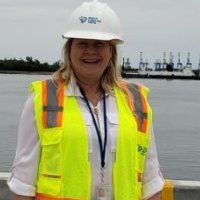
Silvia Judy started out as an apprentice in Freight forwarding in August 1981 in Hamburg, Germany. After successful completion of an apprenticeship program, she transferred as the youngest female management trainee in the 92-year history of the company from Hamburg to San Francisco in 1984. She worked in the specialized global transportation field of classic automotives, foodstuffs, and high tech, in San Francisco. She moved in September 1989 from San Francisco to Charleston to open up the East Coast branch of FNC International. Over the past 33 years, she made Charleston her home port and earlier this year made a very positive career move to re-join JAS Forwarding (USA) in a completely new role as Trade-Lane Manager (North Europe). JAS Forwarding’s message is “People make the difference.” With a staff of almost 1000 associates in the US, 54 % of the team members are female. In August 2022, JAS is one of six companies in Charleston that sponsor the Logistics Apprenticeship program at Trident Technical College, just in time for Silvia’s 41st anniversary in Global Logistics and Transportation. It is her personal mission to pay it forward by engaging with the next generation of leaders. As President of the CBFFAC, Silvia is engaging new talent and fostering inclusion and diversity. She is a Supply chain enthusiast and has learned so much on supplychainnow.com and have met so many amazing folks all over the world. She is hoping to have a live episode during one of the monthly CBFFAC luncheons always the 2nd Thursday of each month. There will be homemade jam. Connect with Silvia on LinkedIn.
